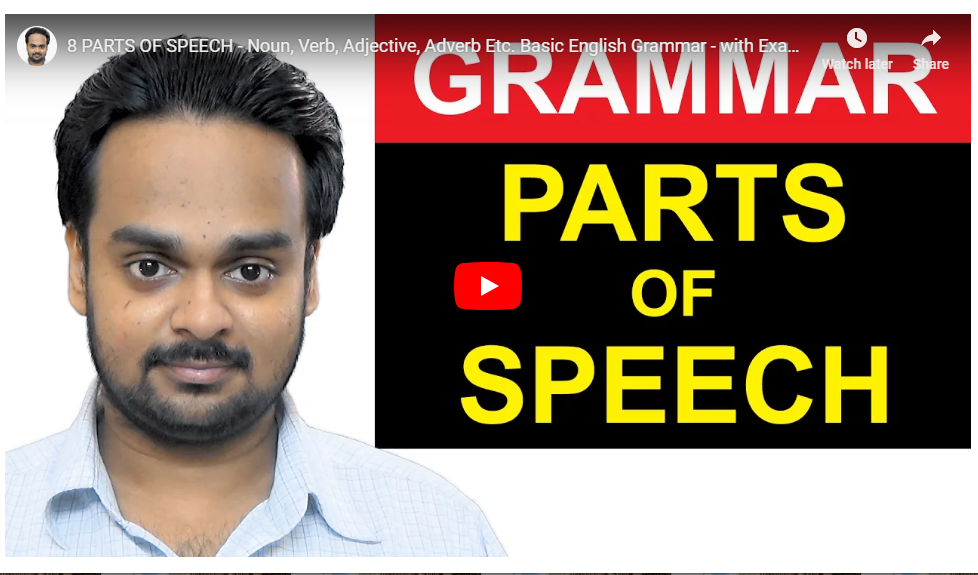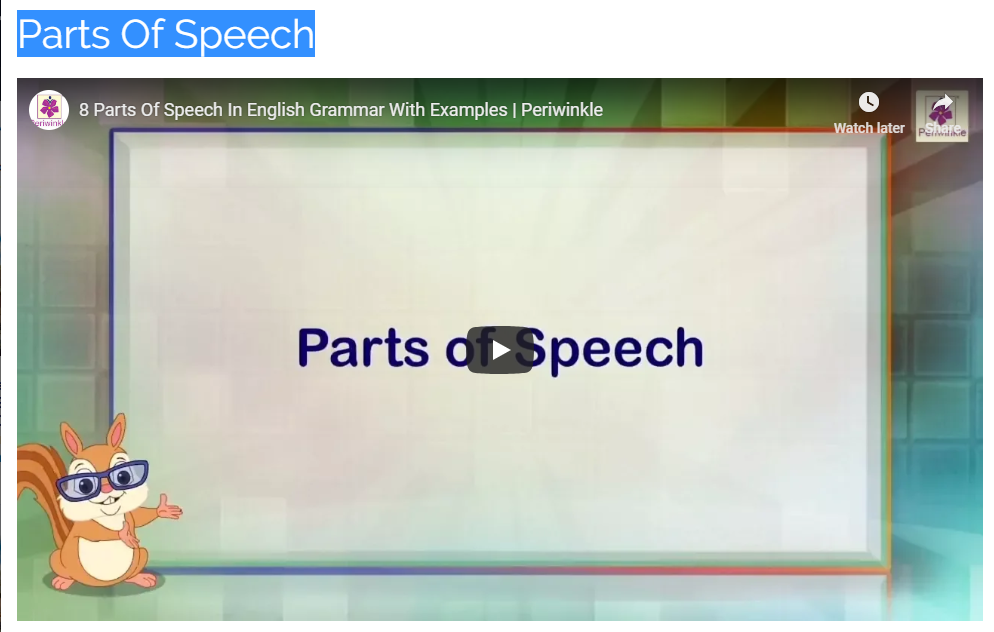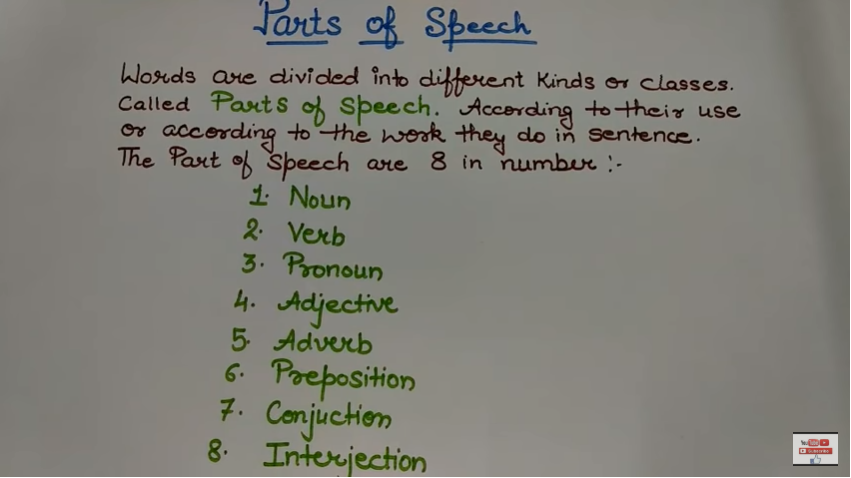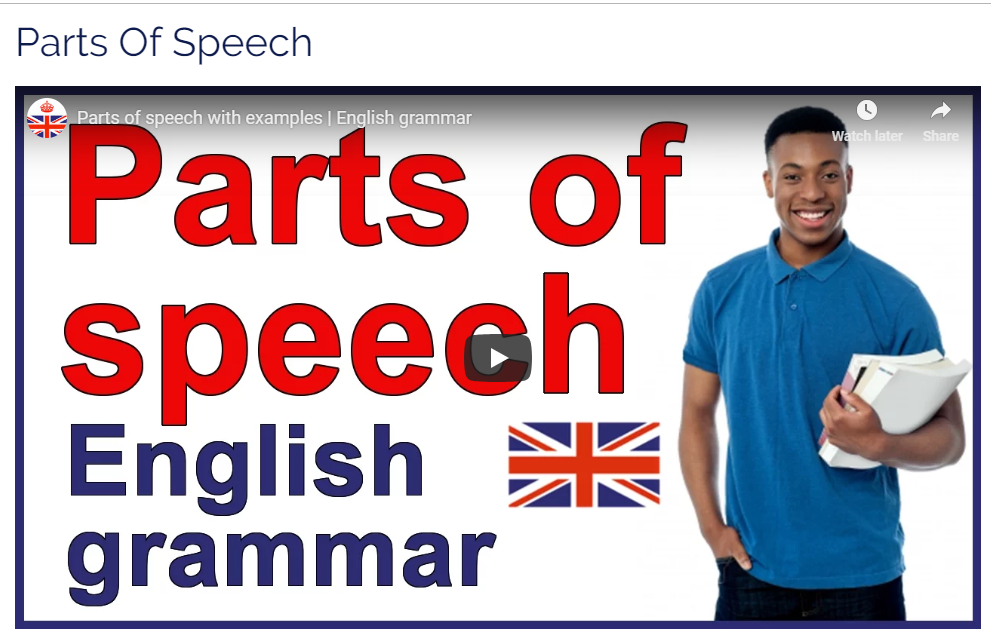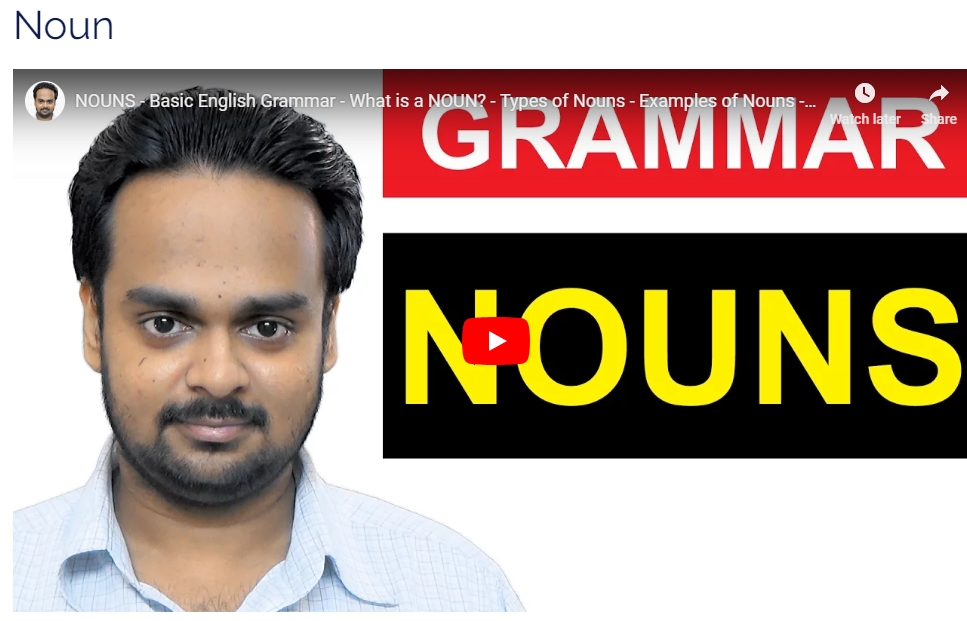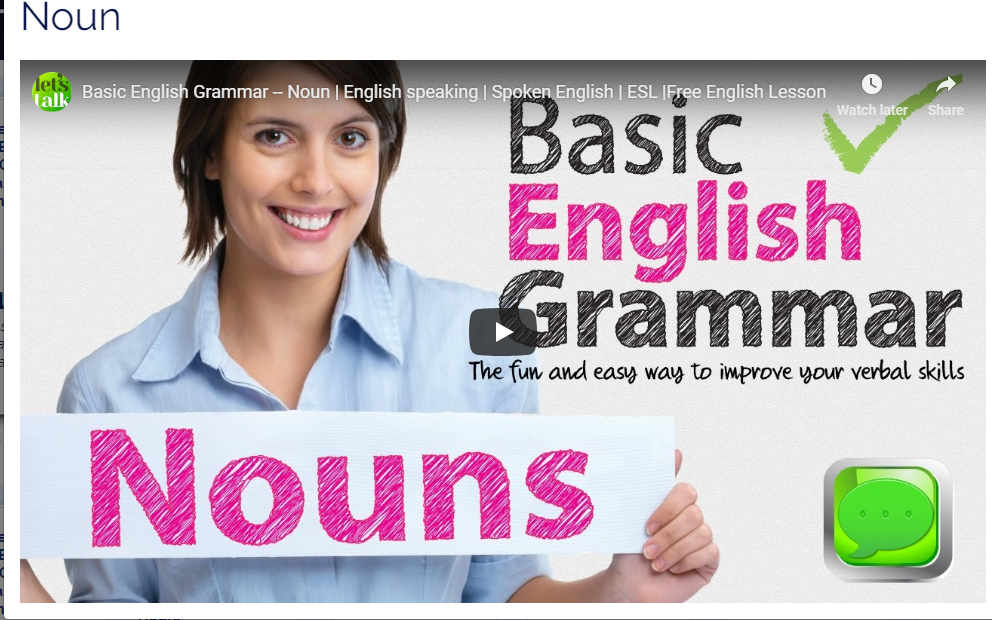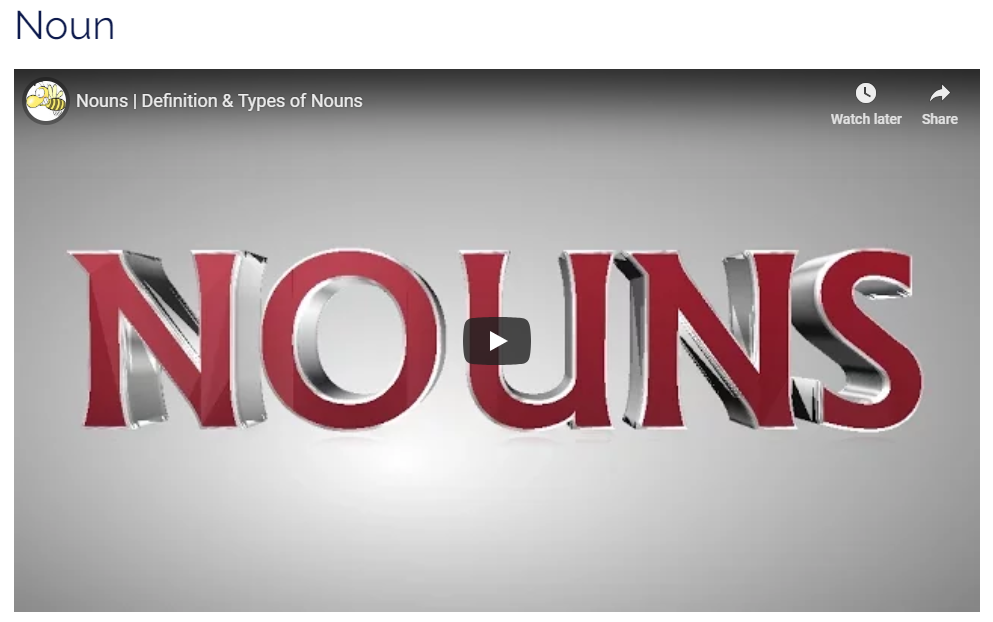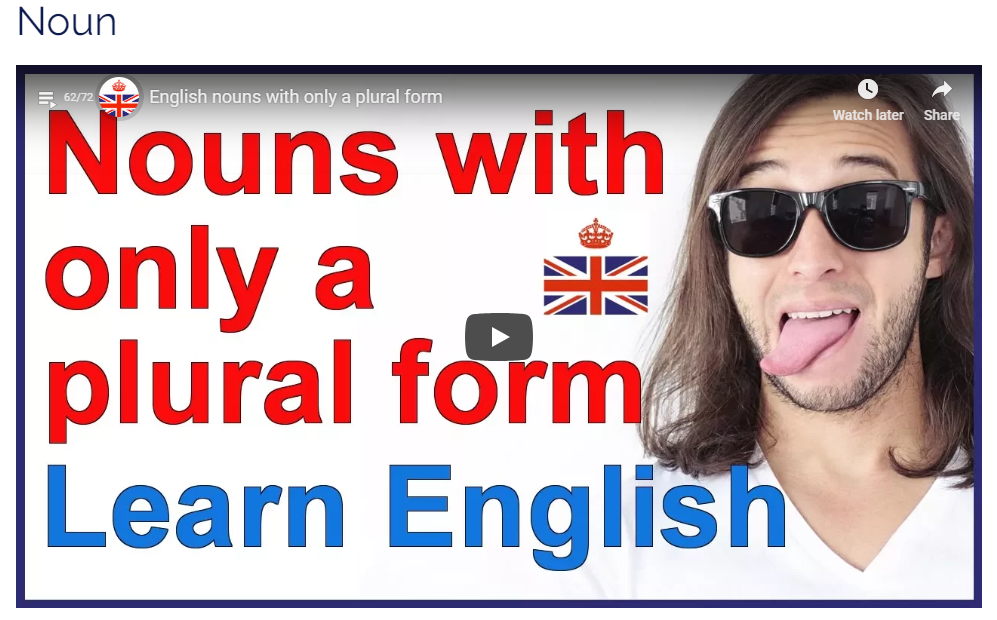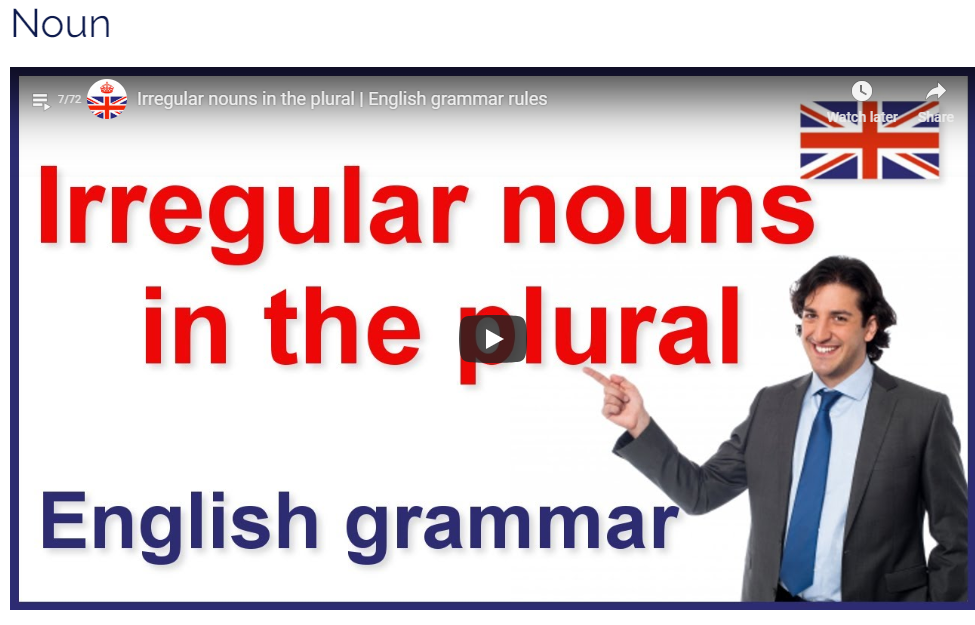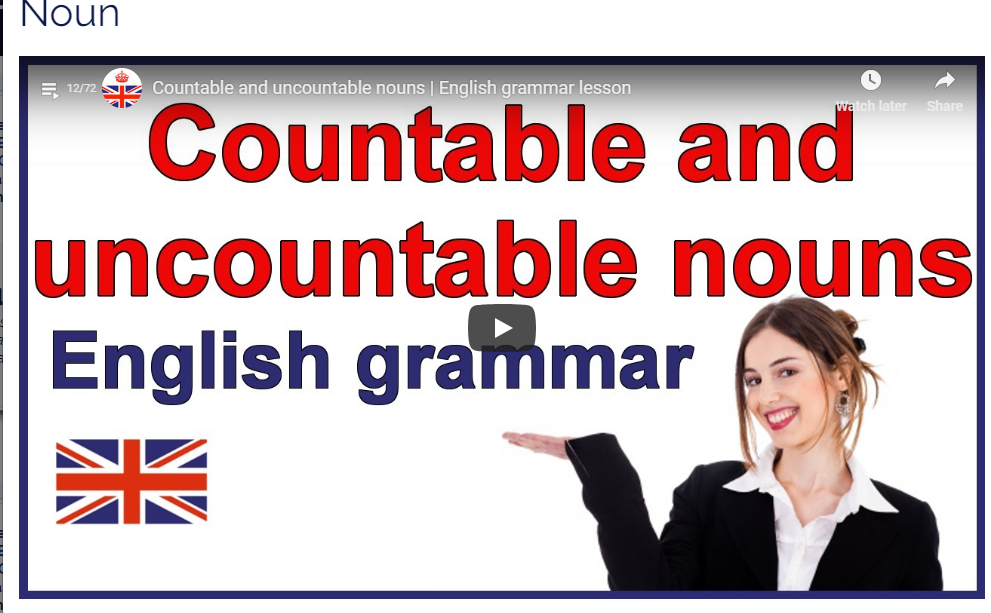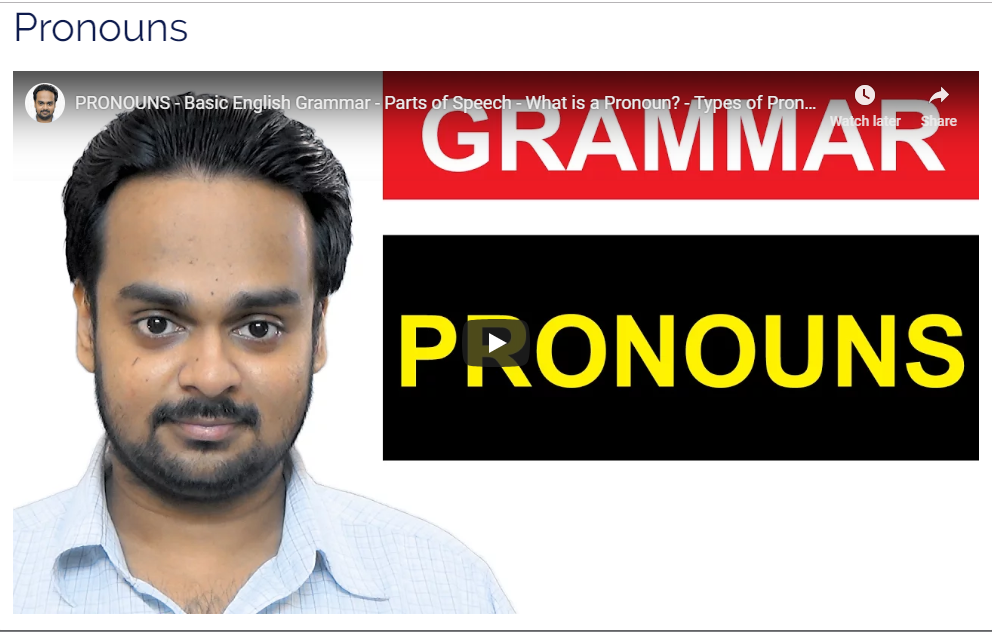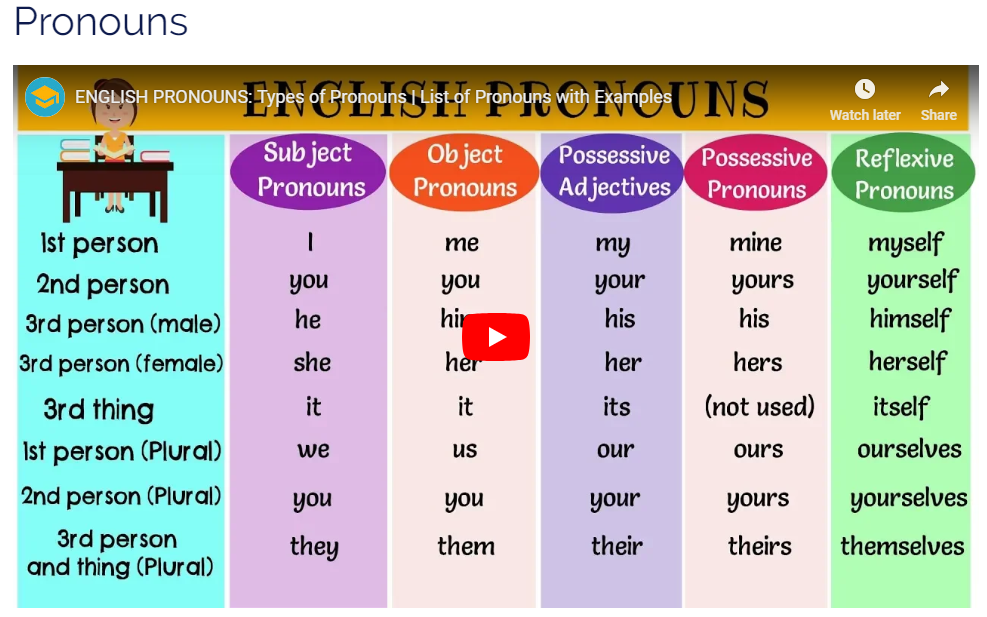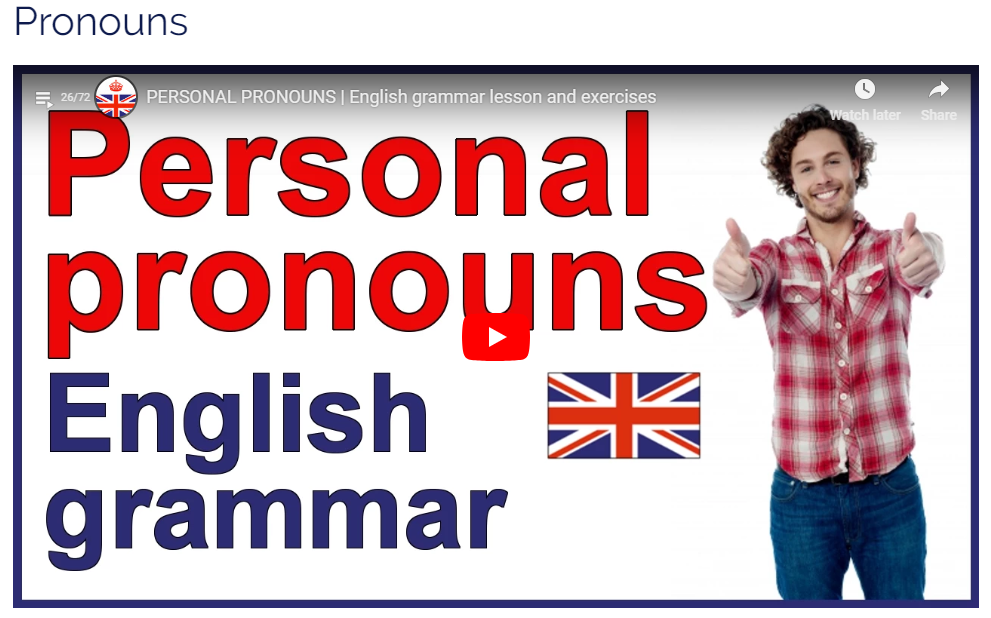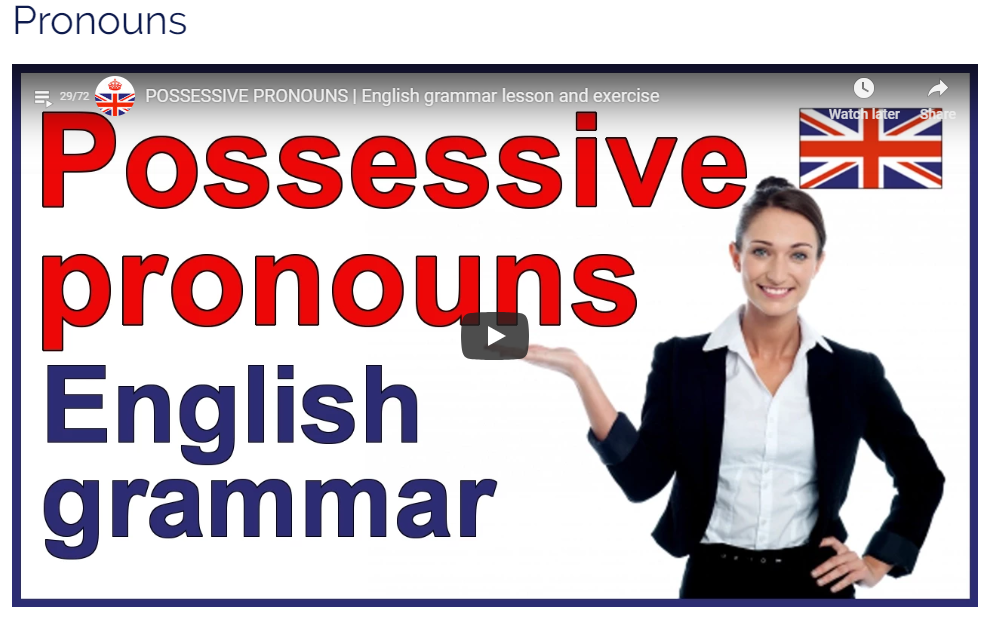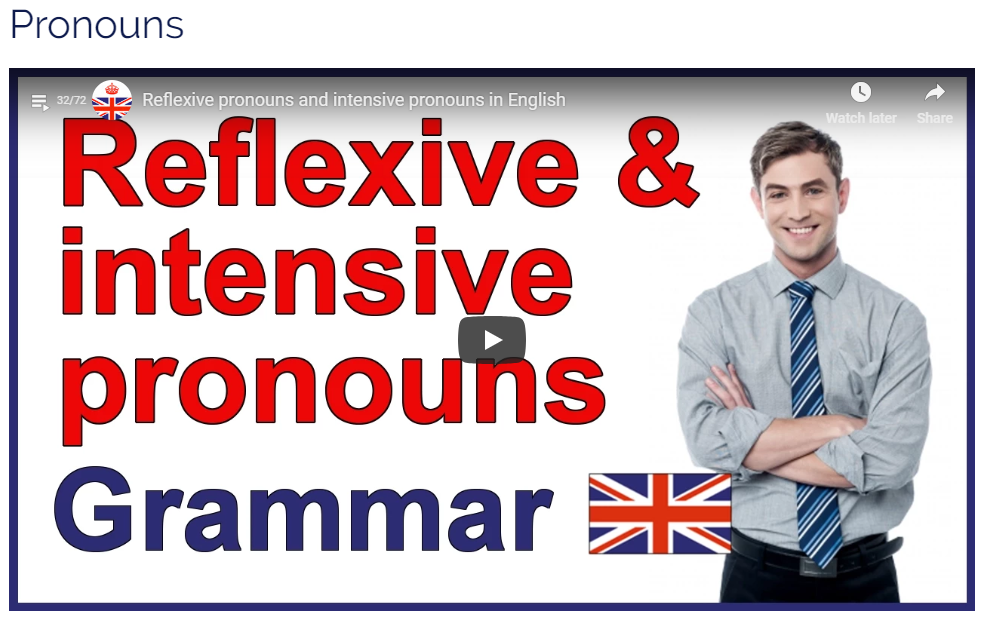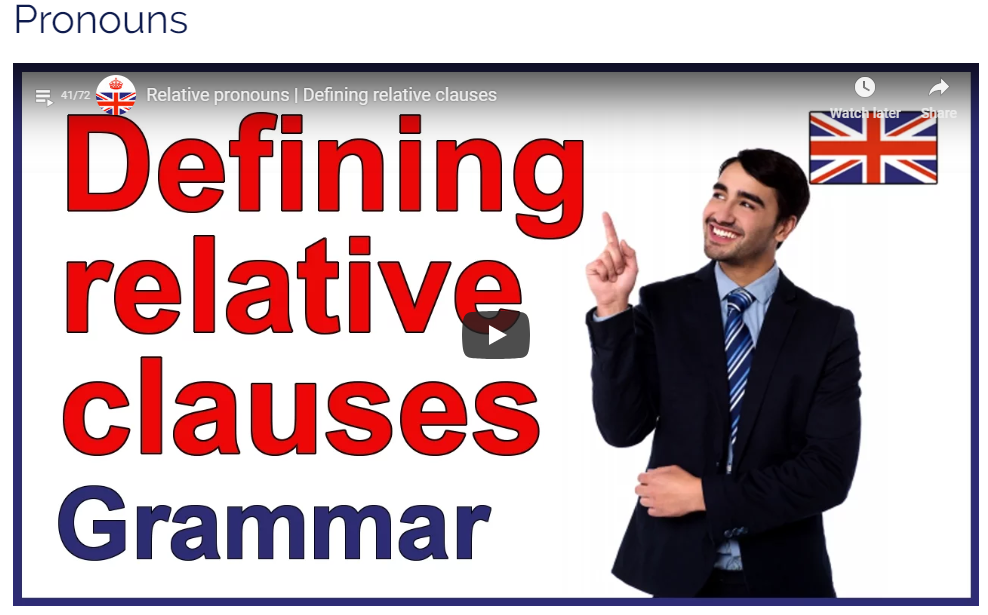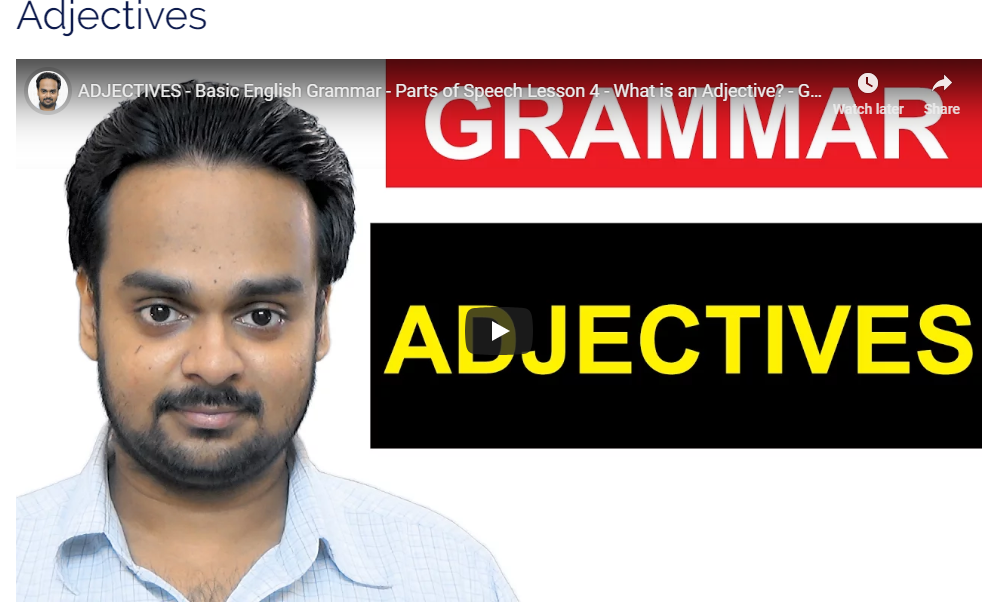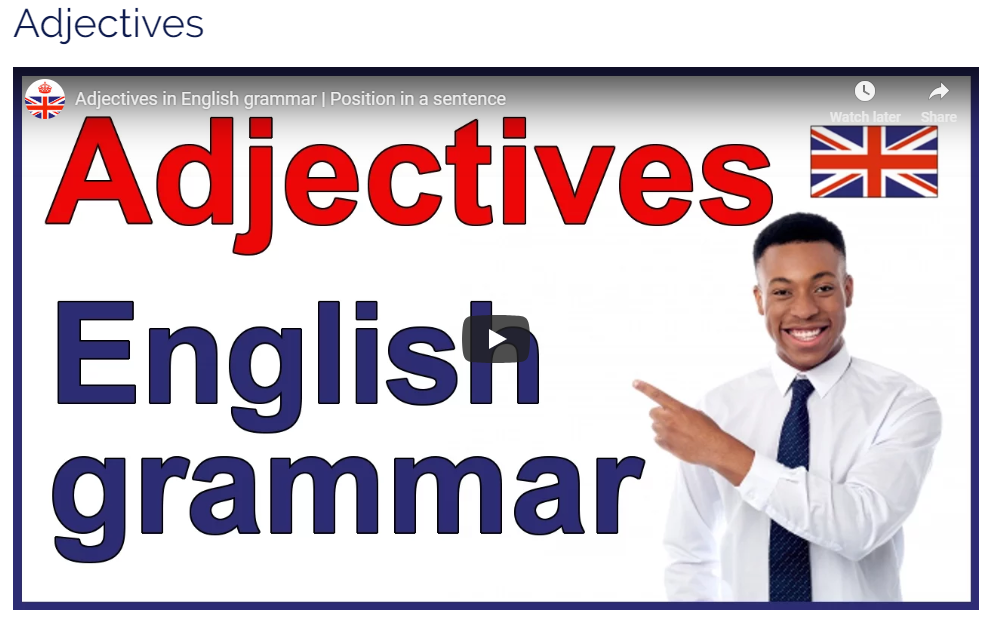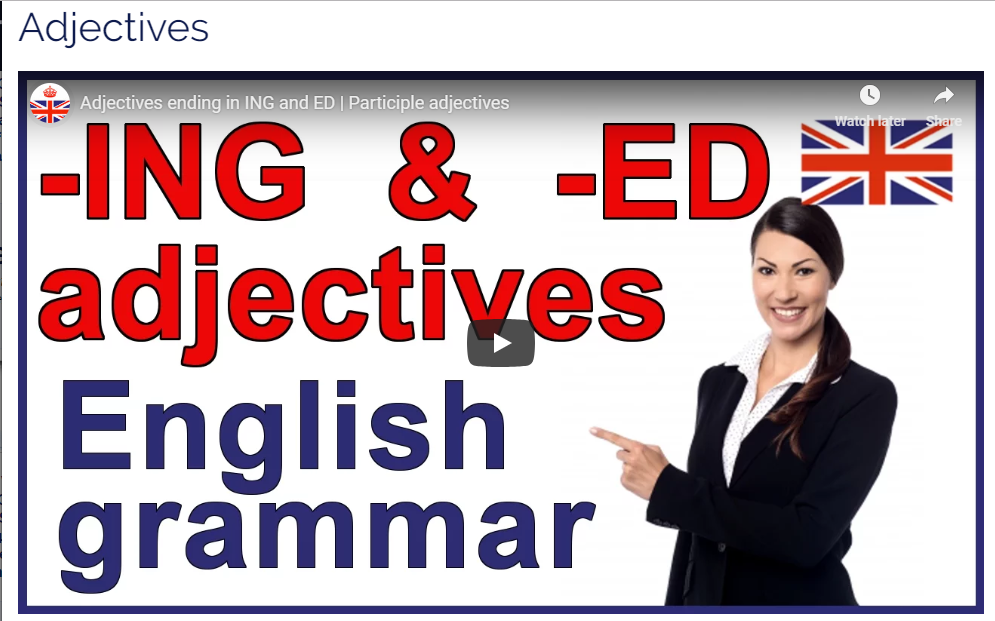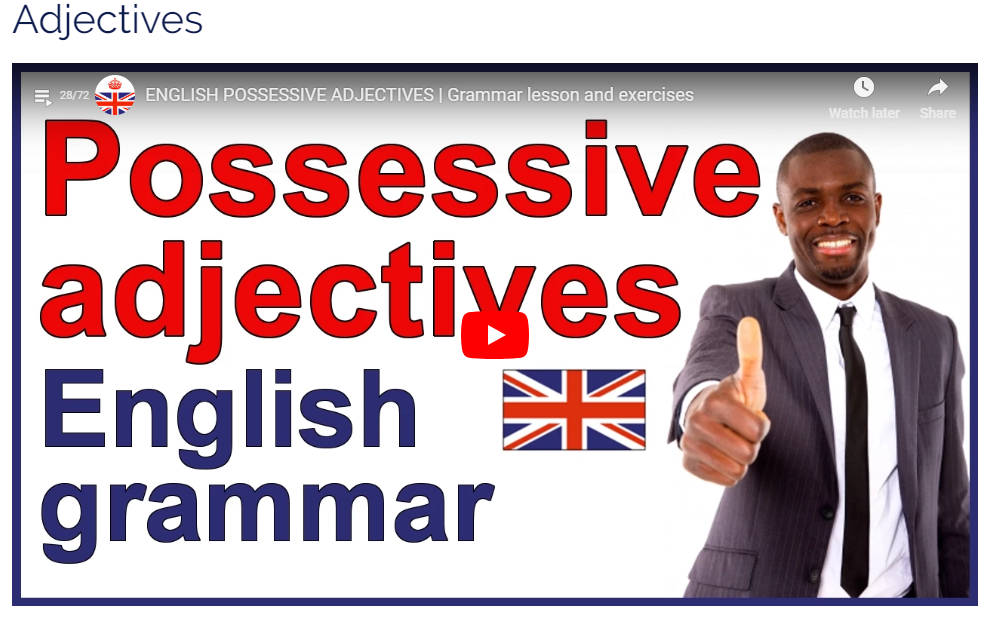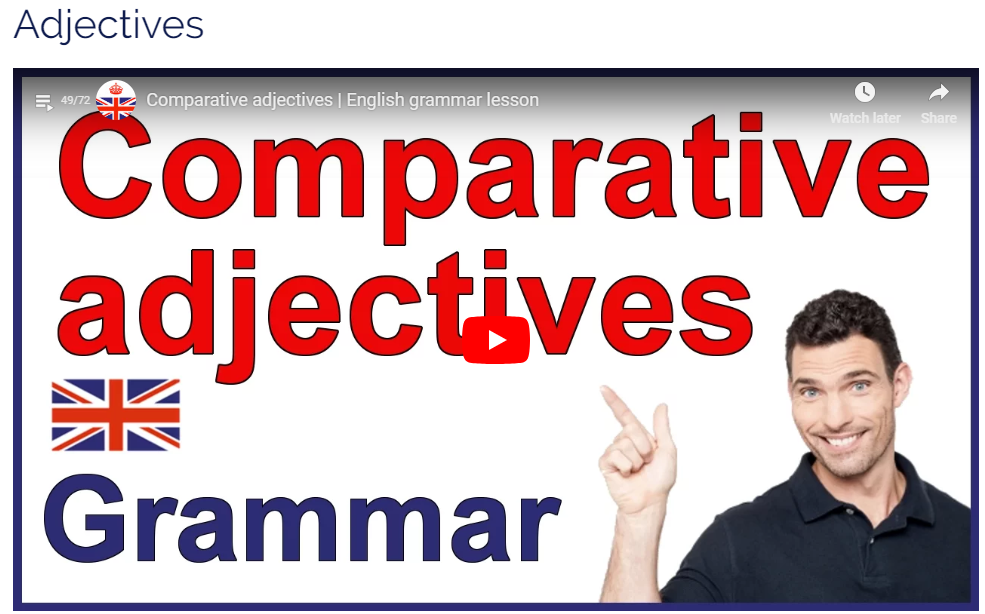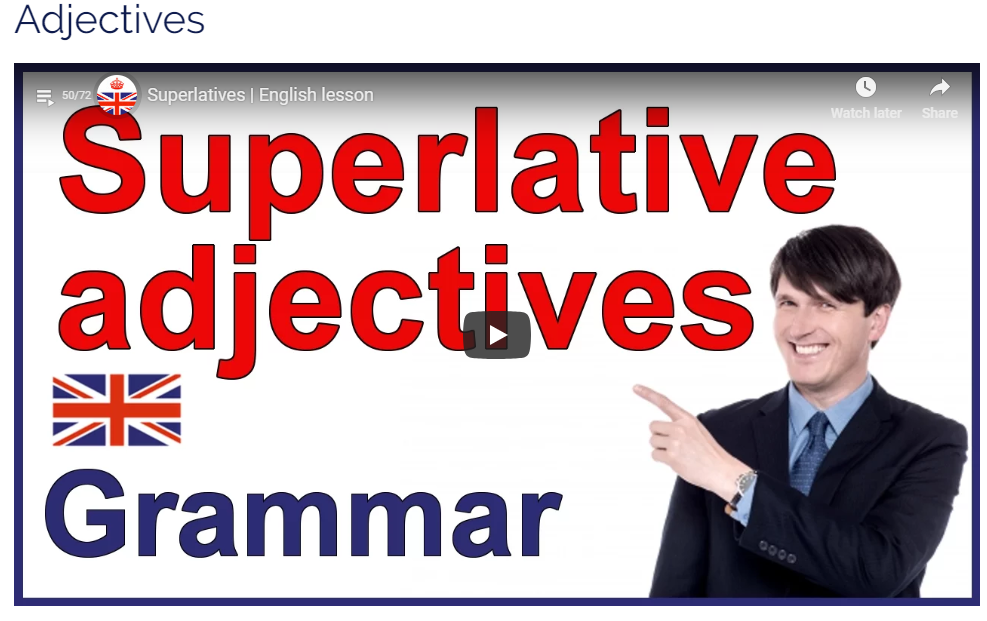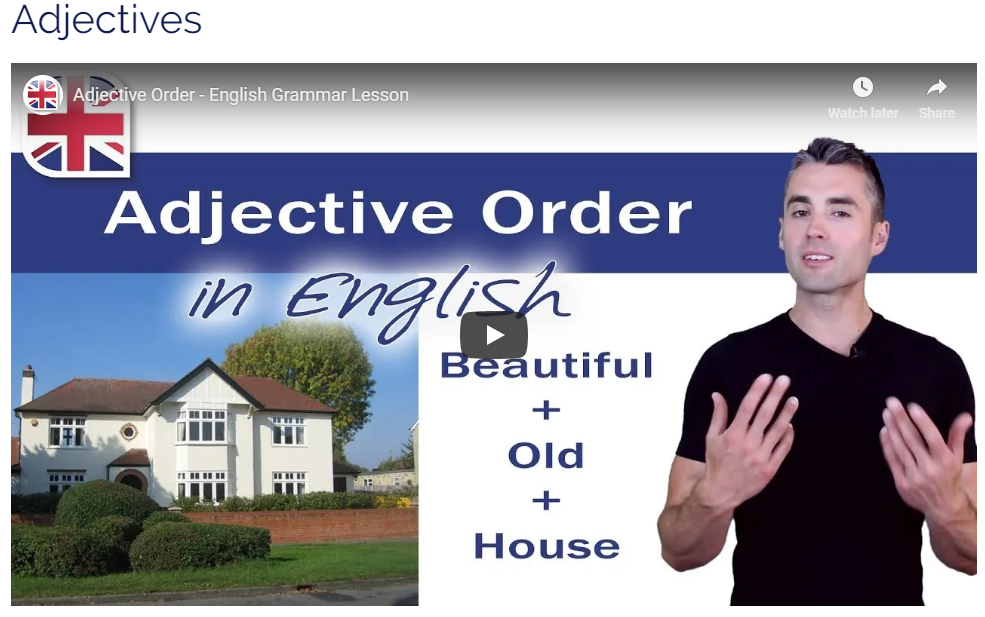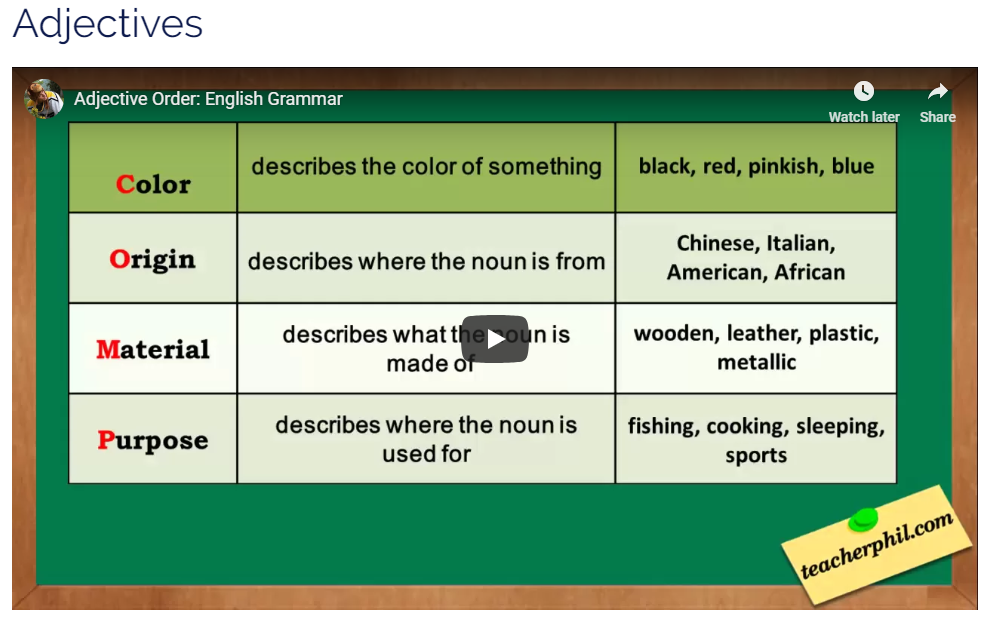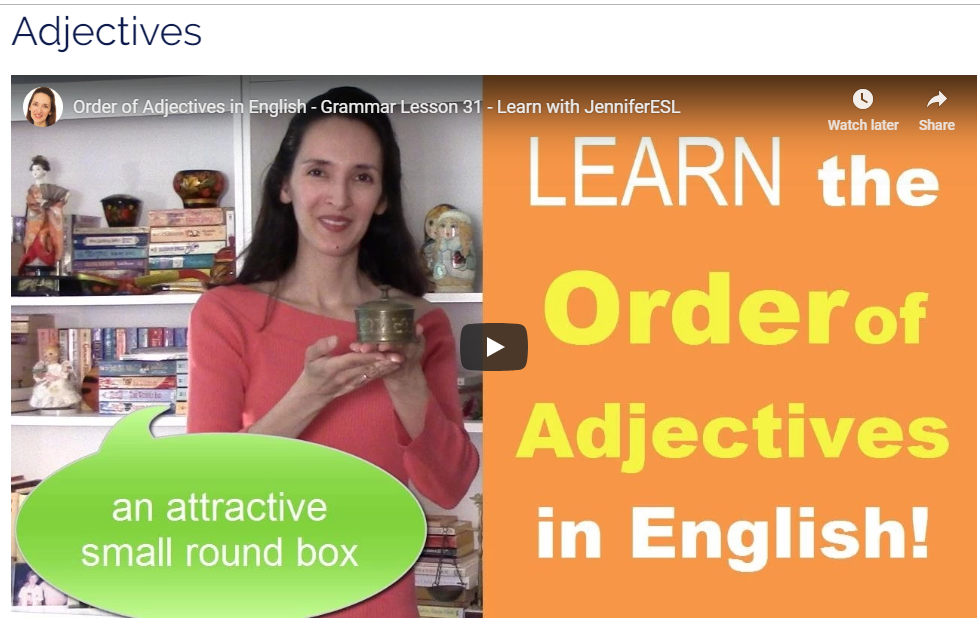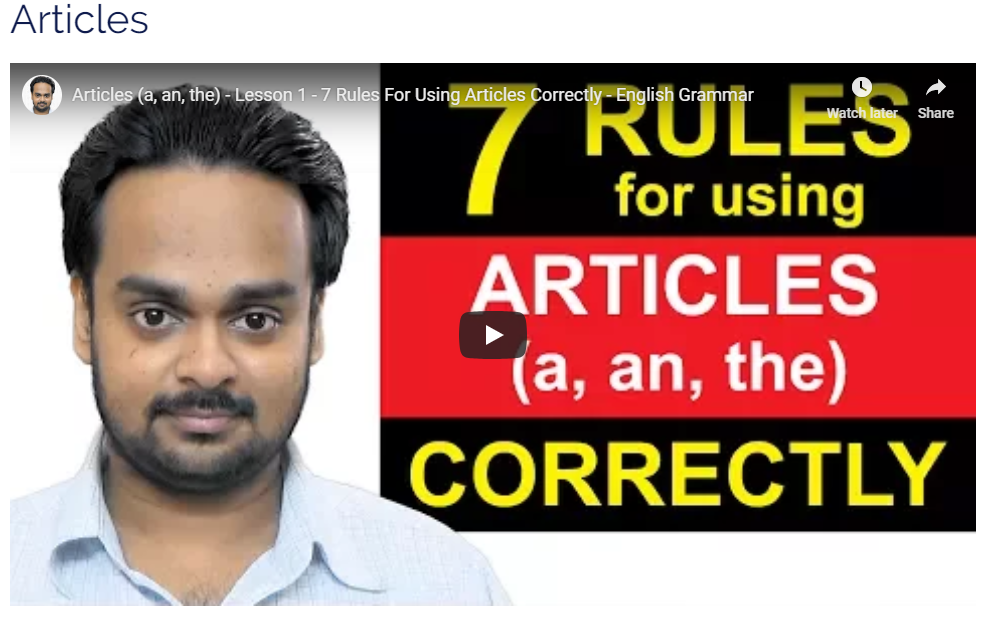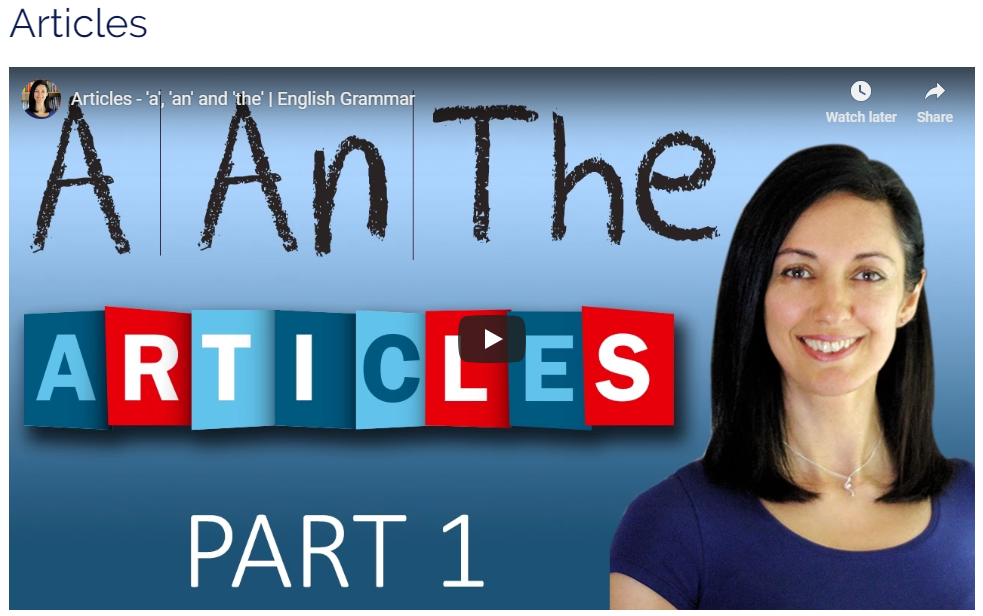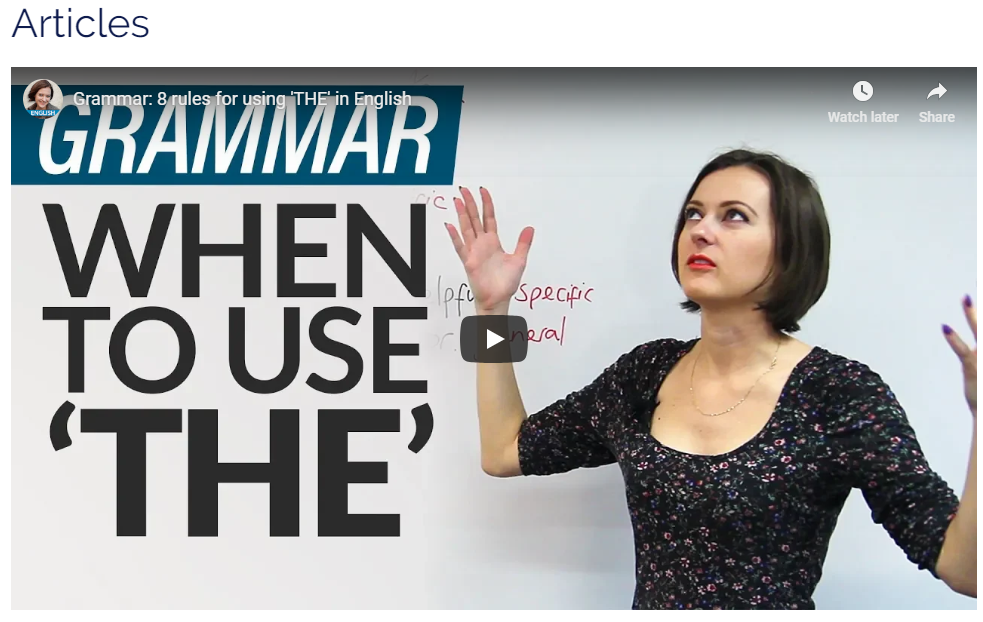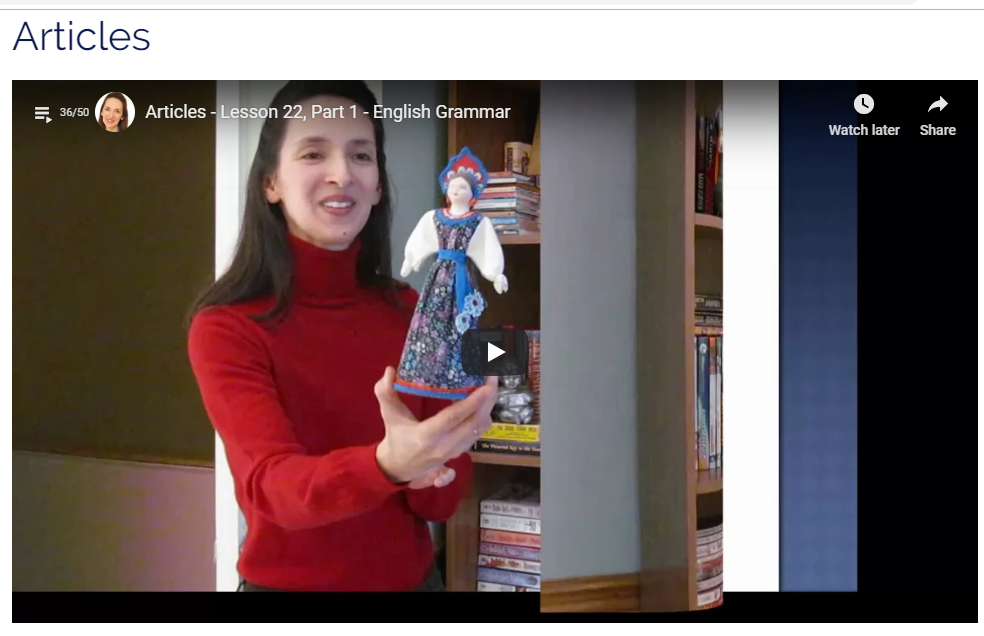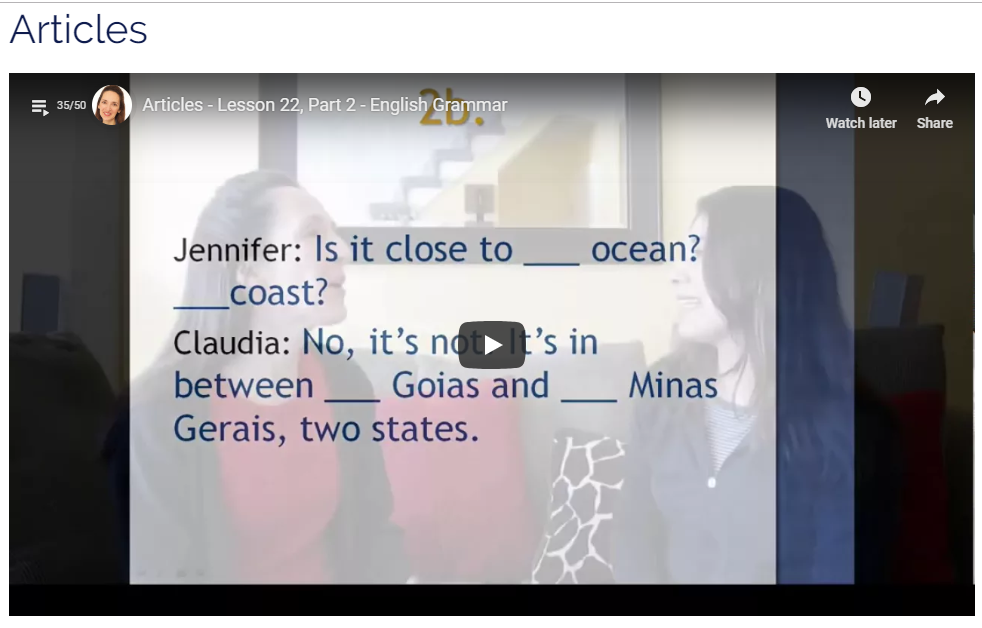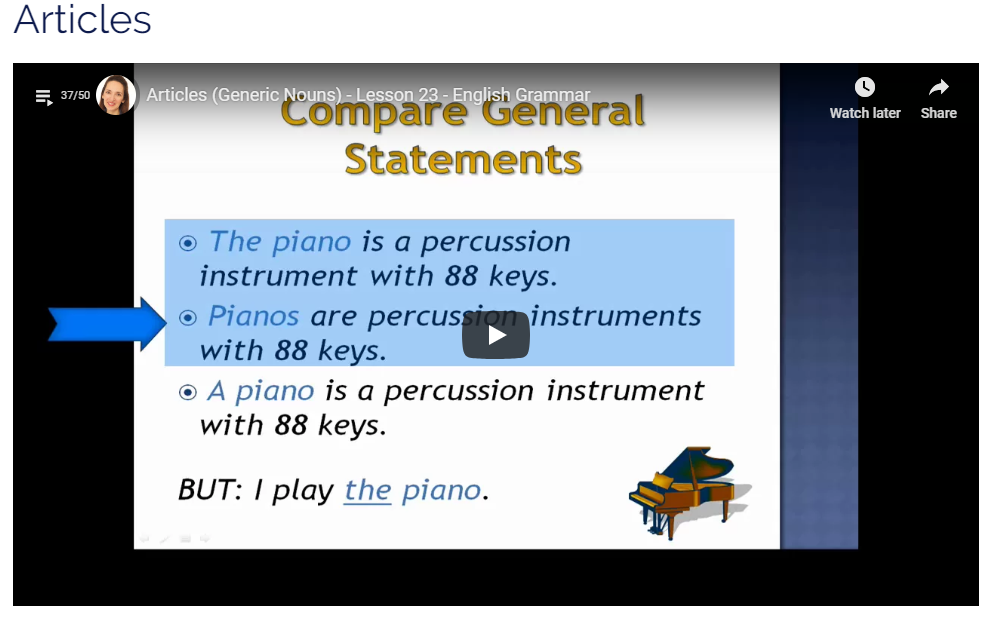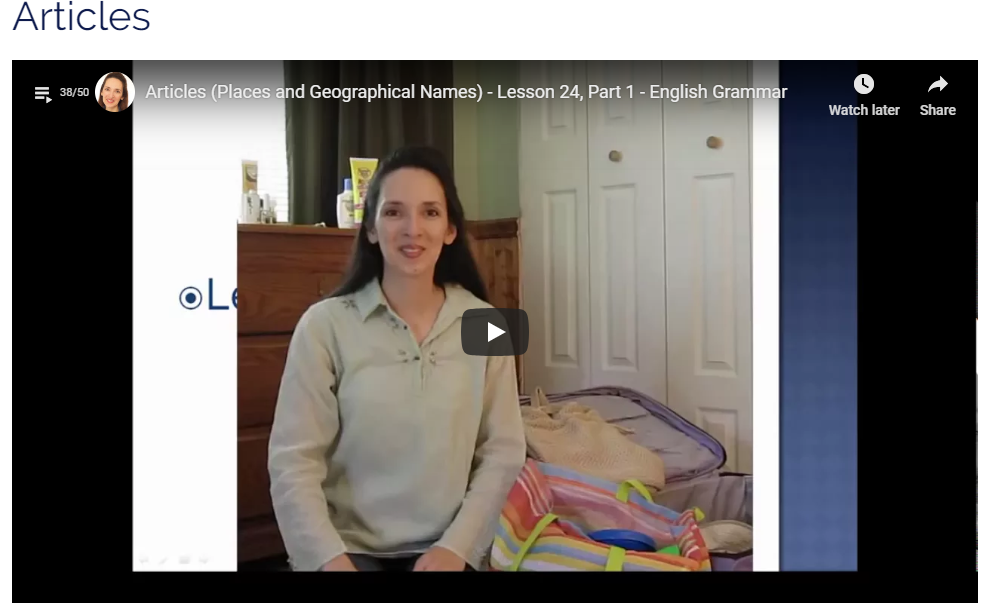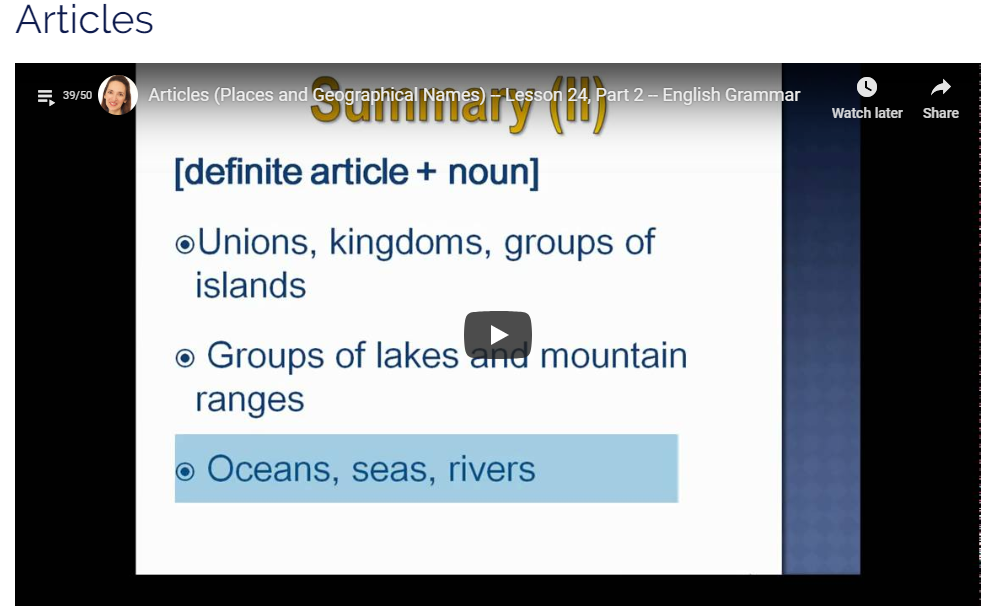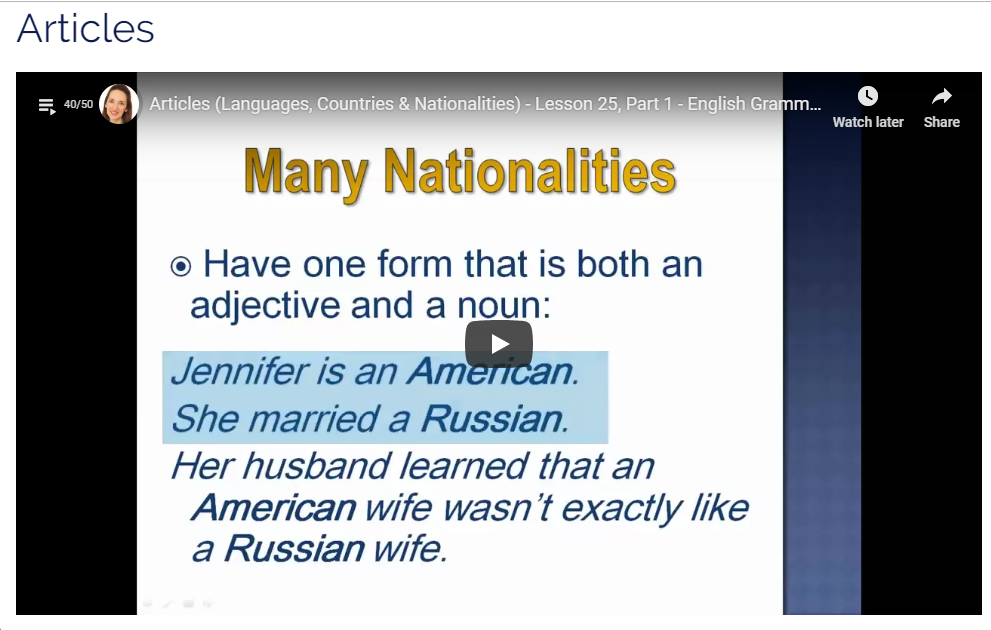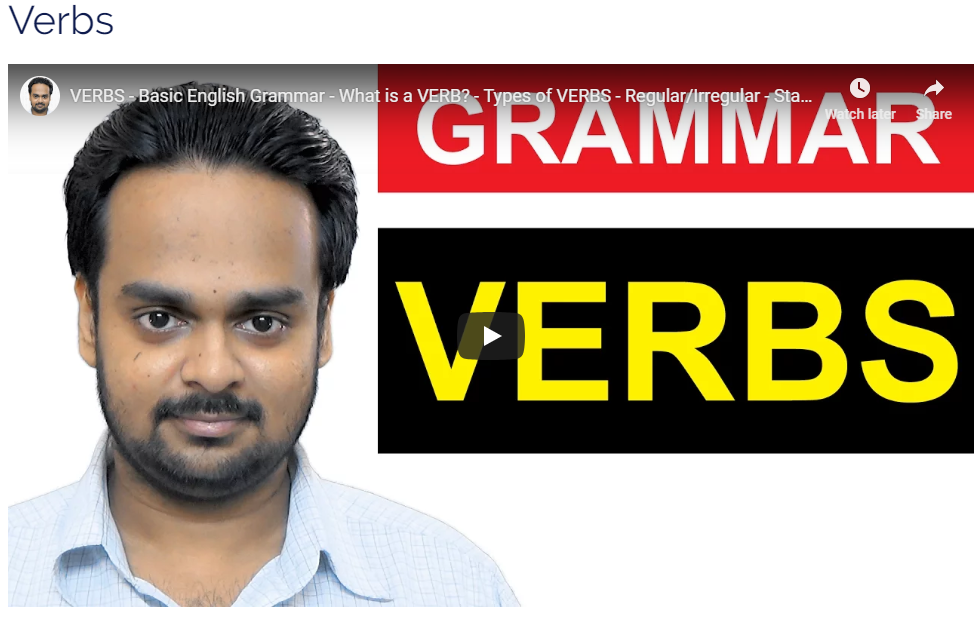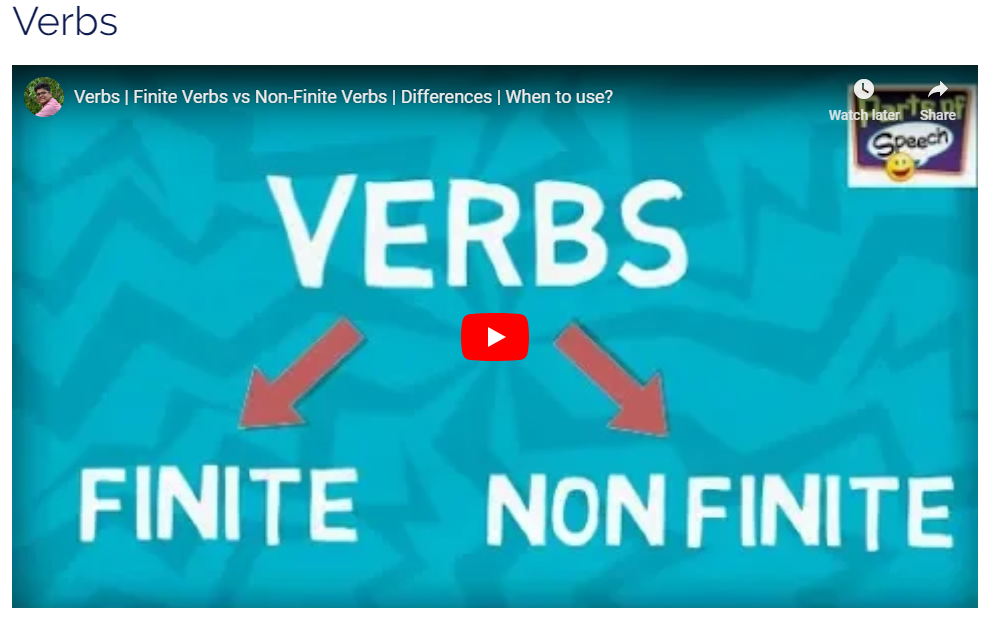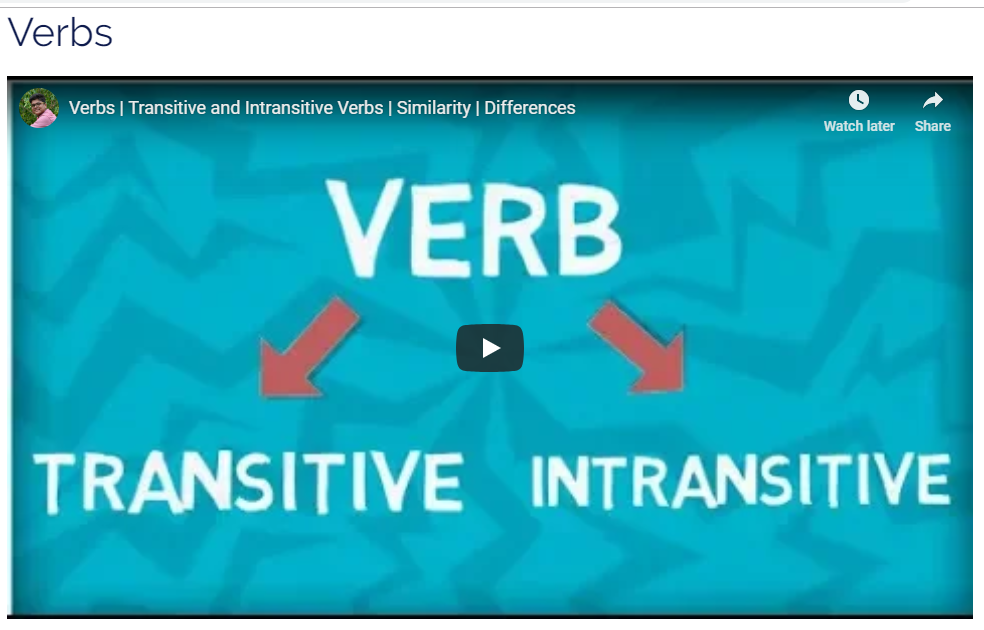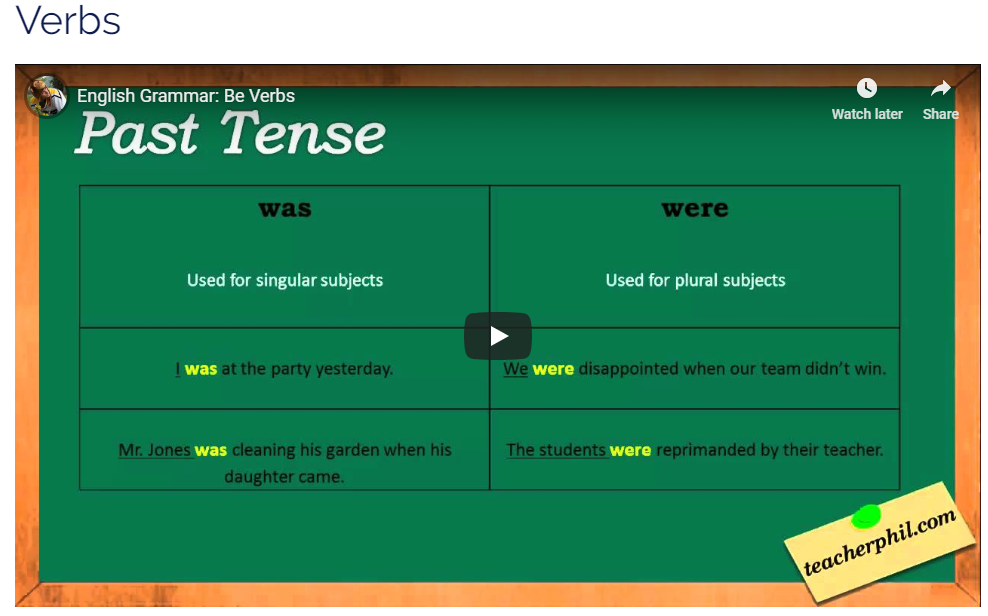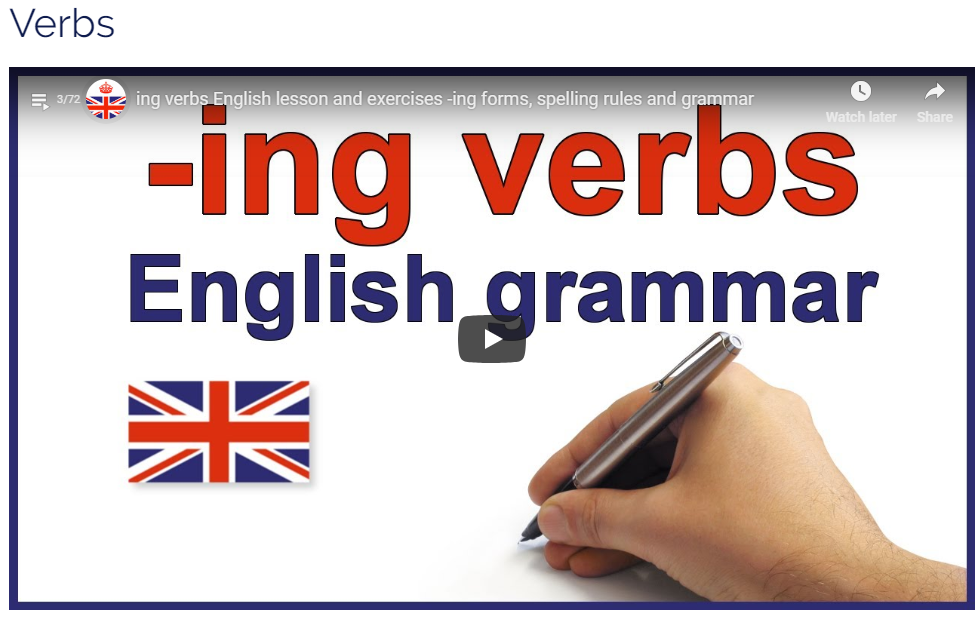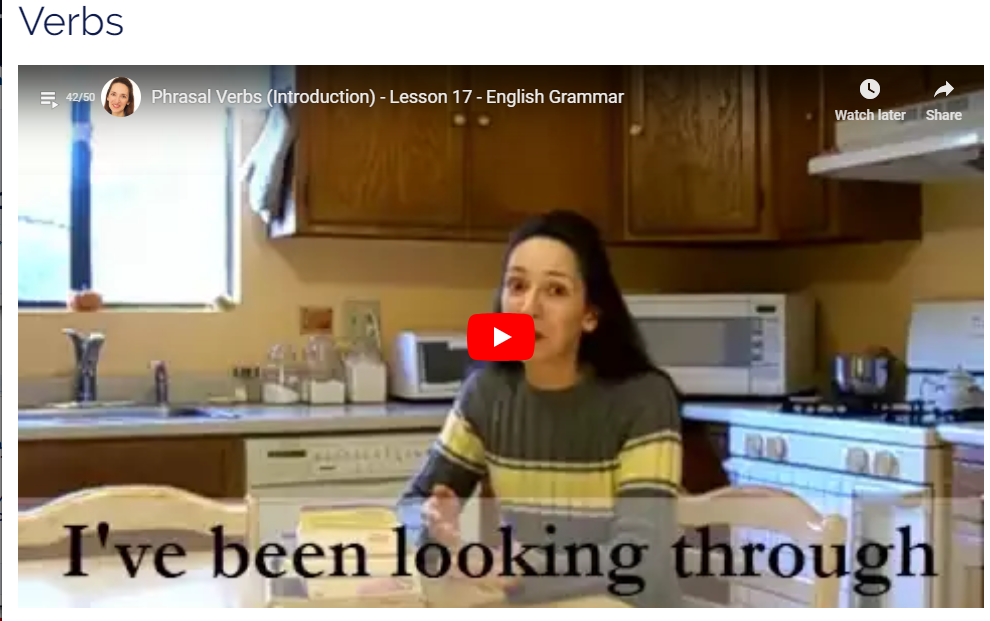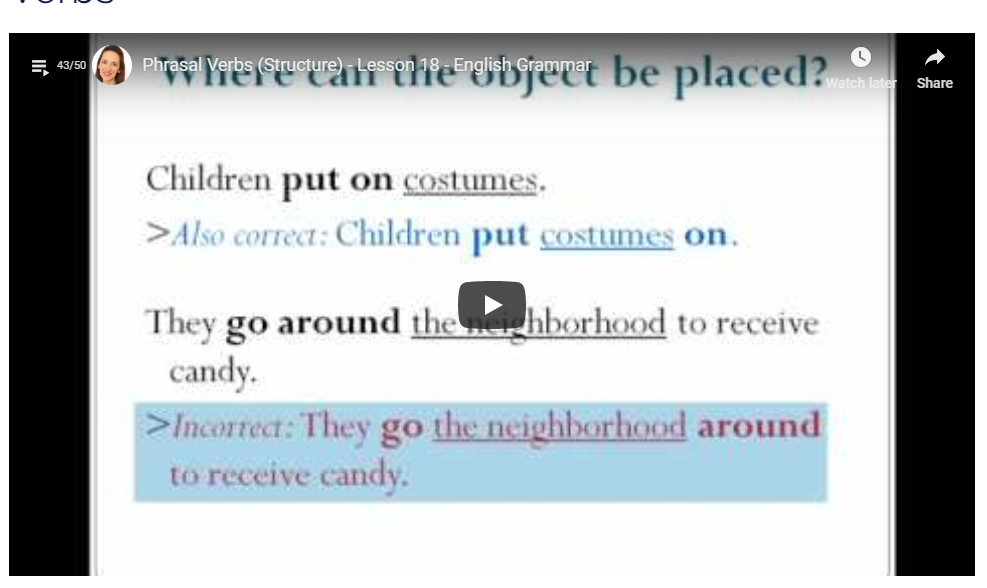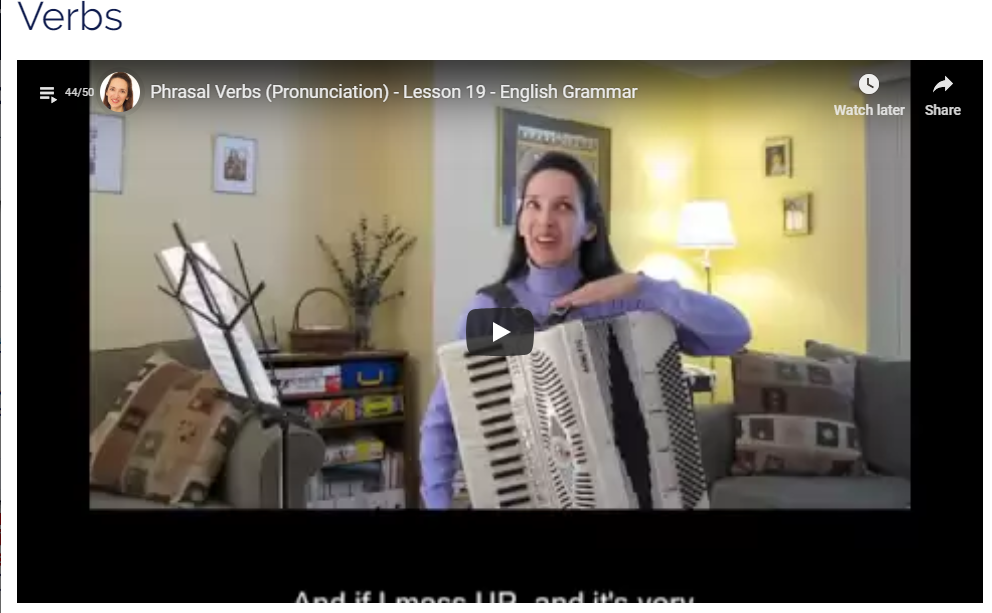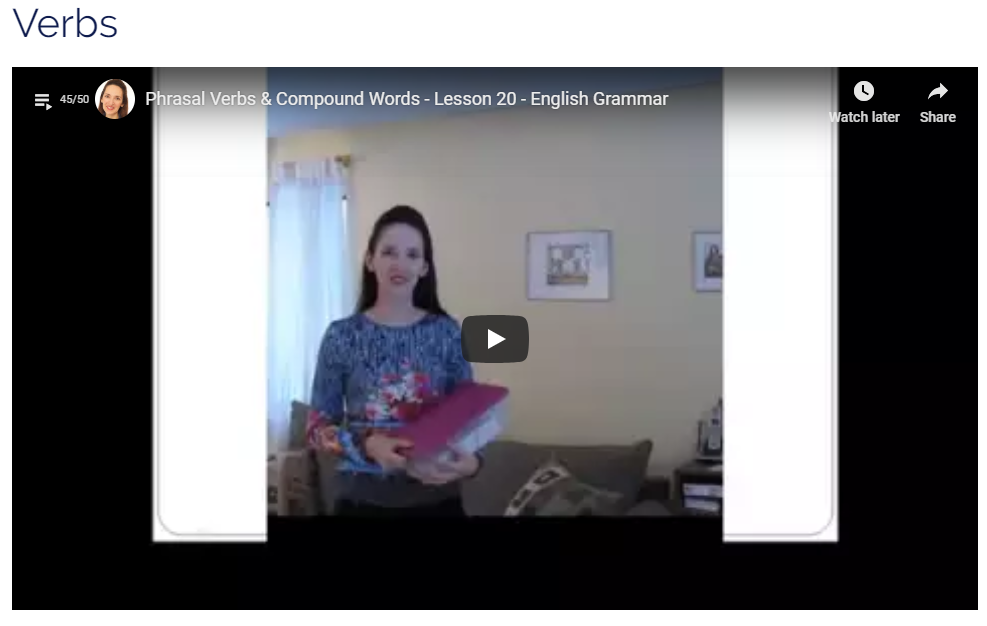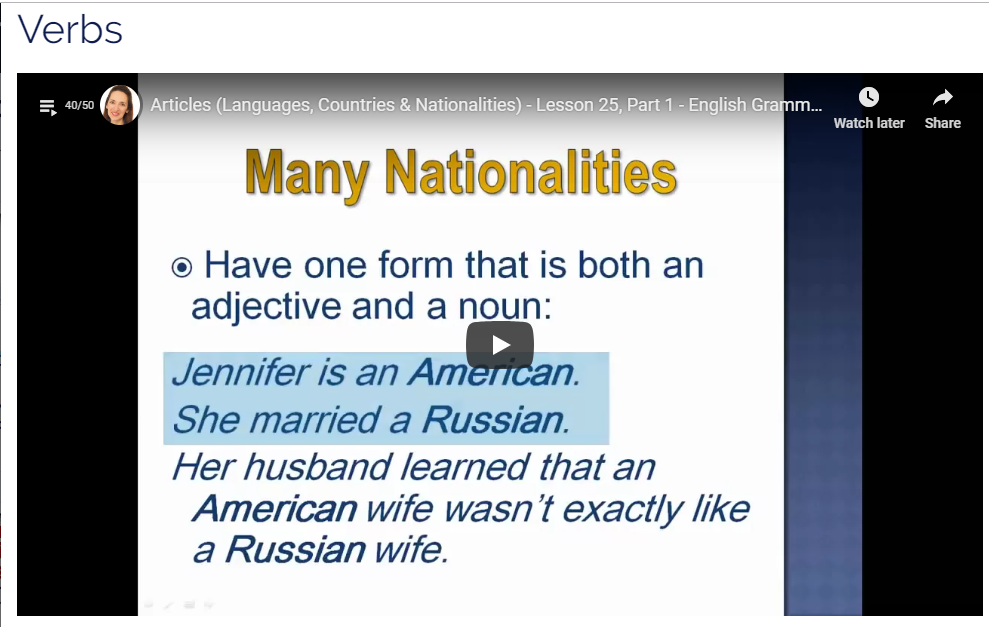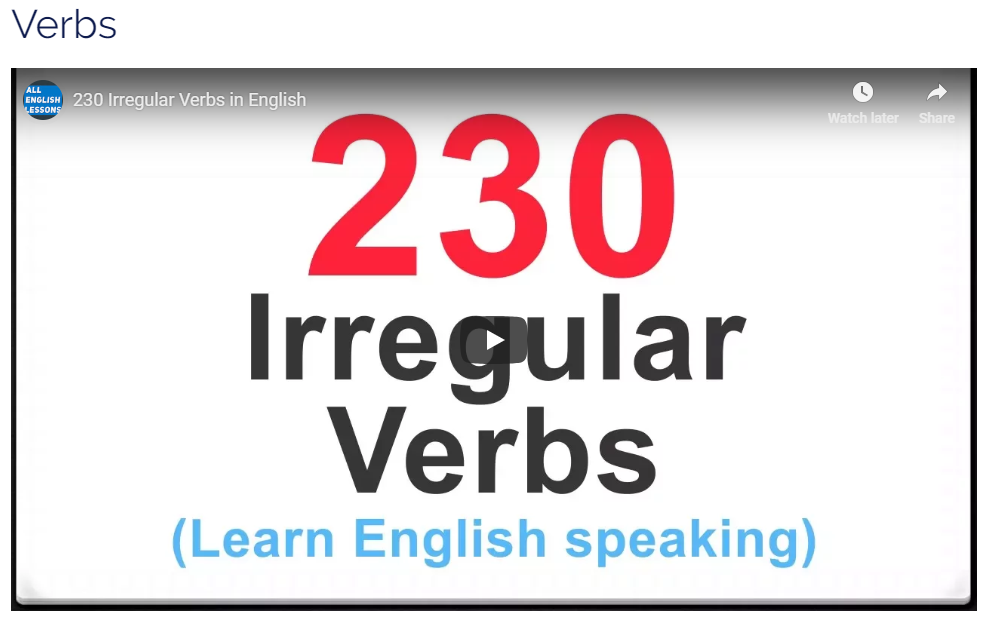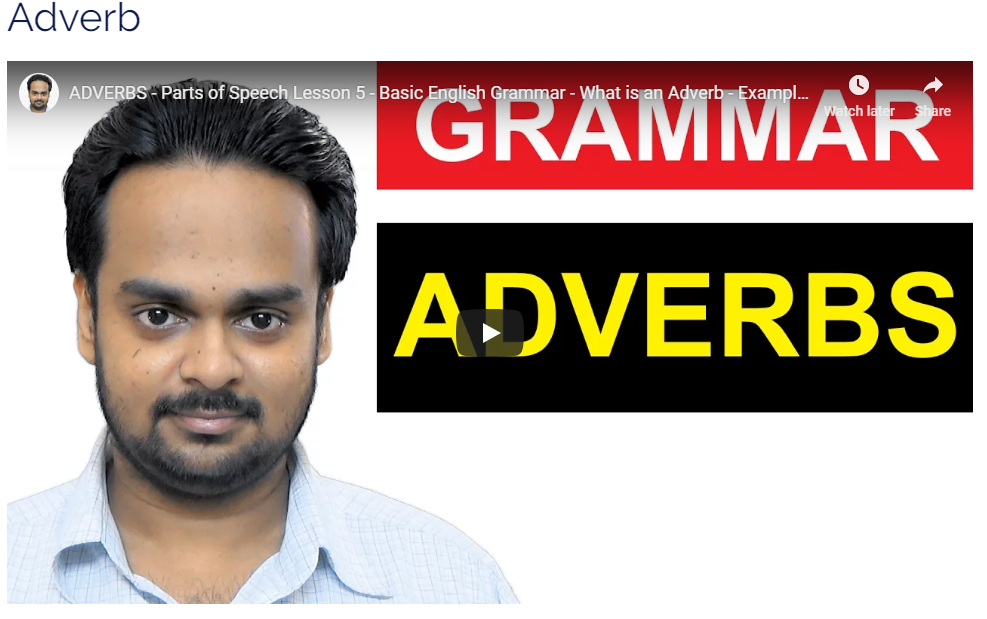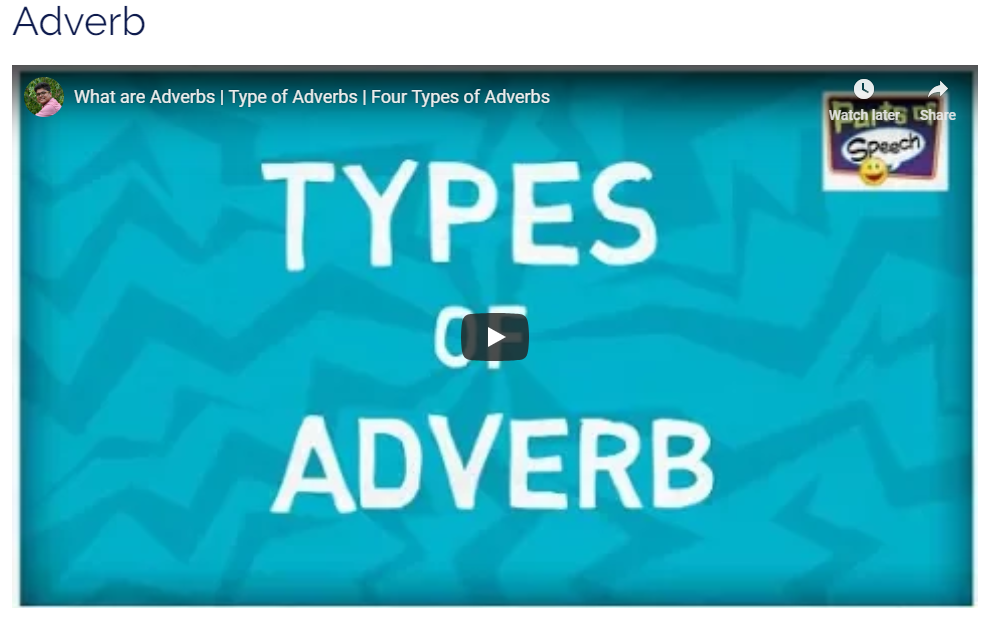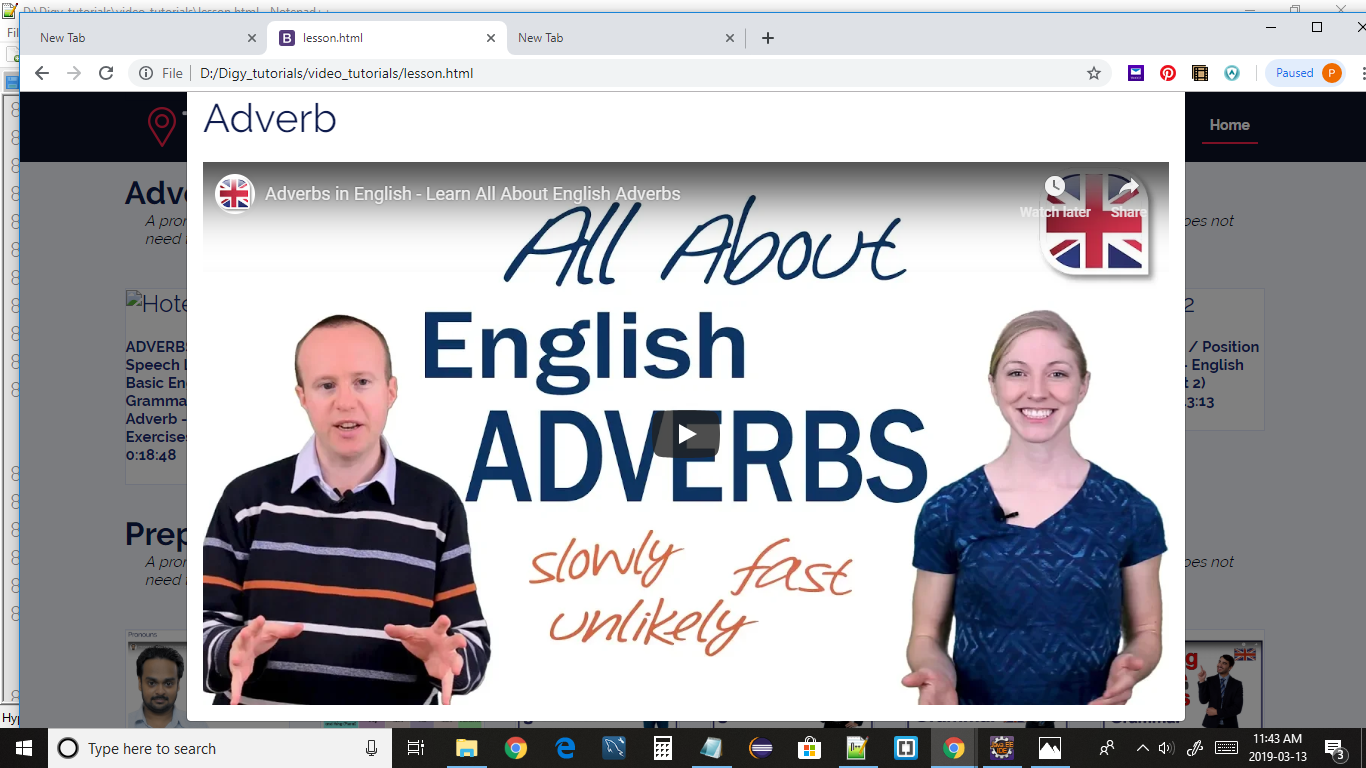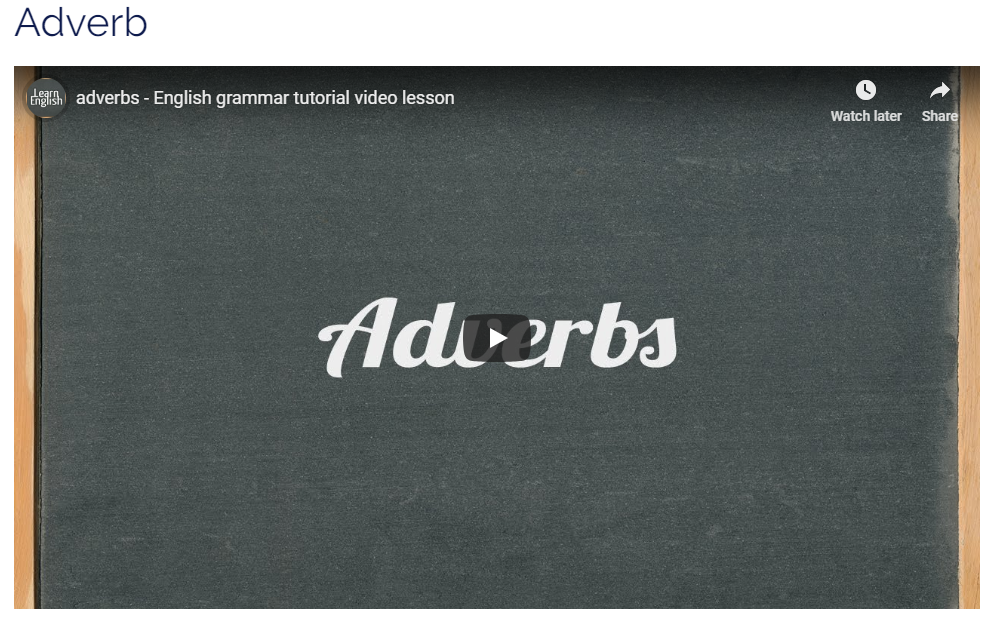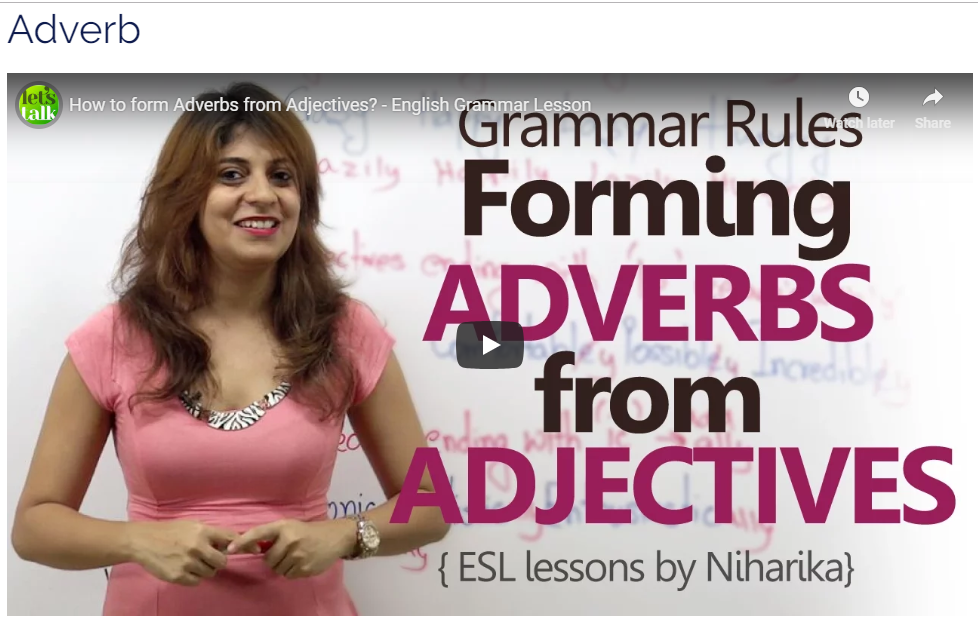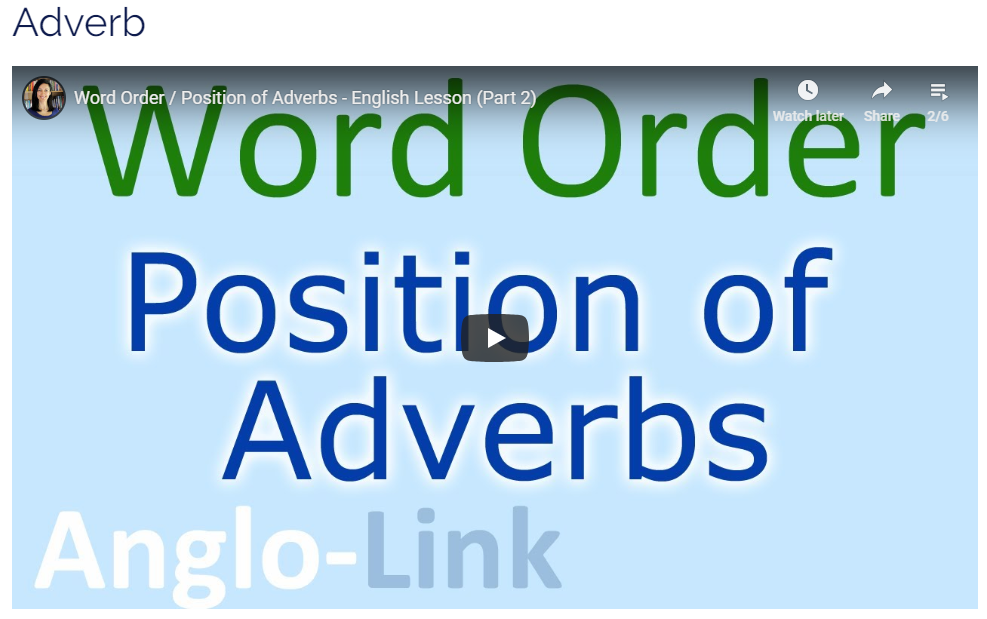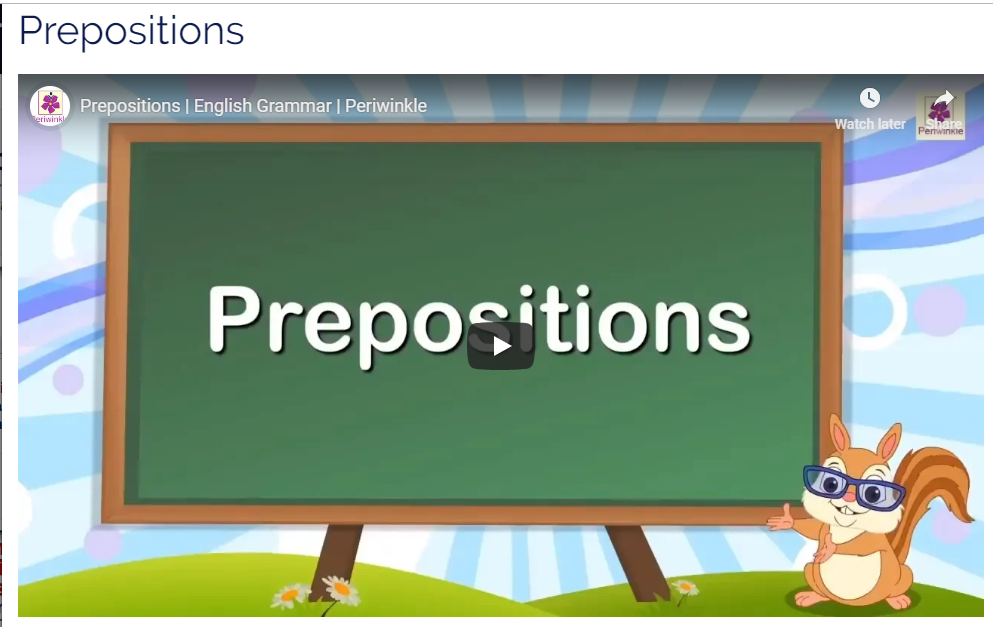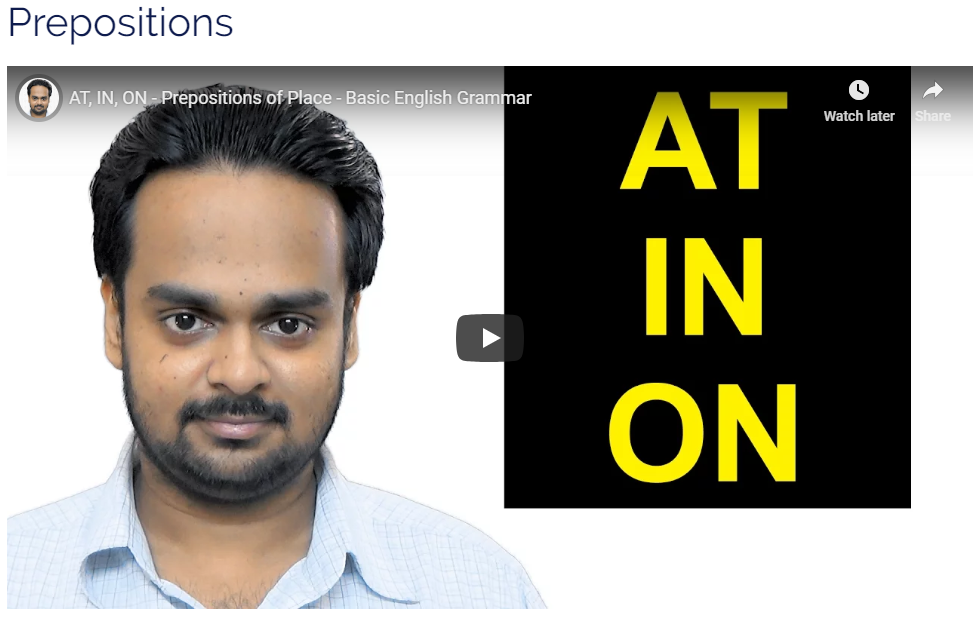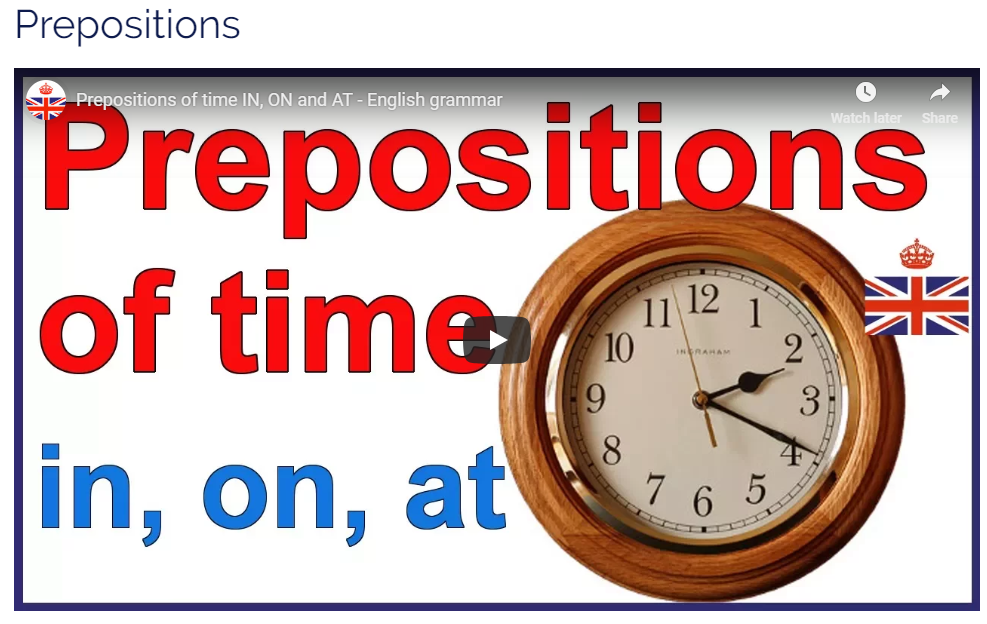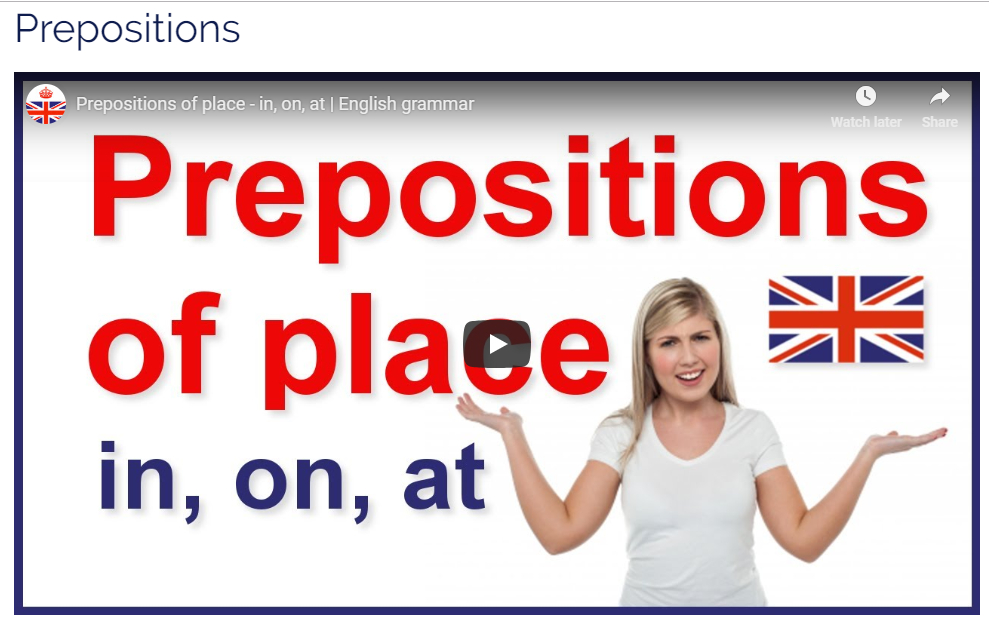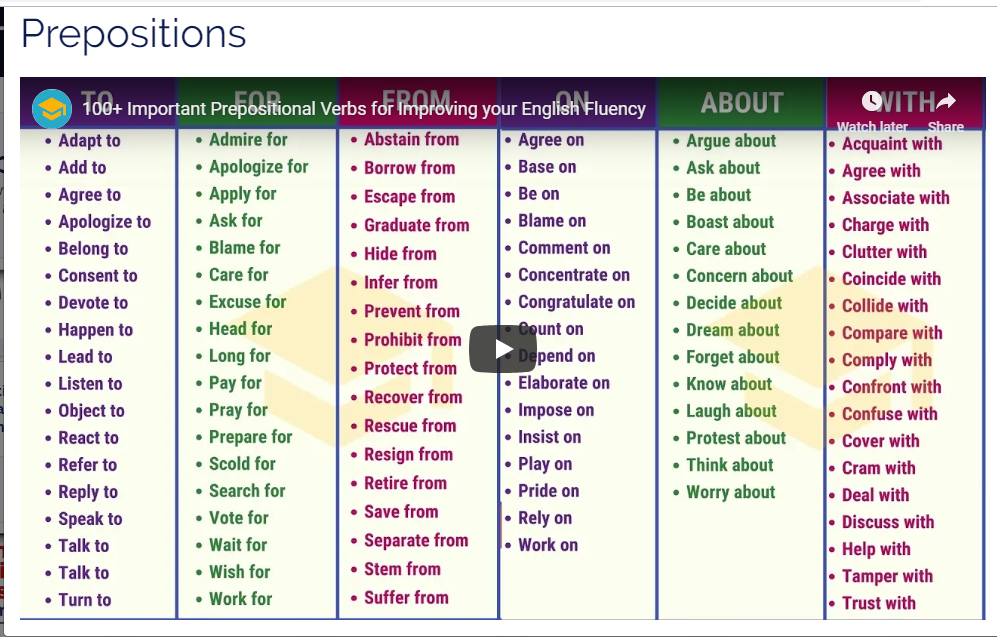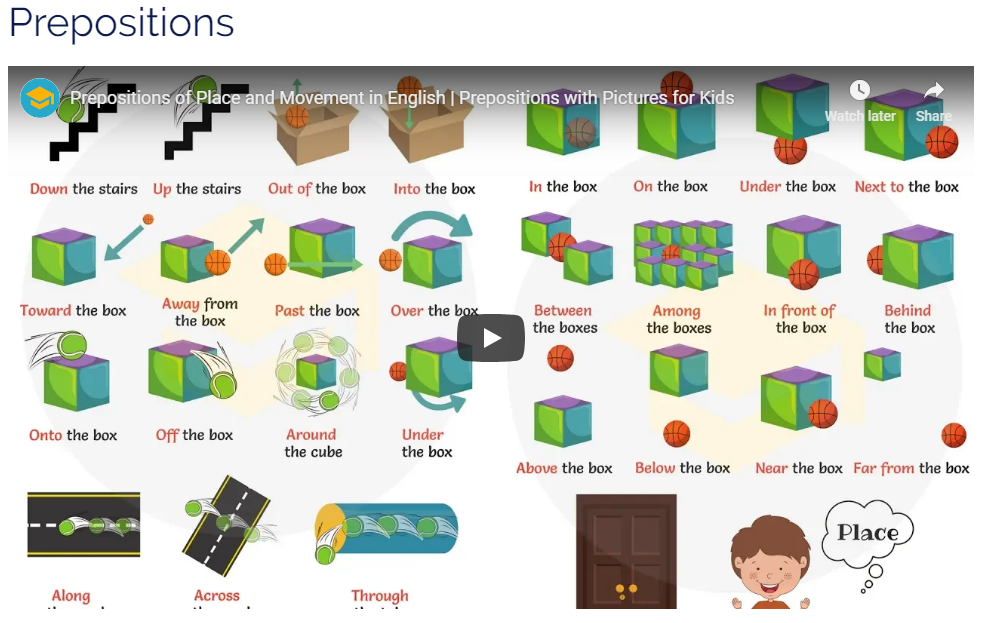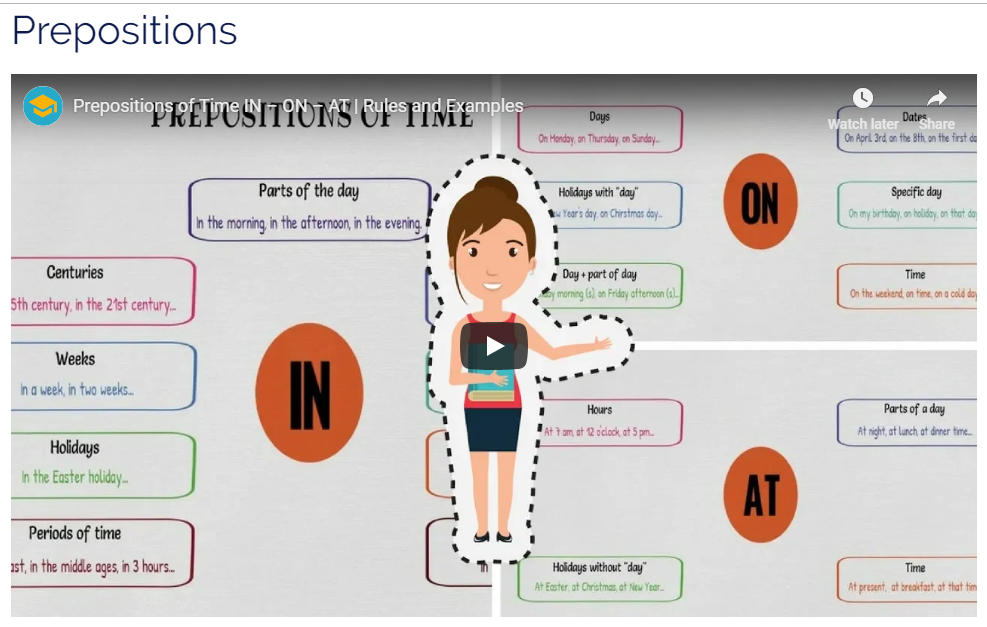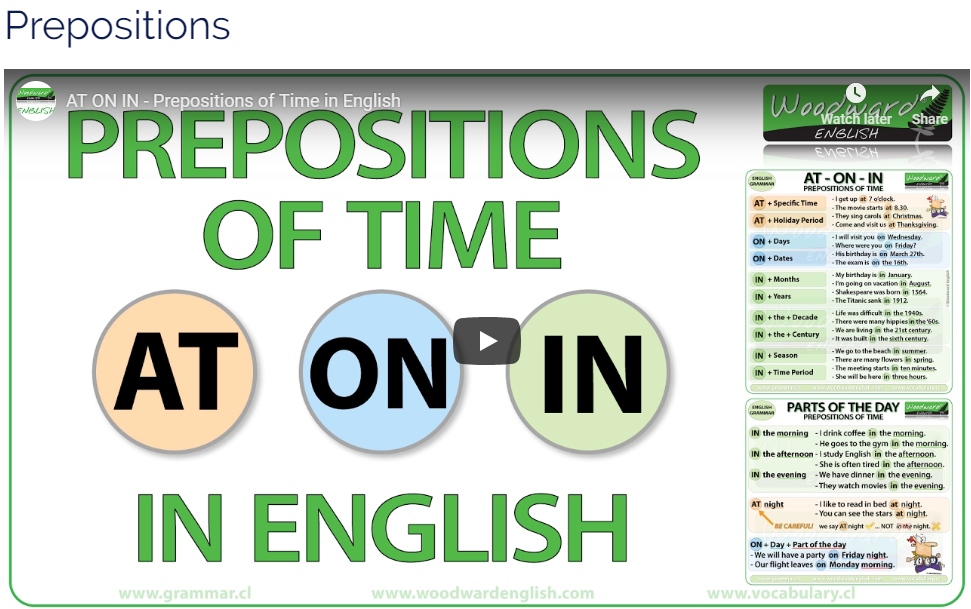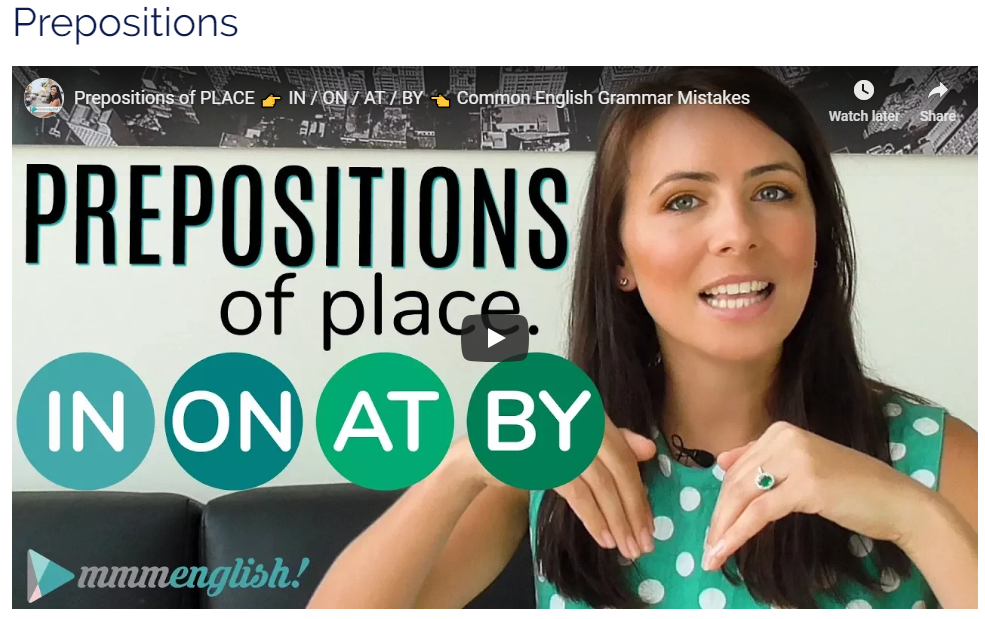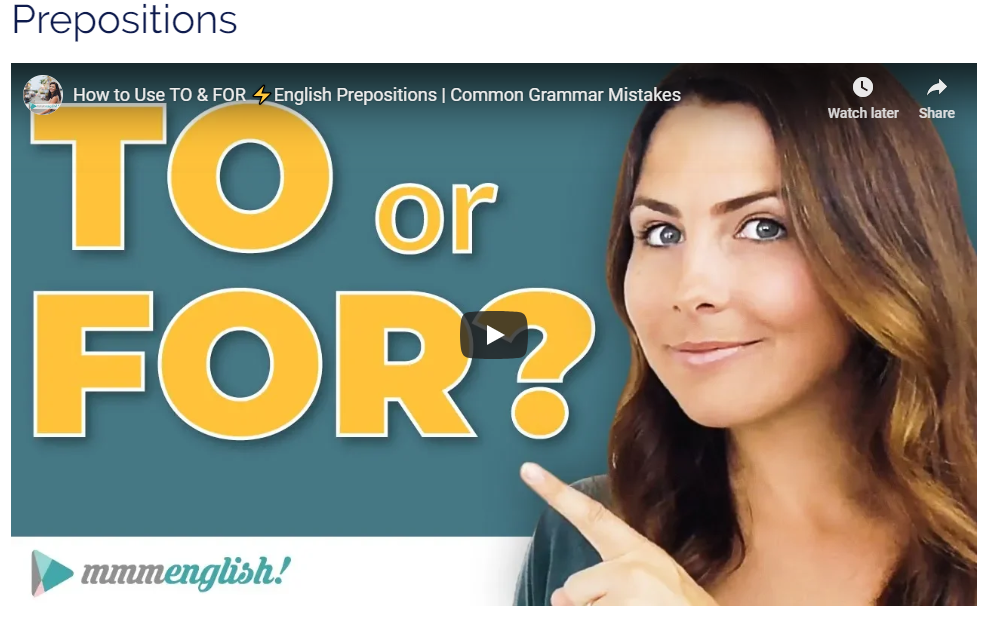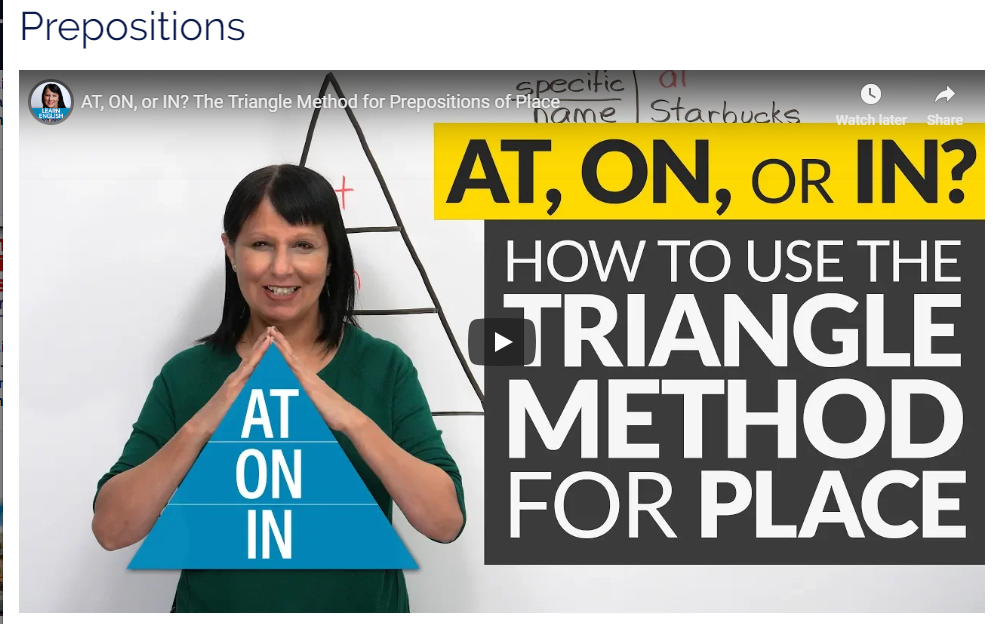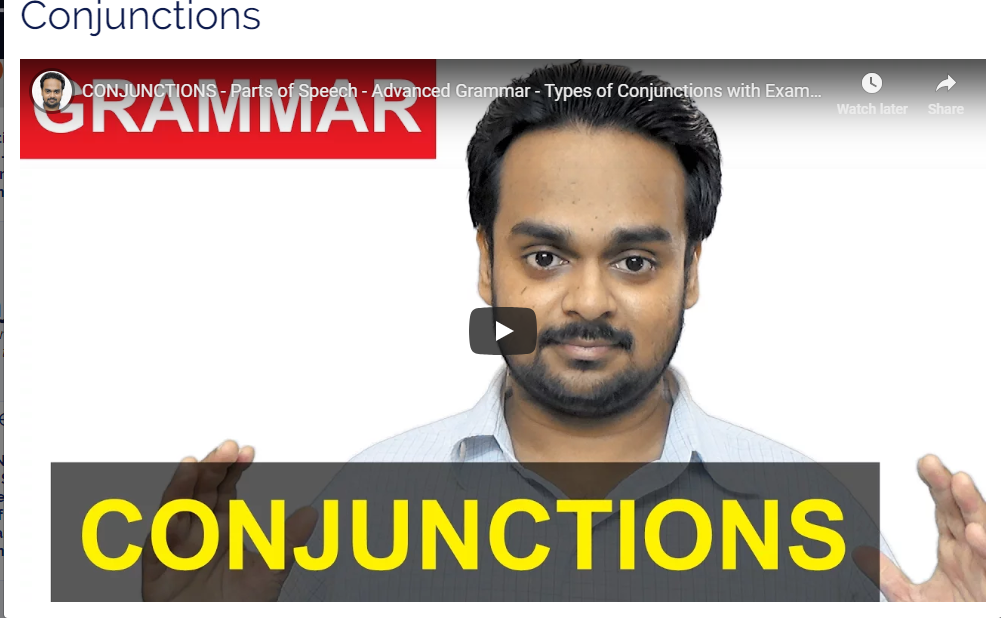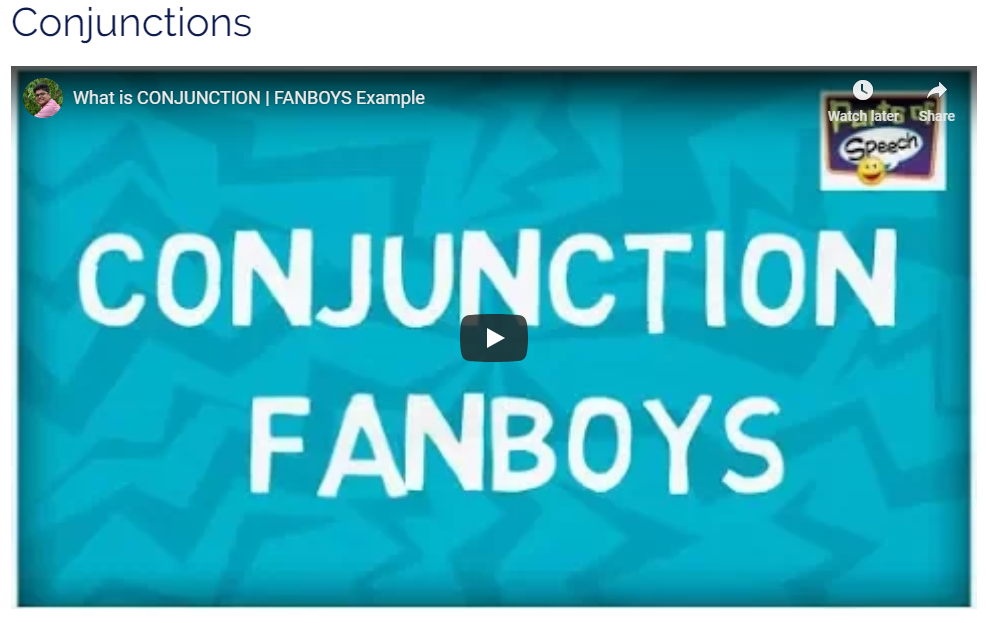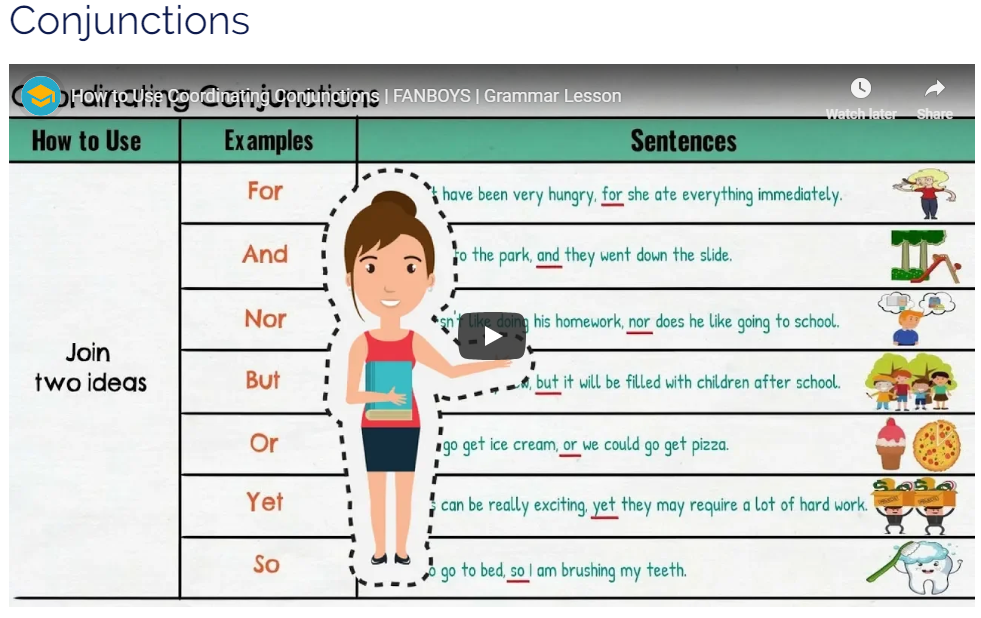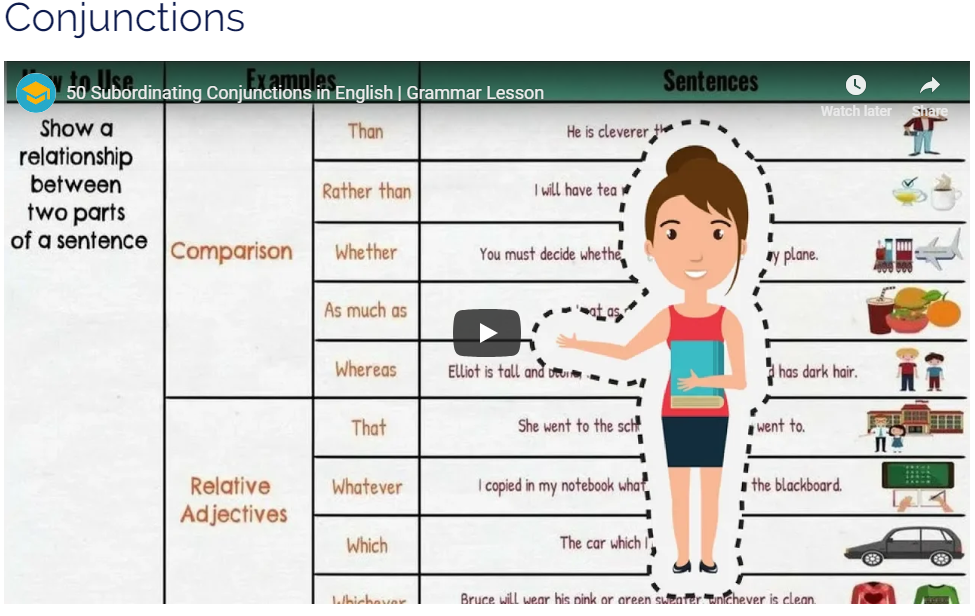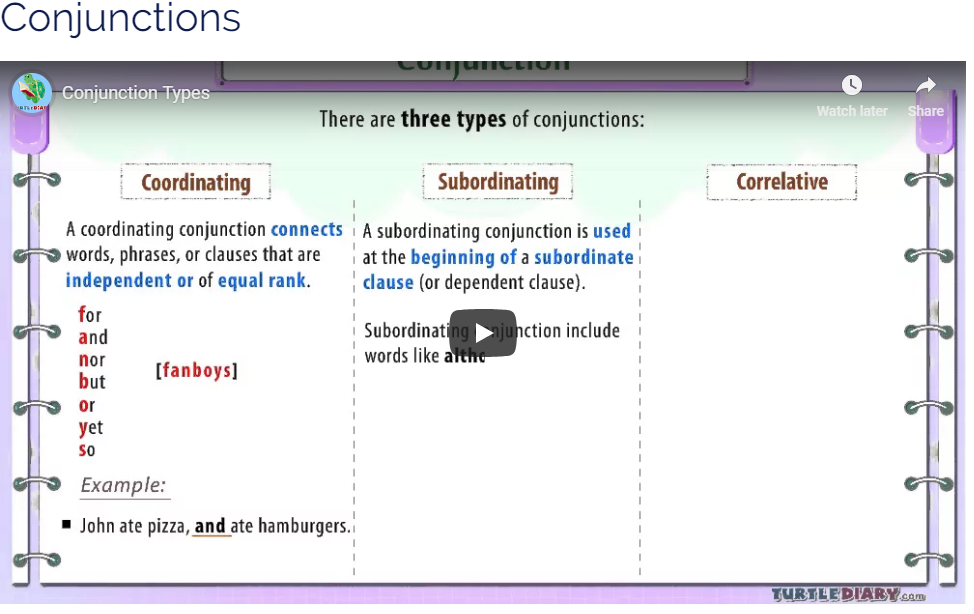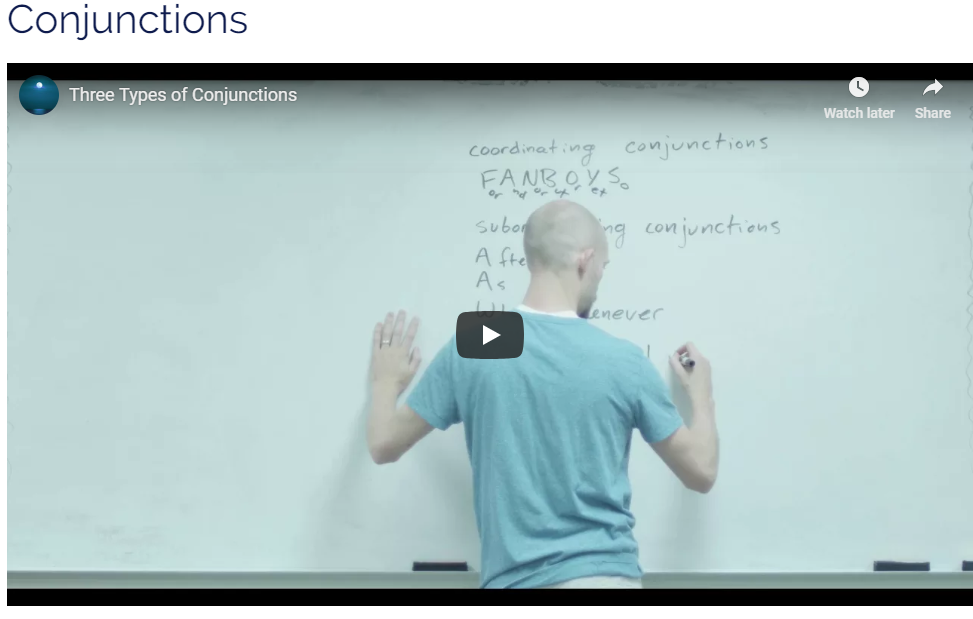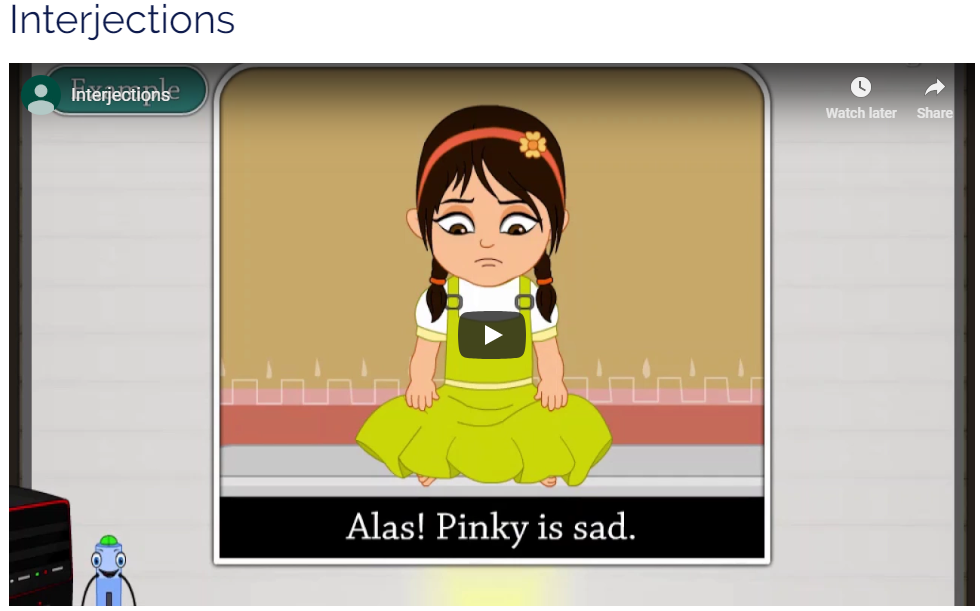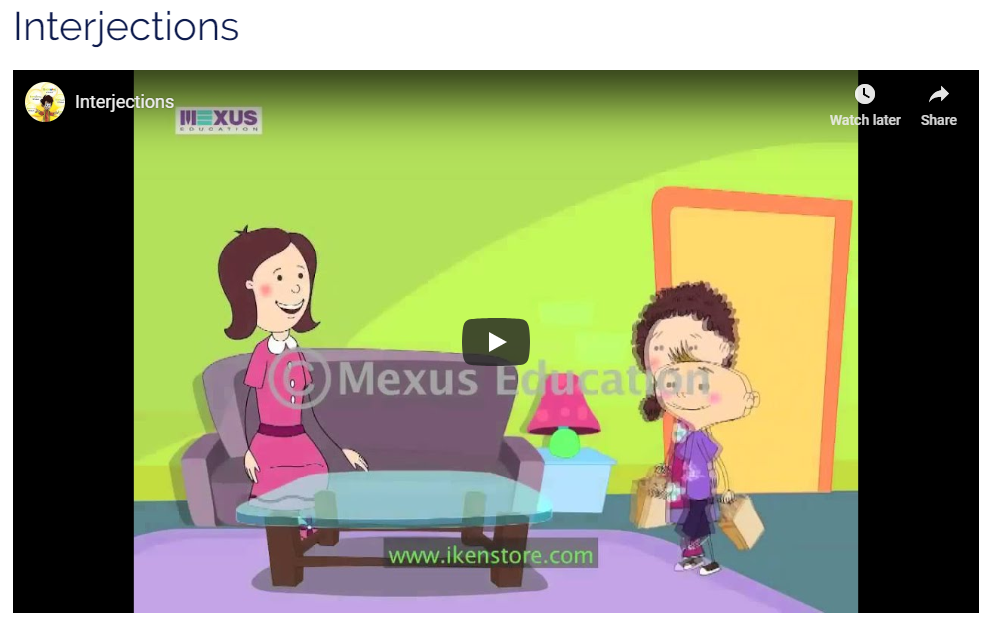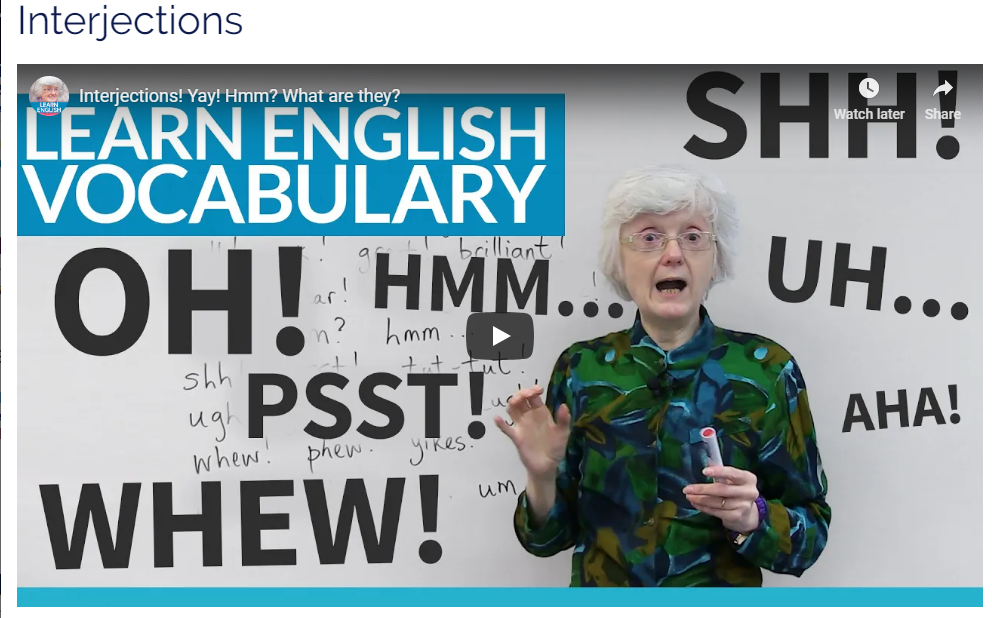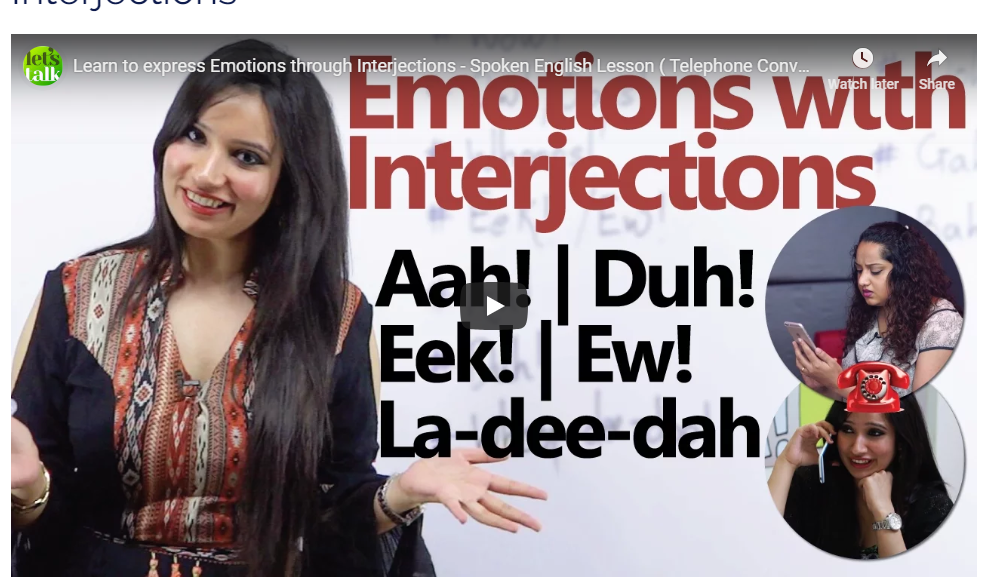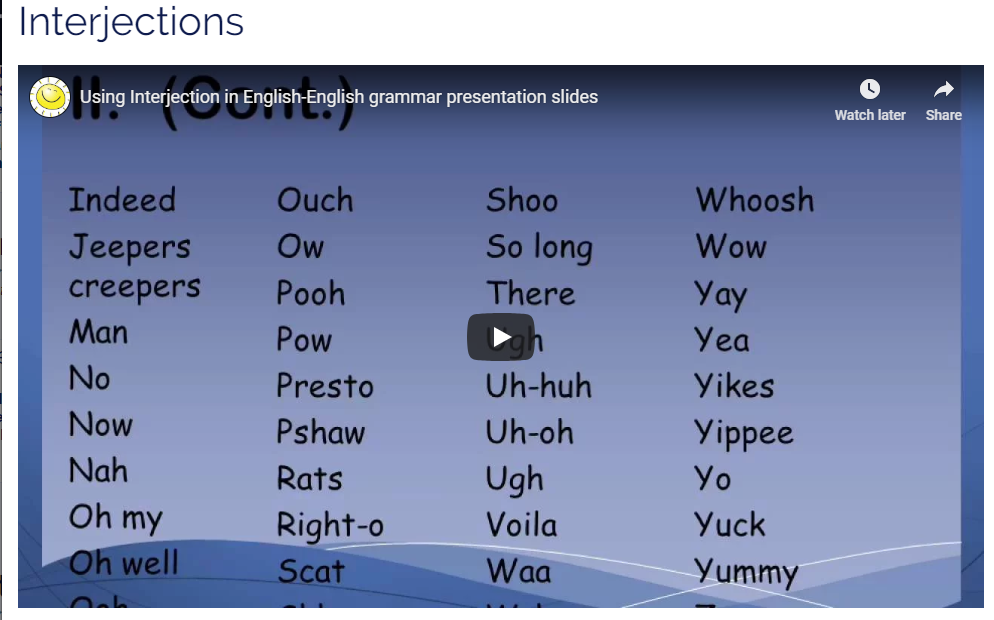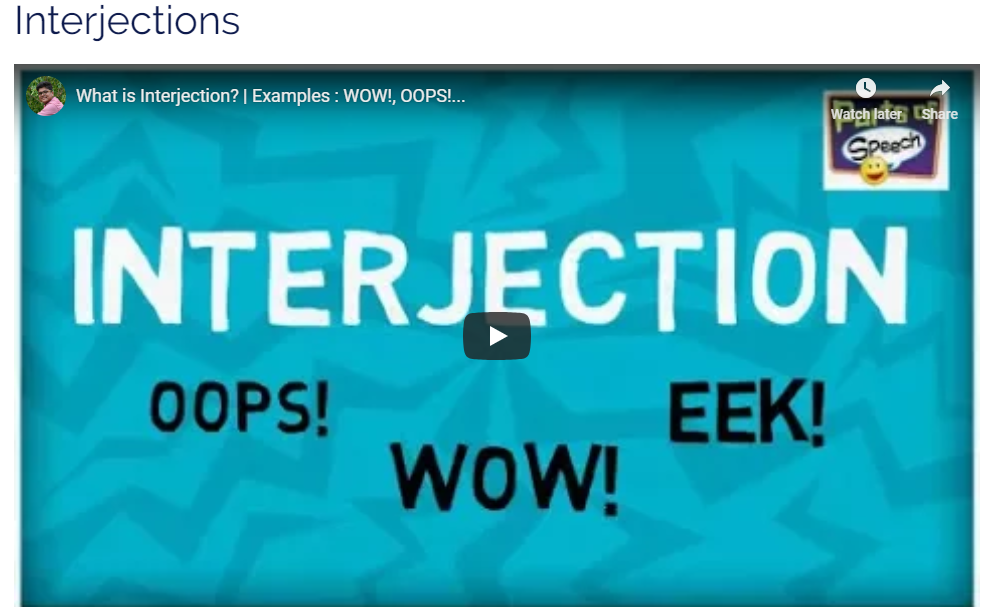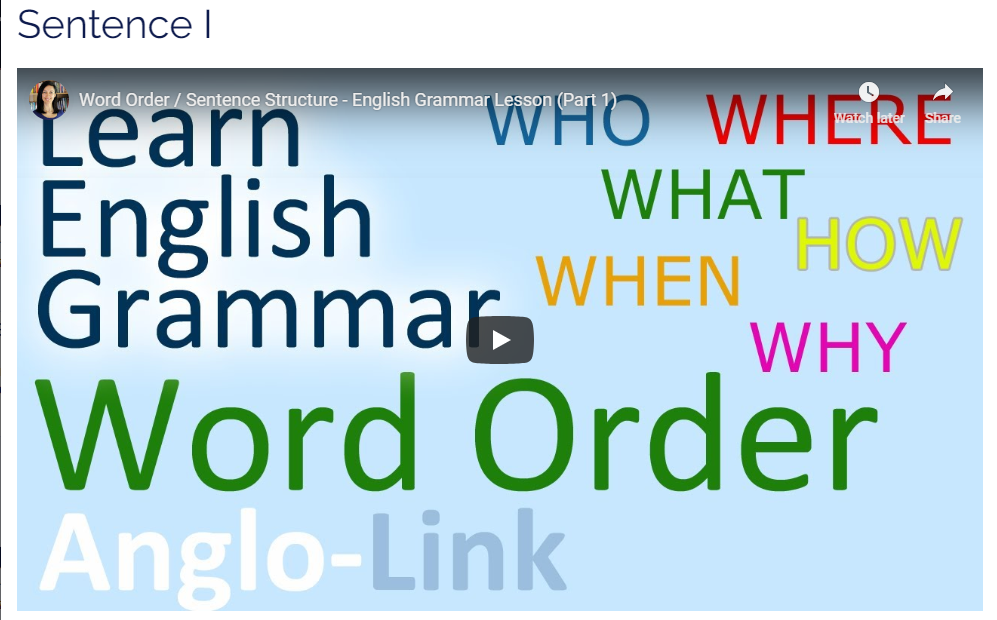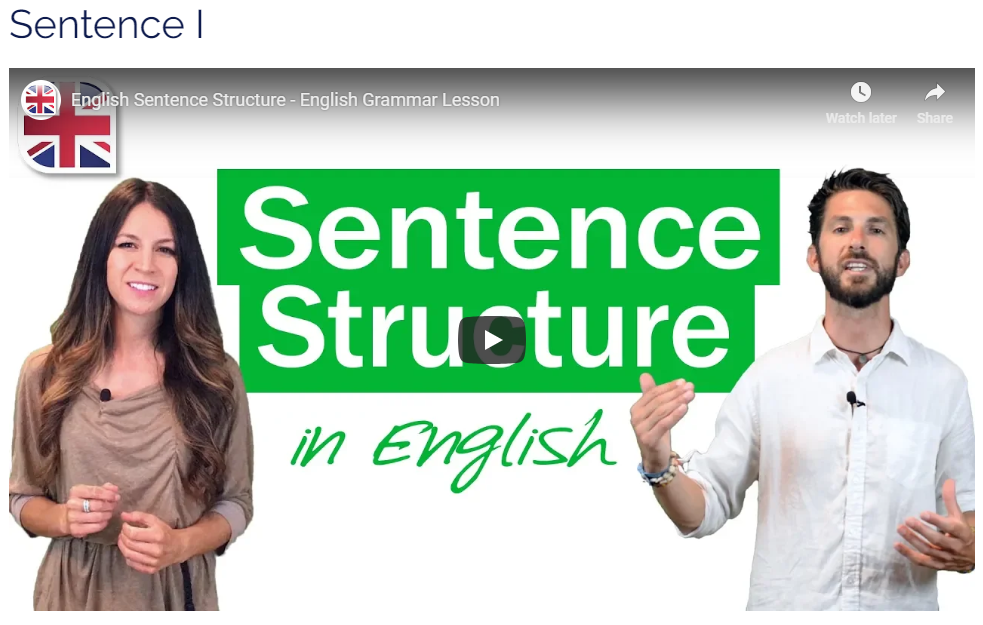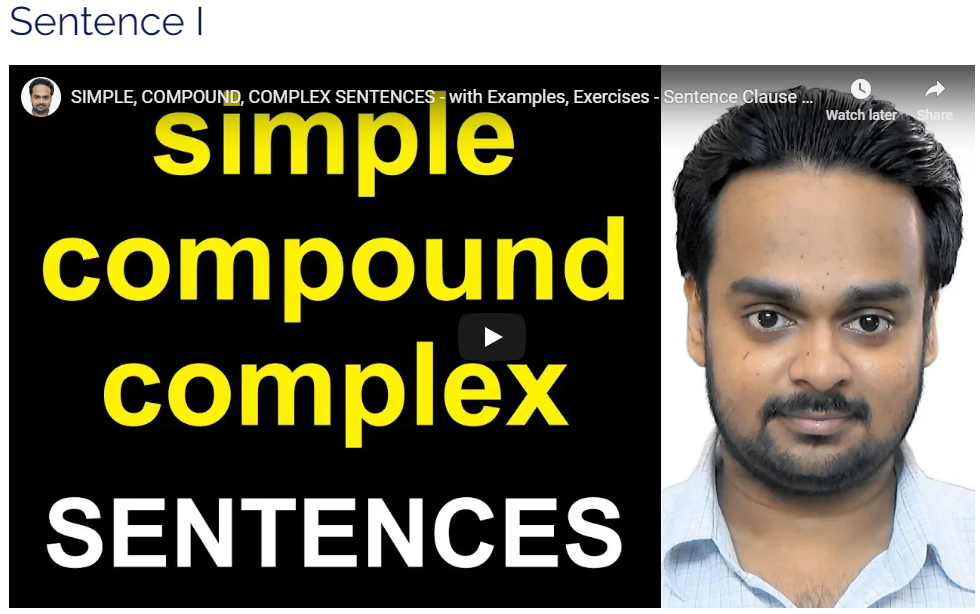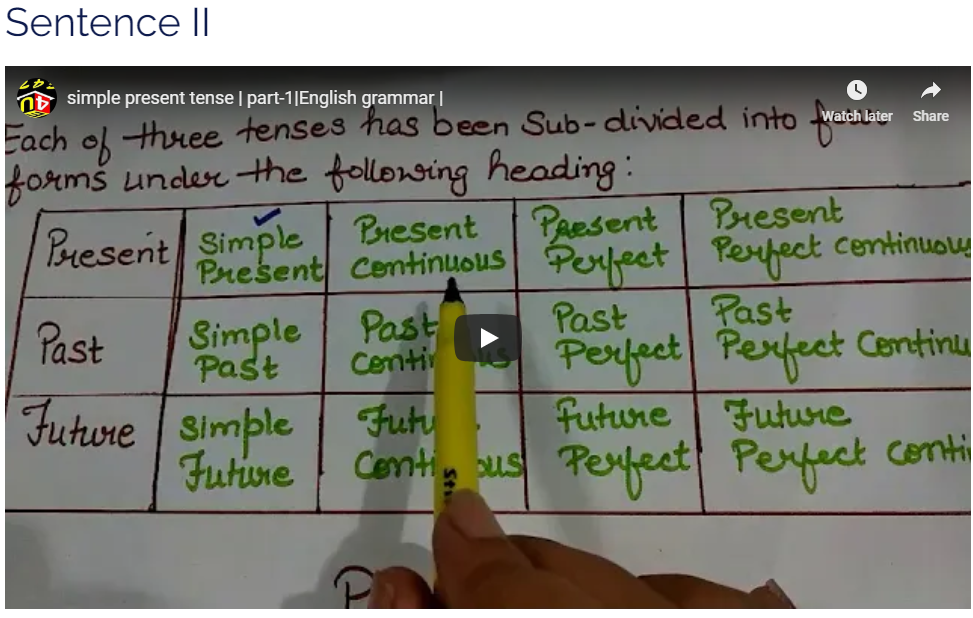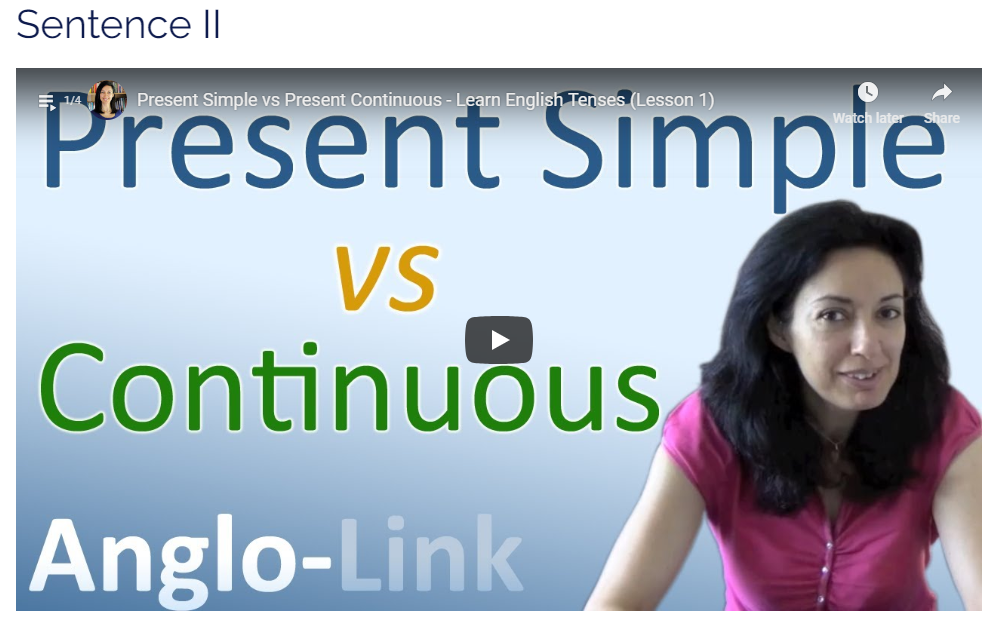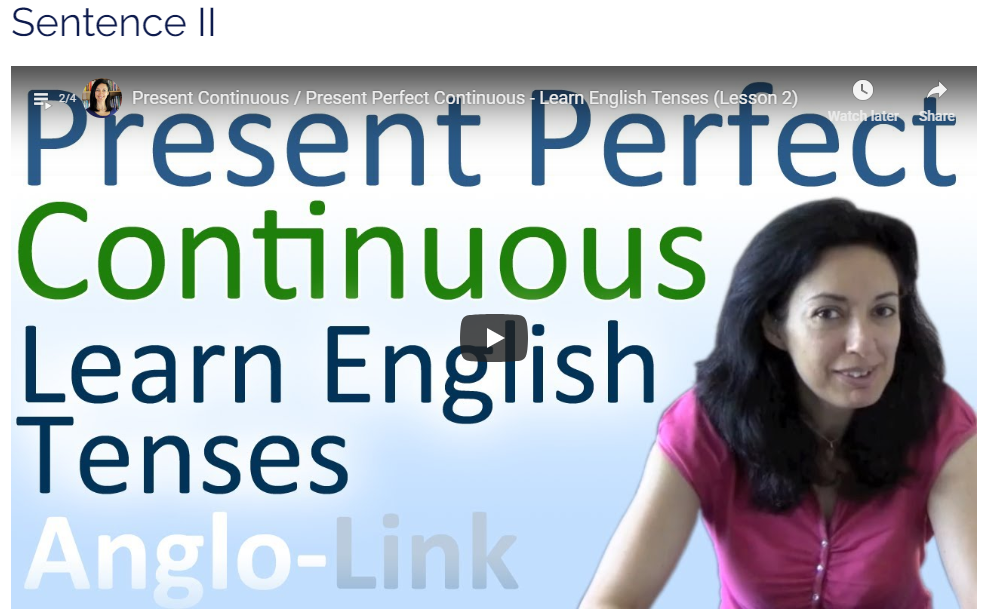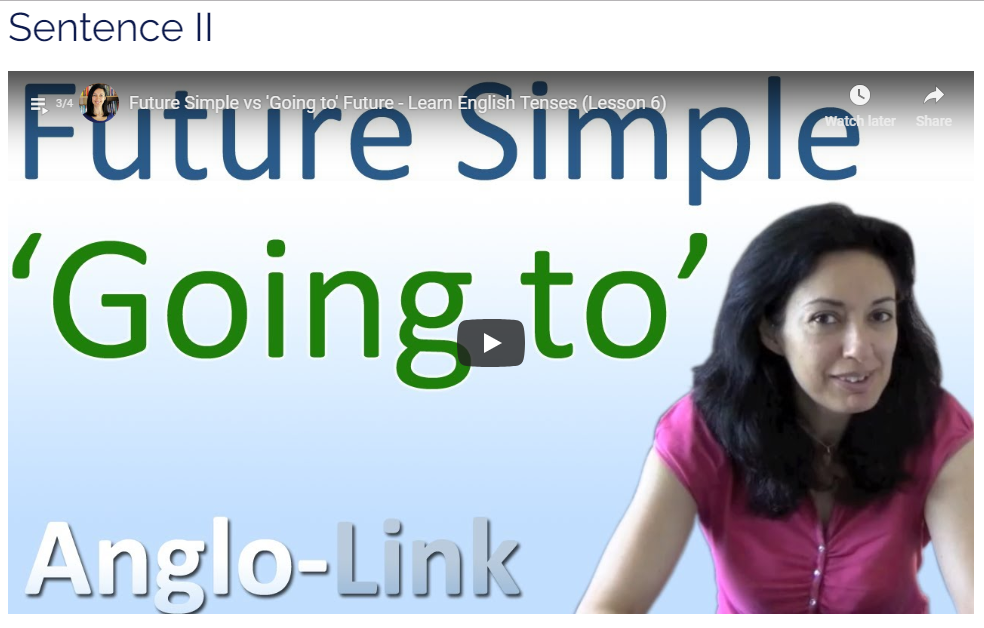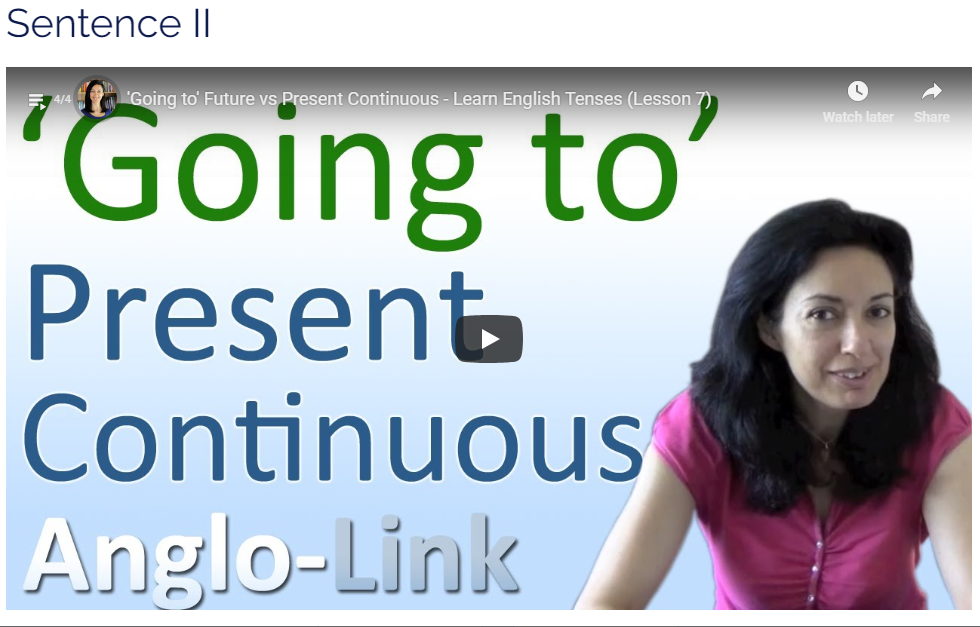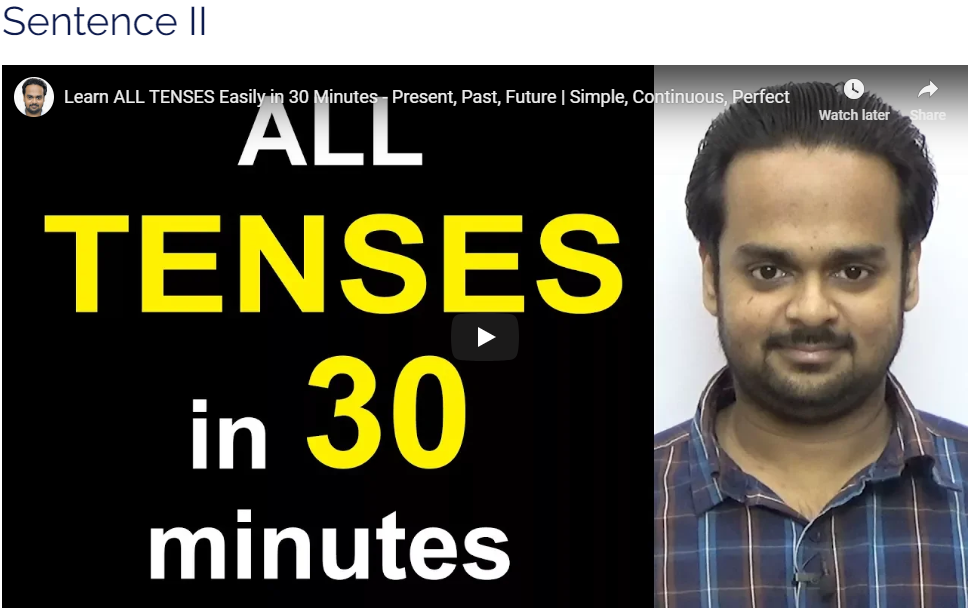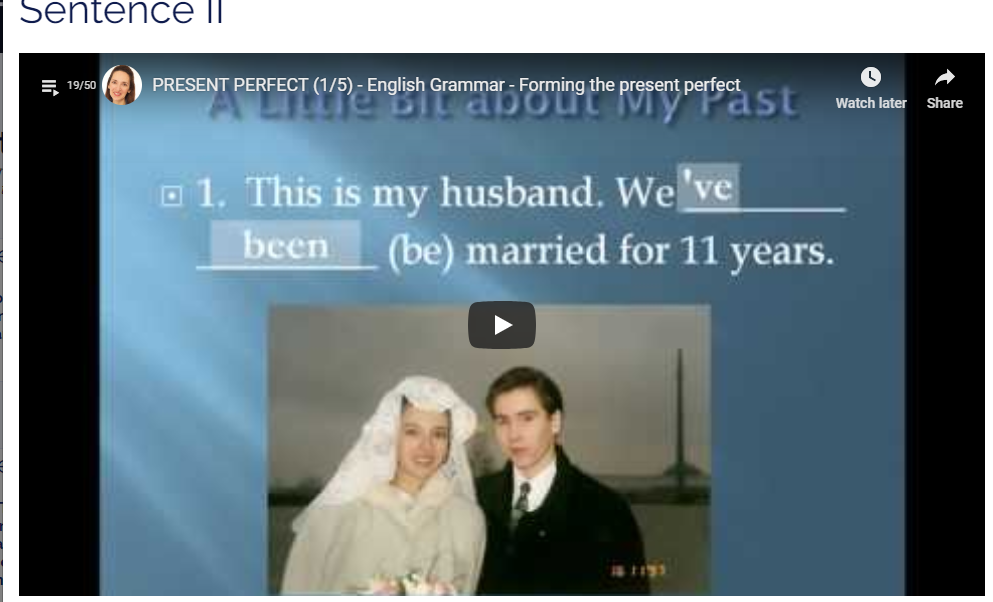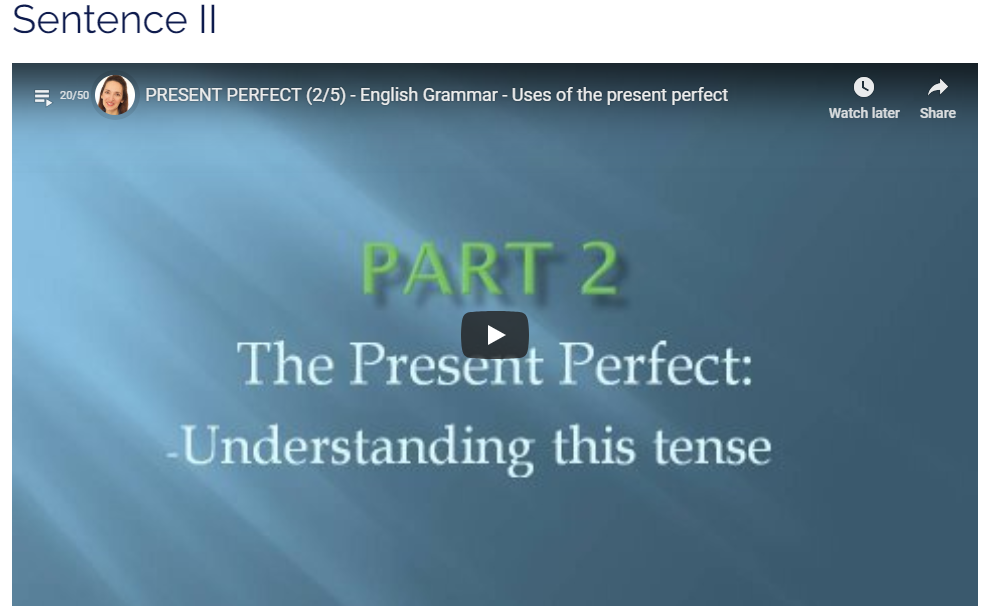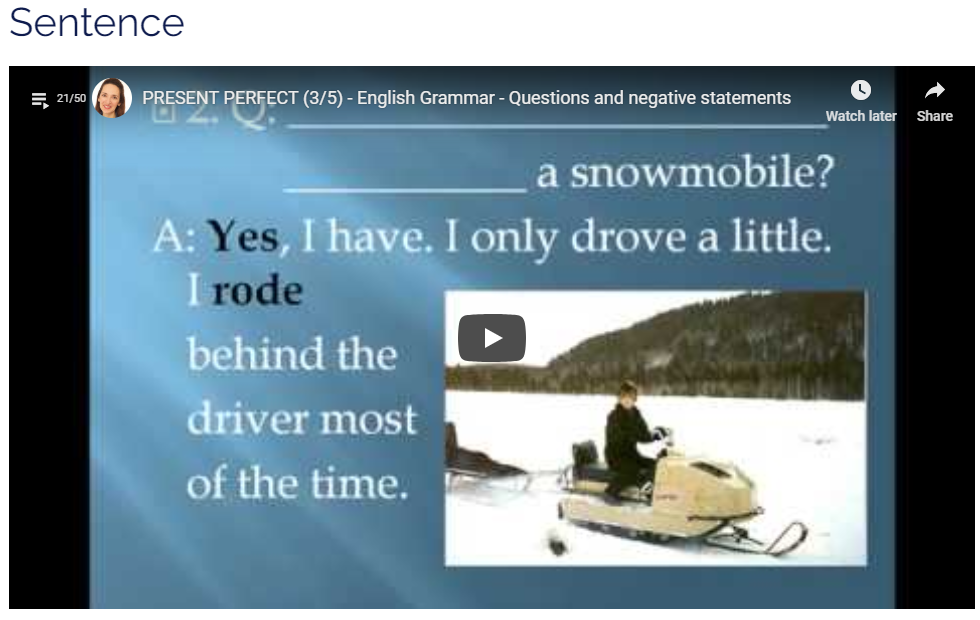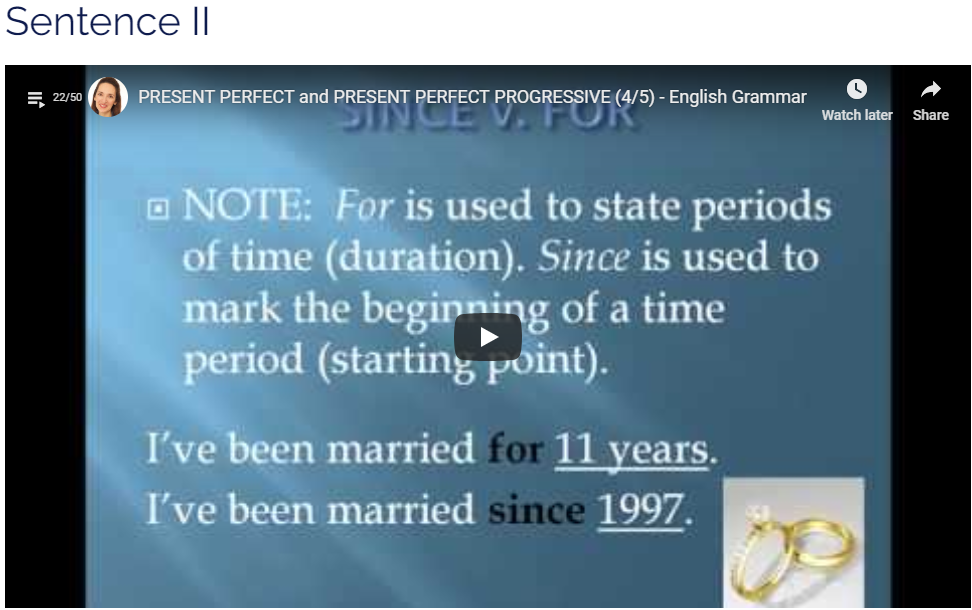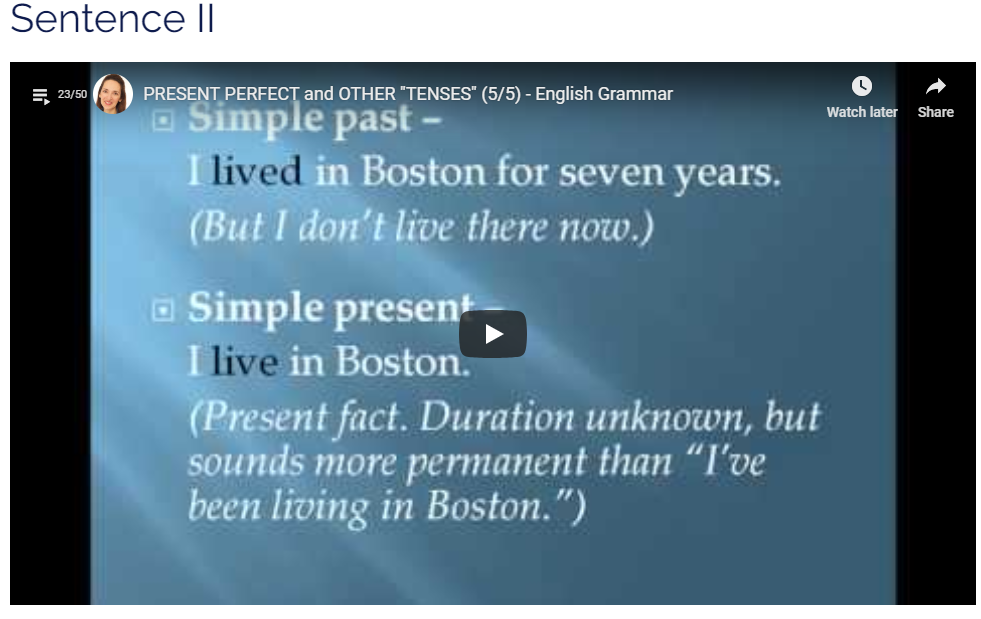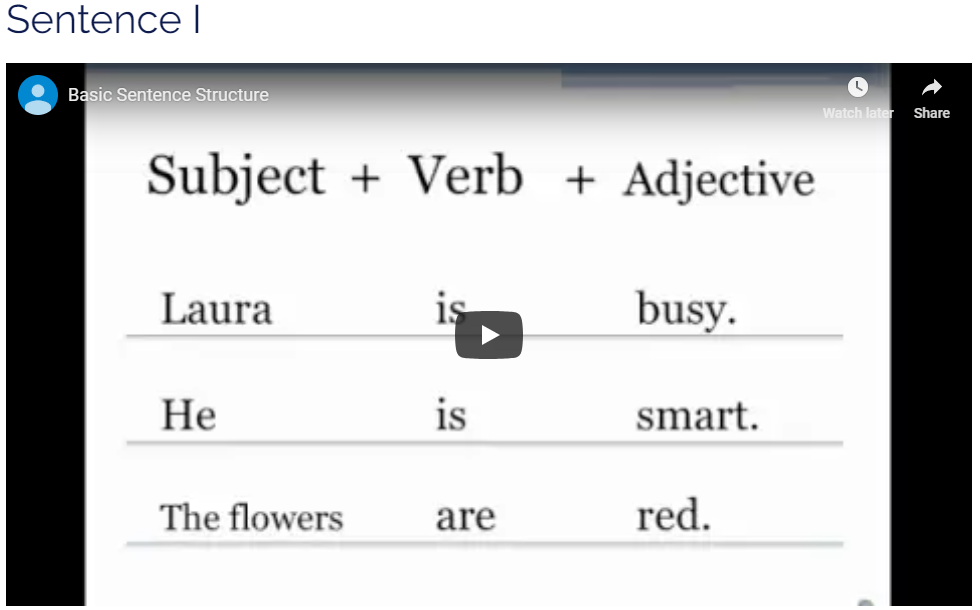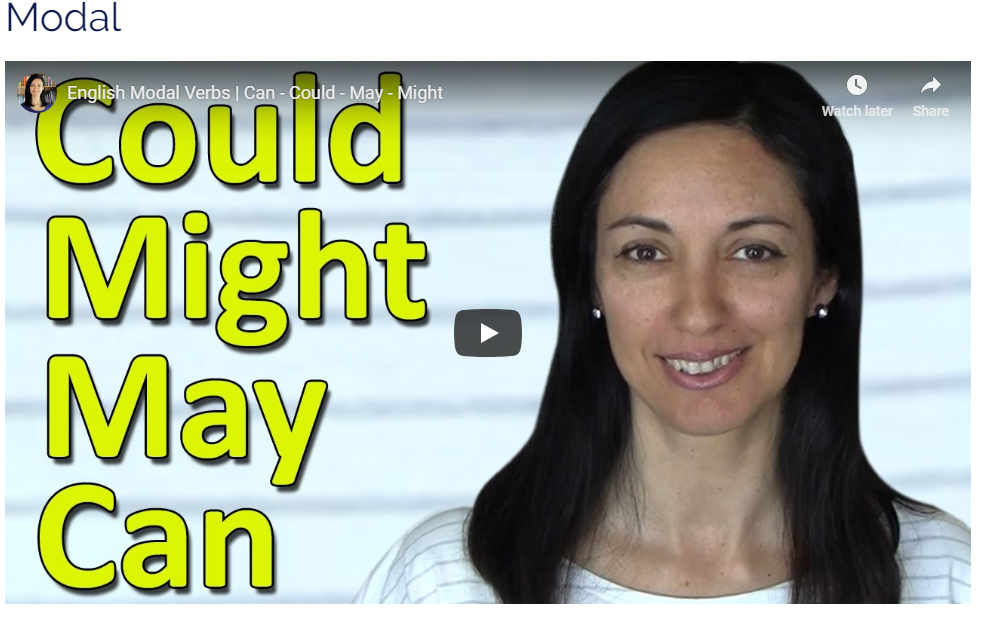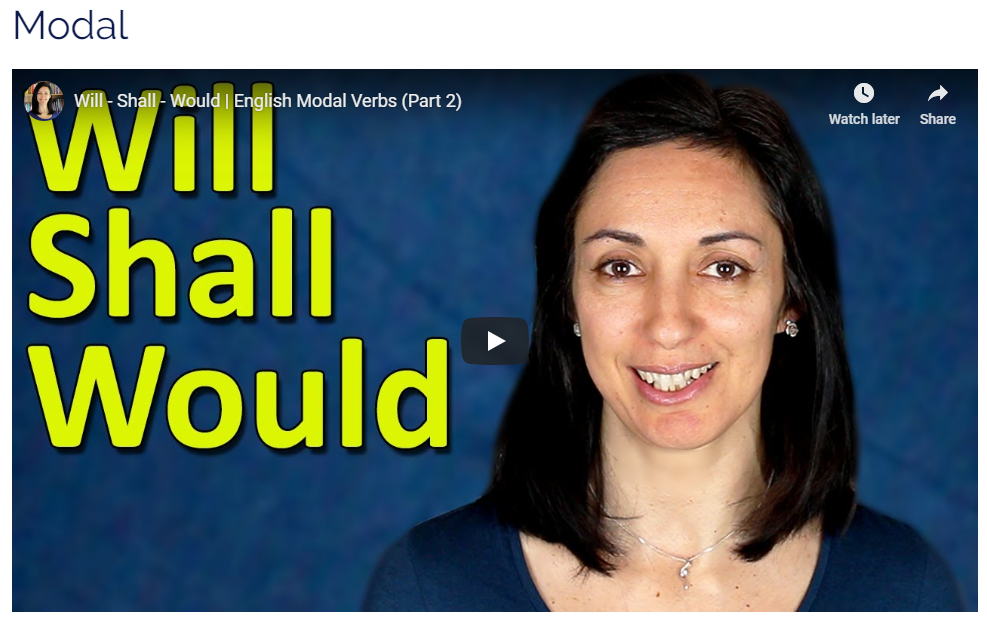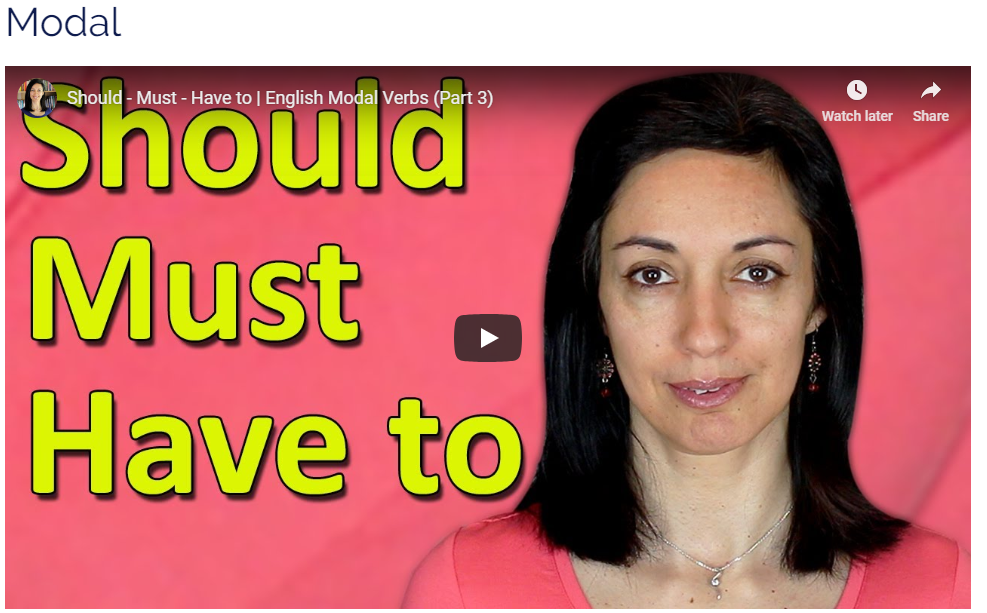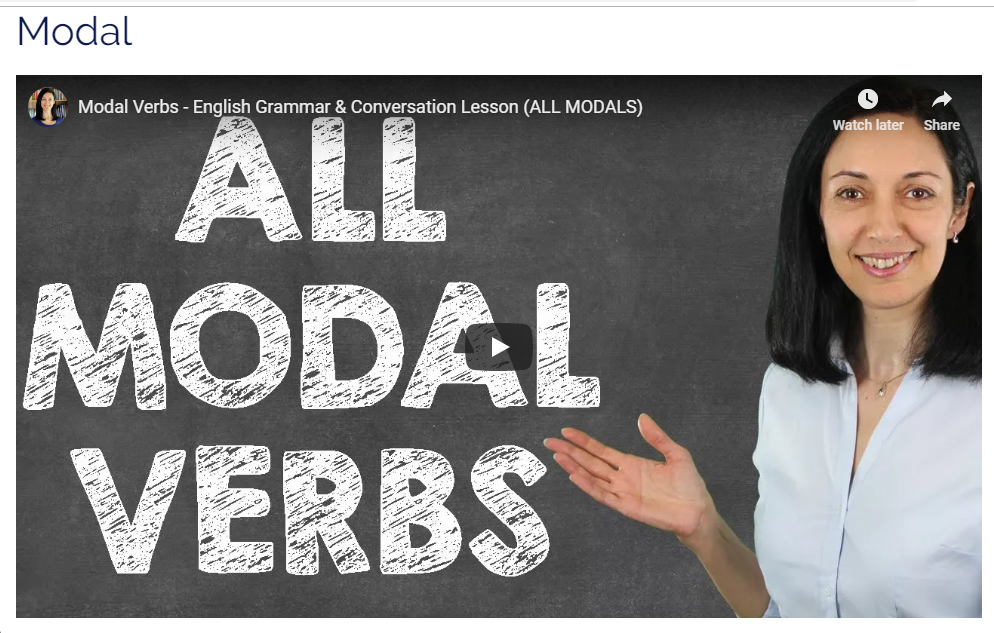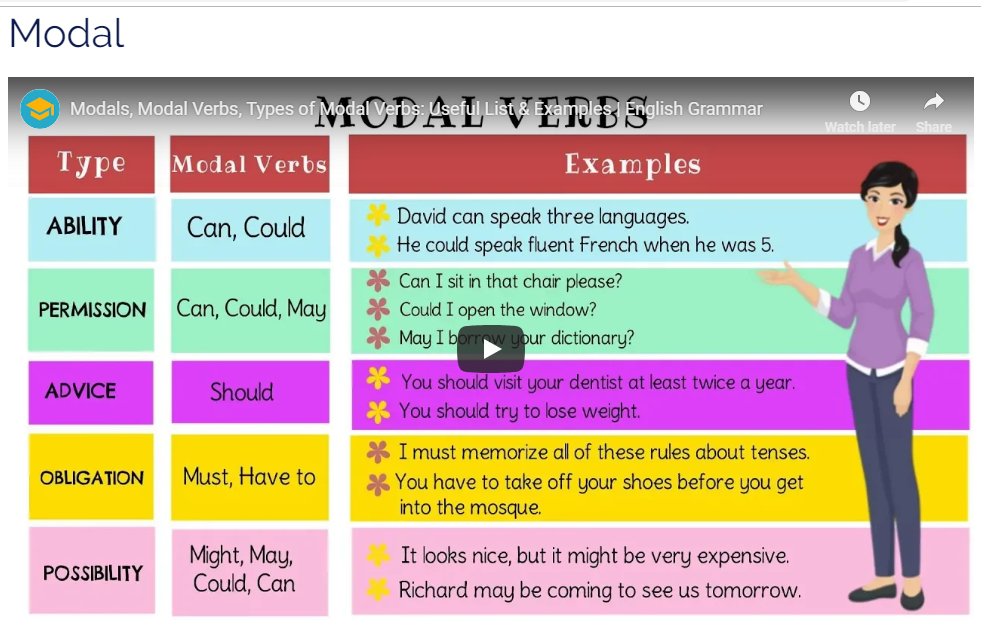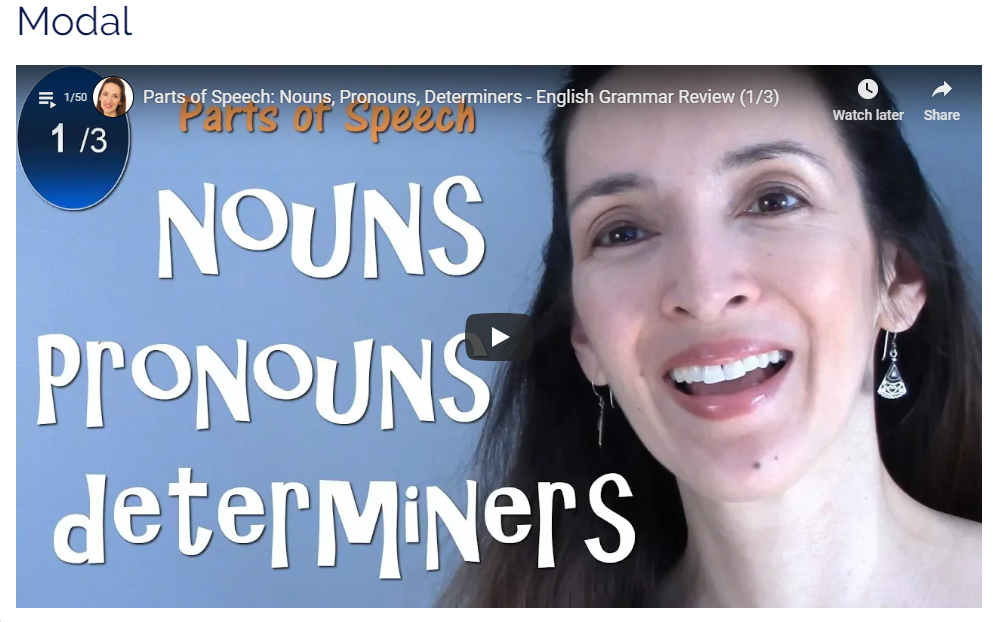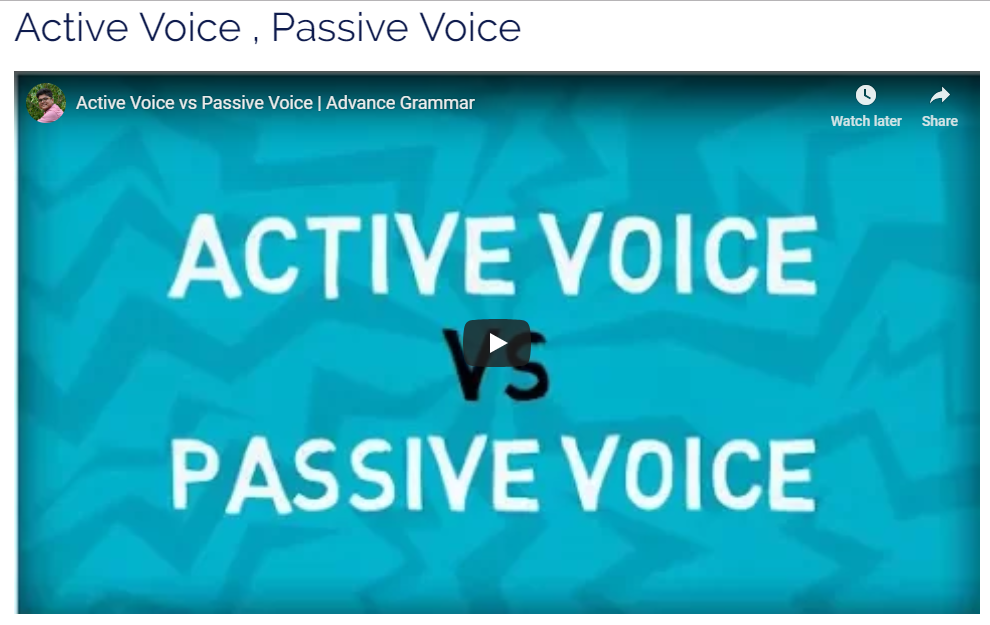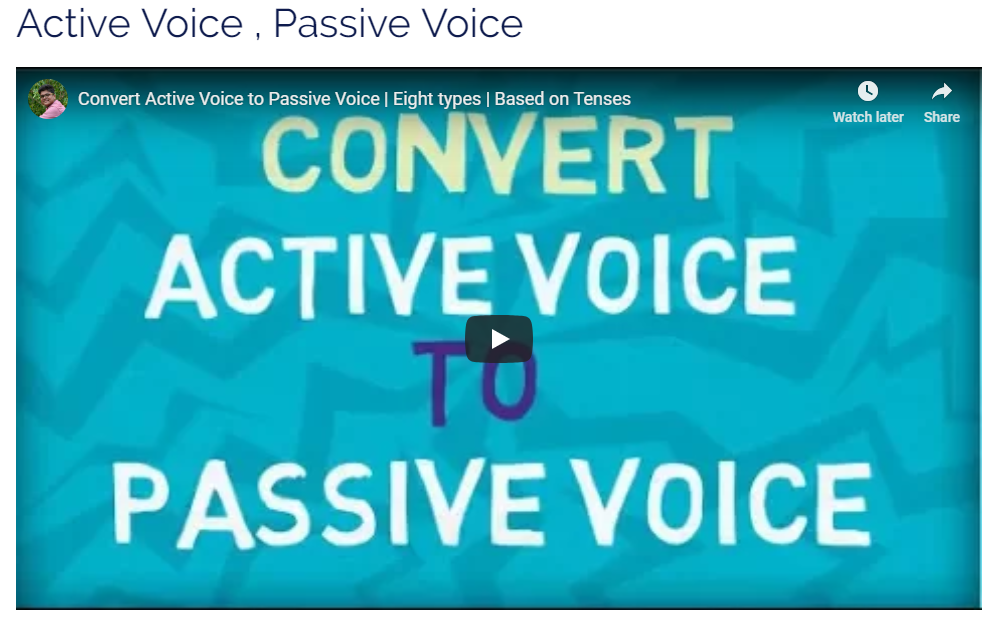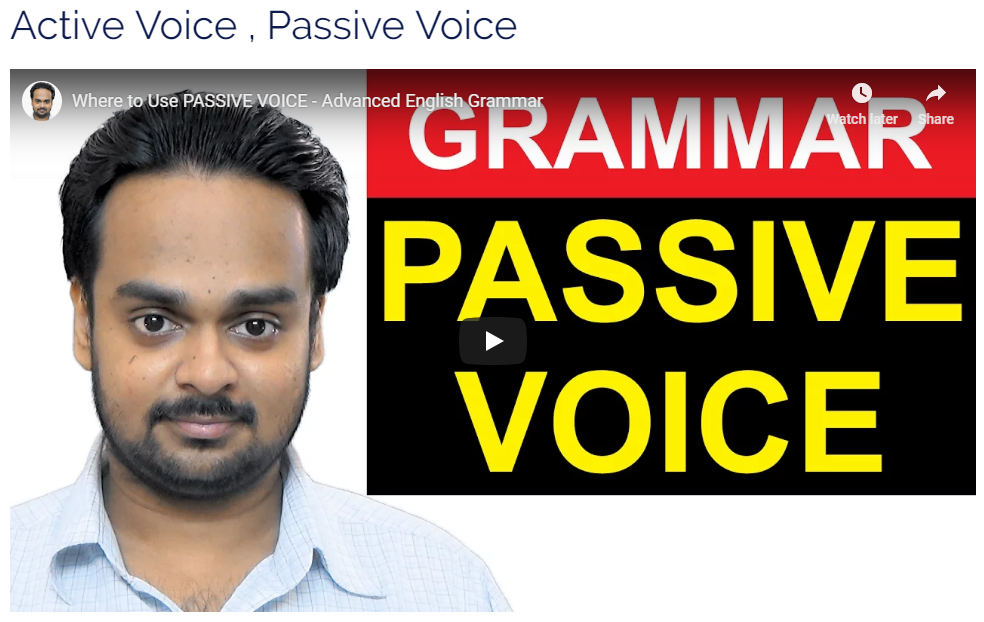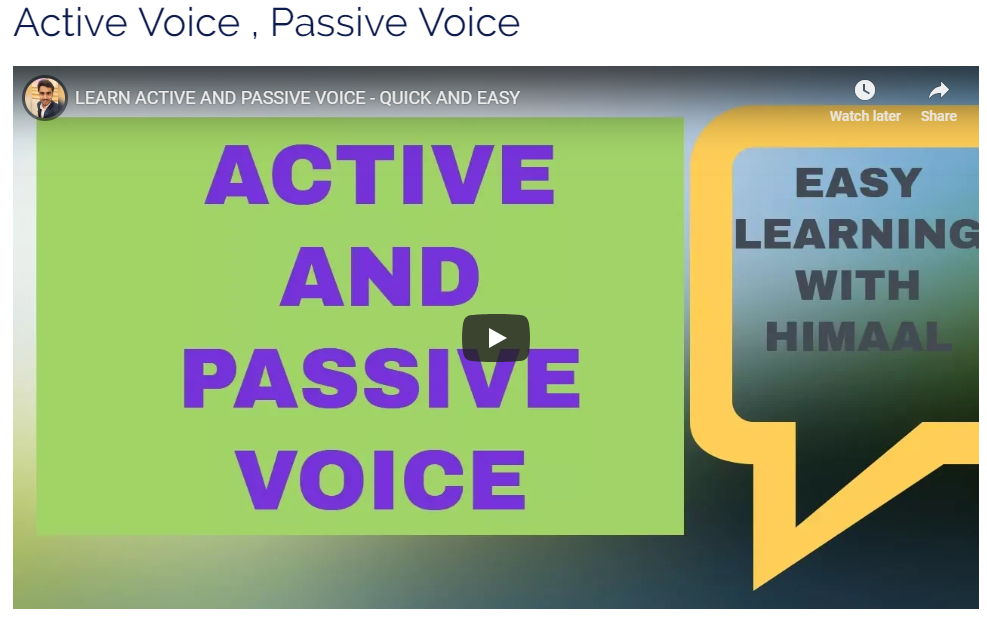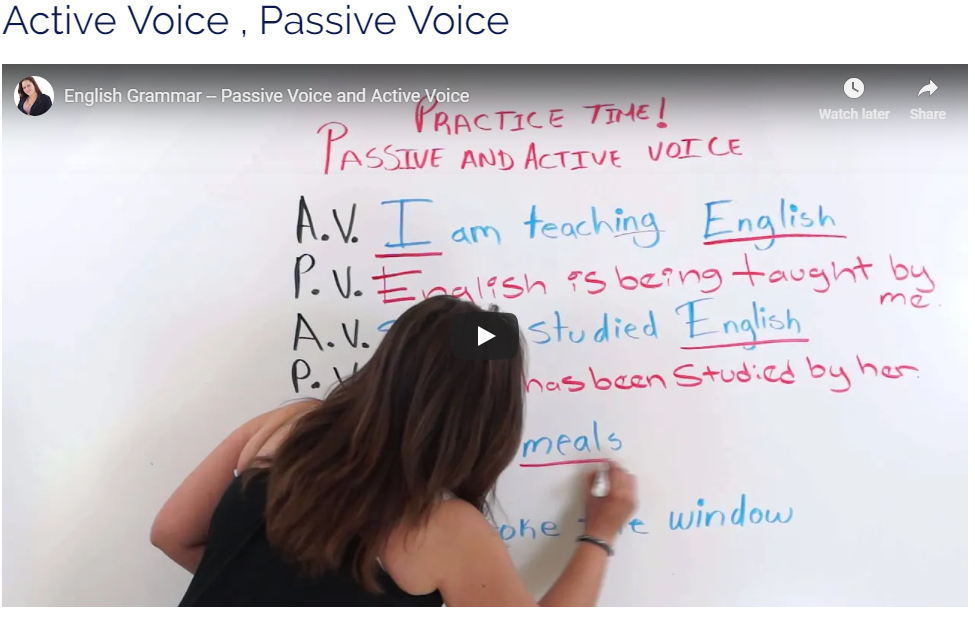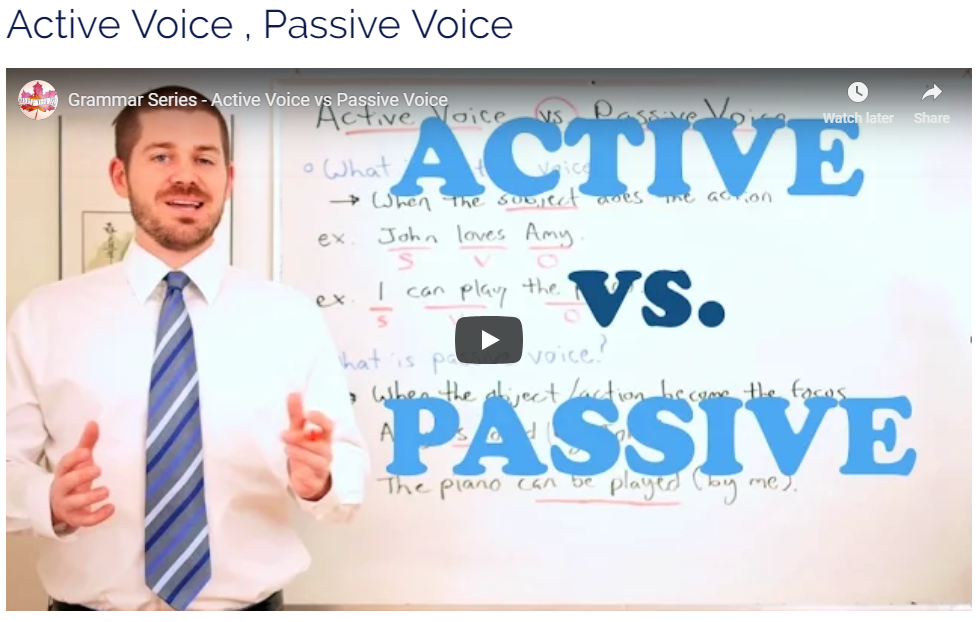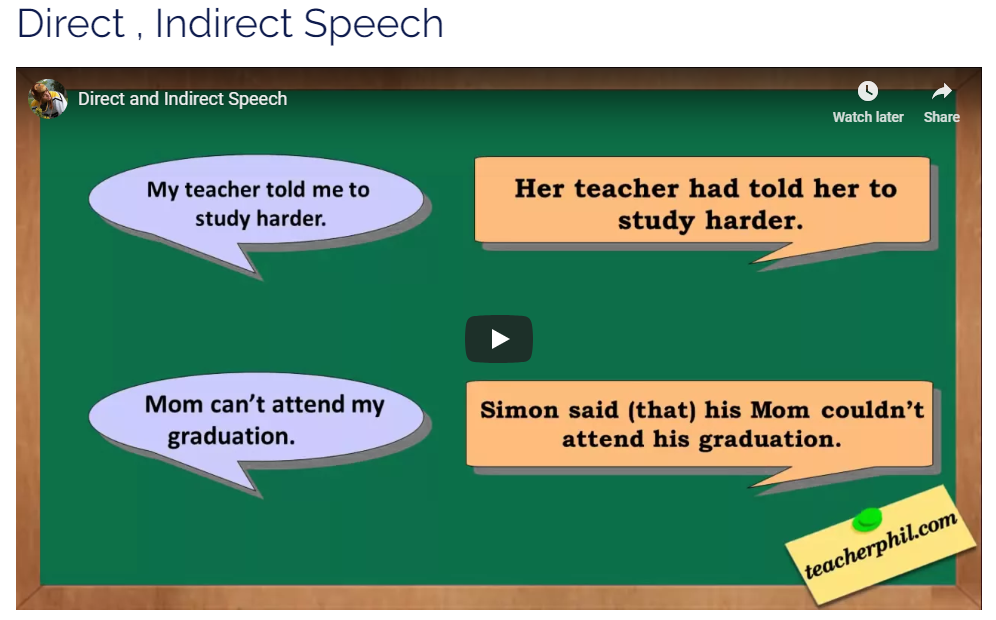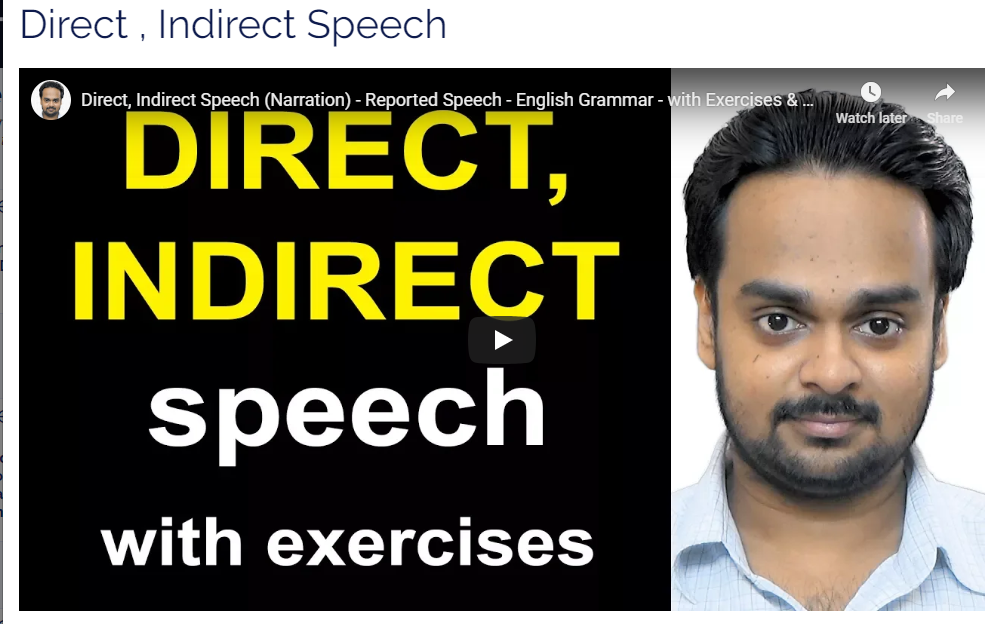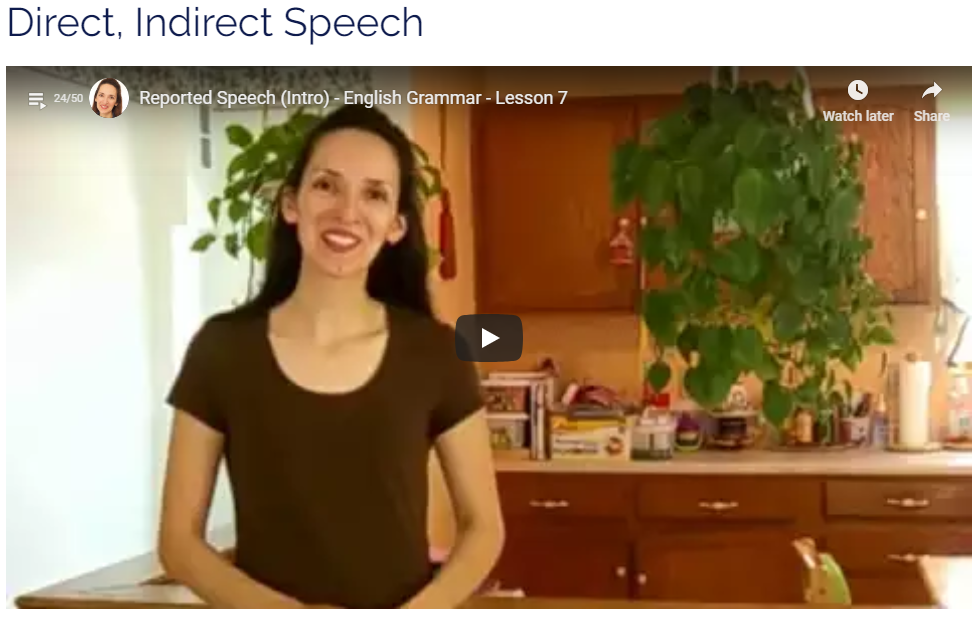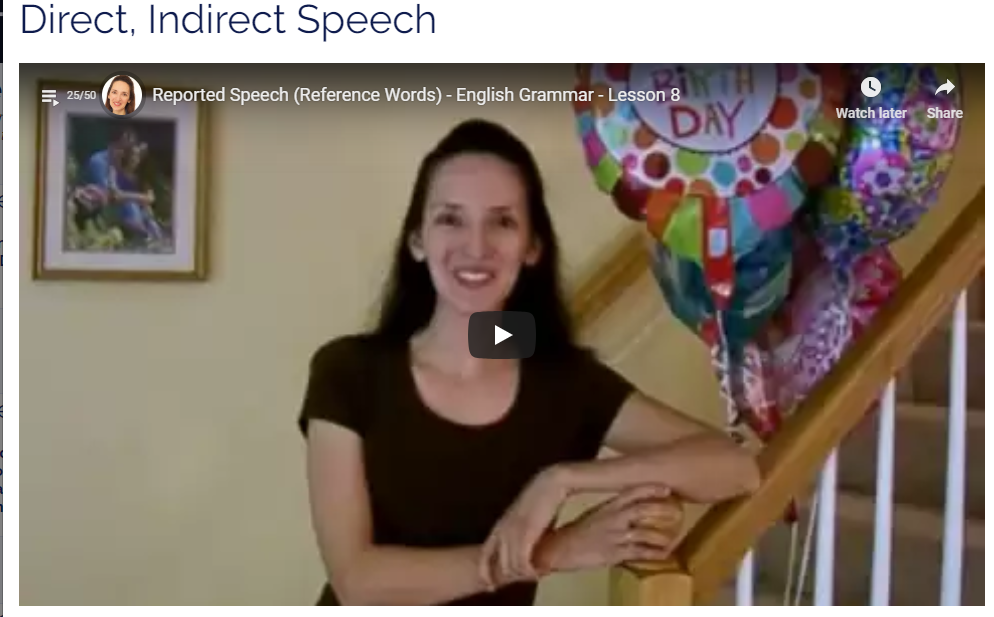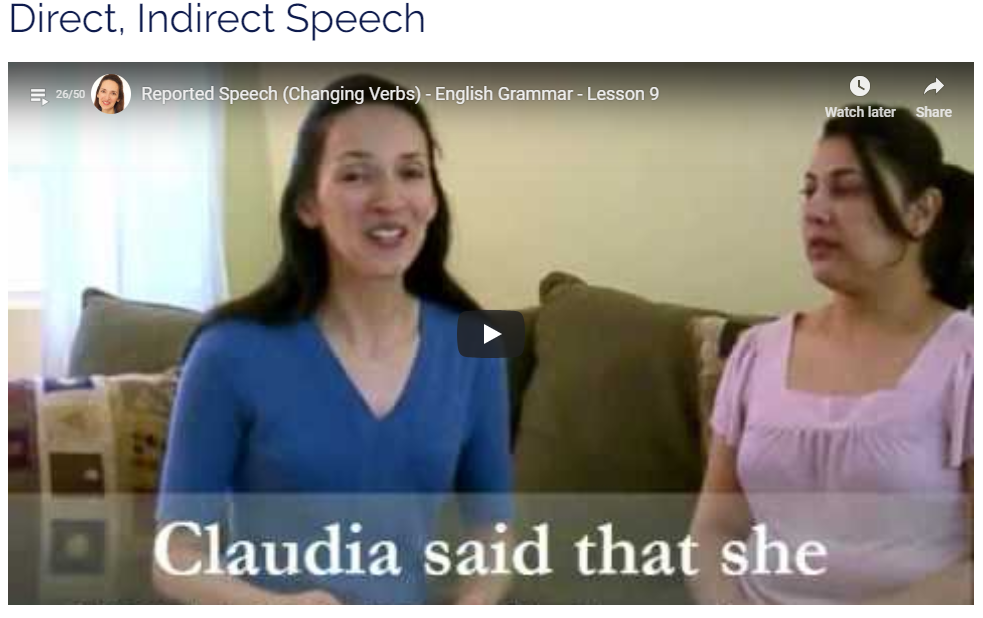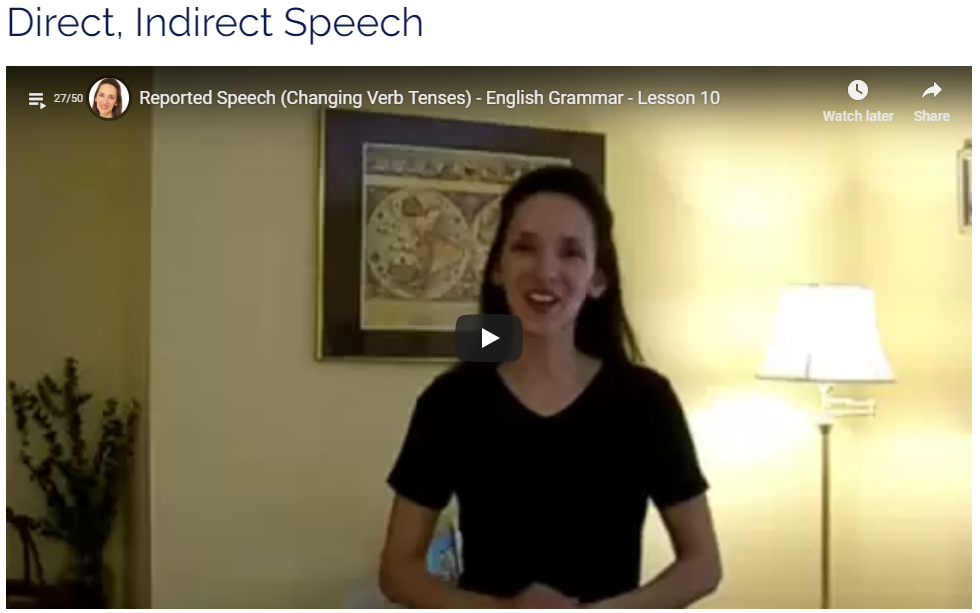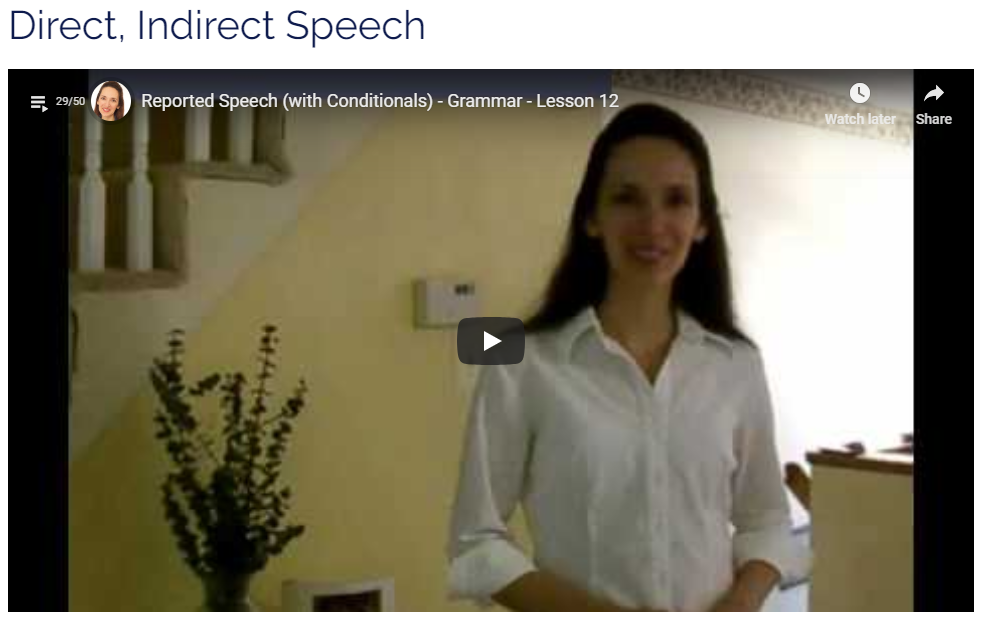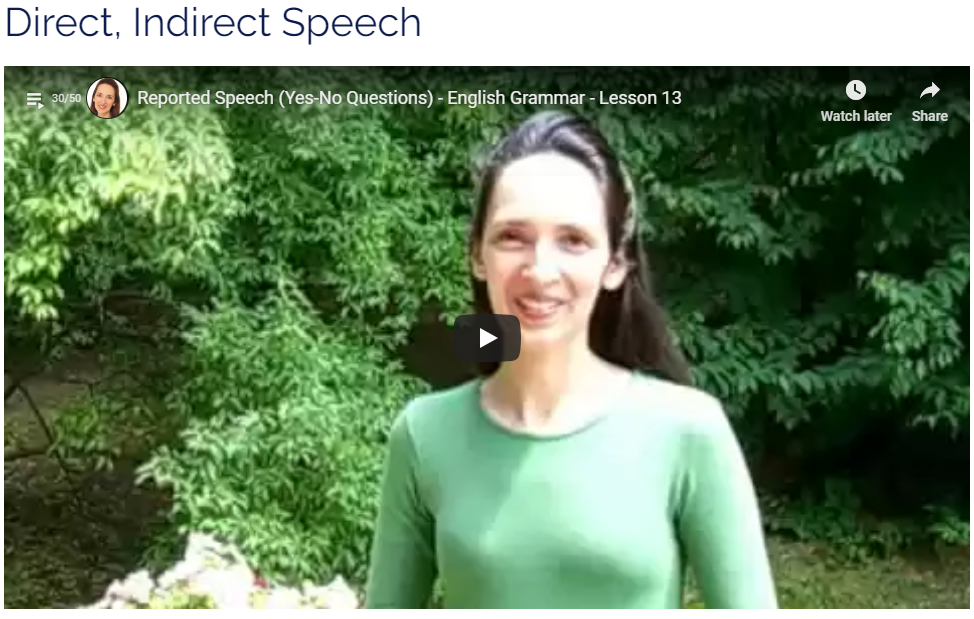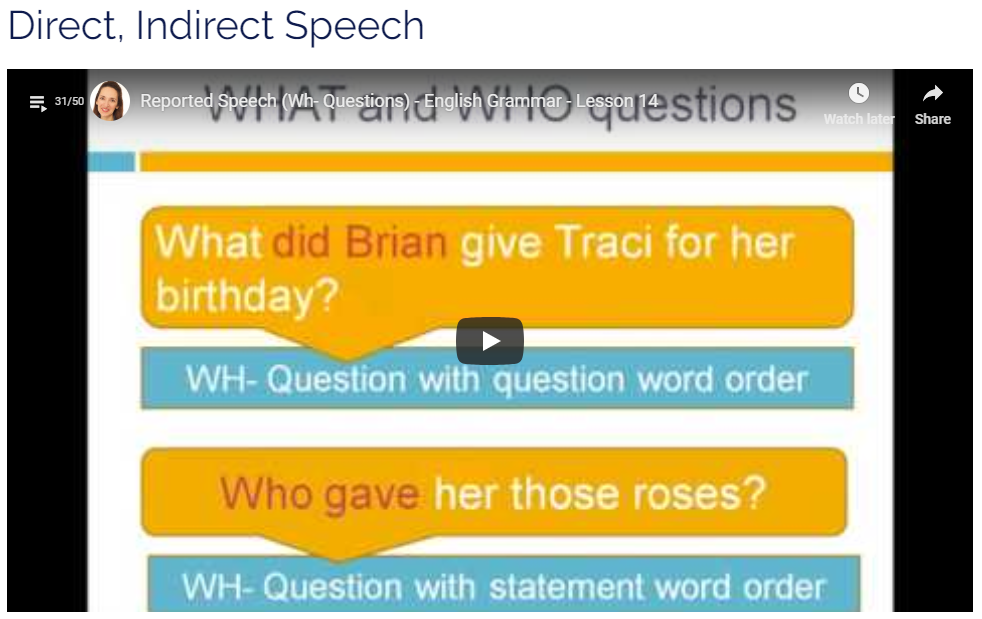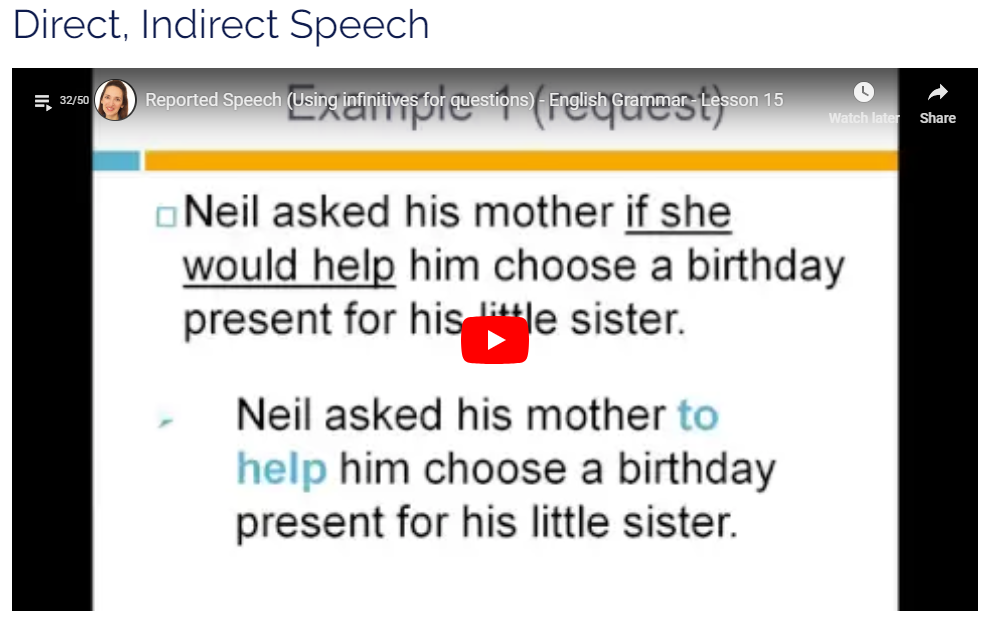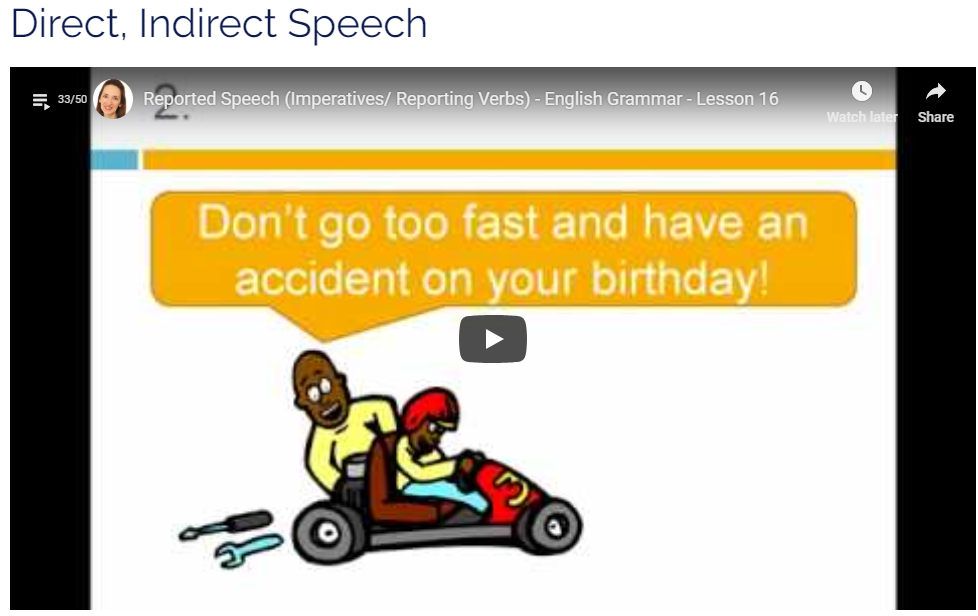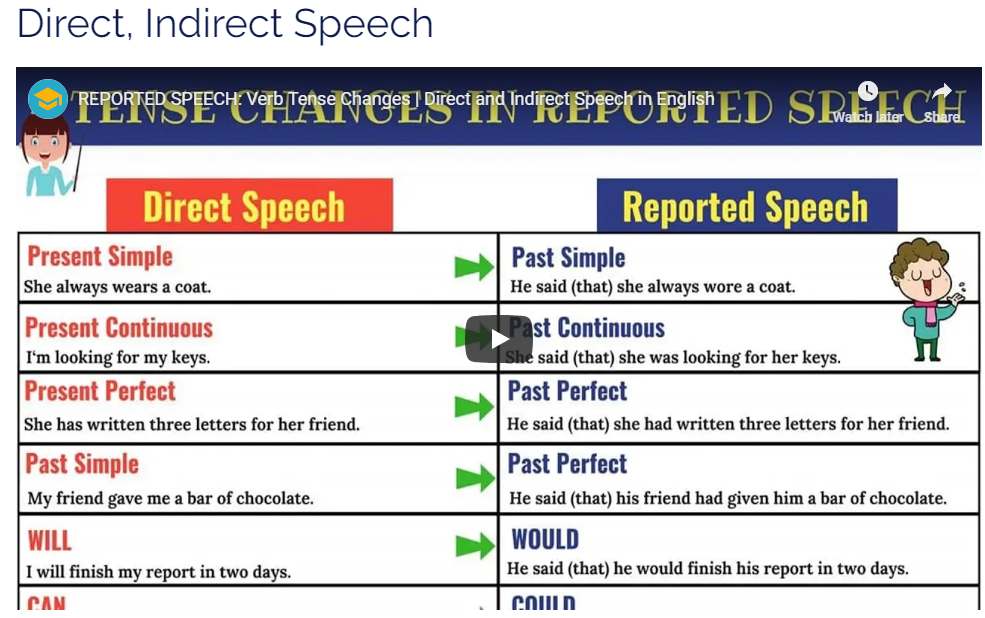Android Mobile Users : Download DigyTMS app from Google Play. This app would provide you to assess yourself with Practice tests and assessment test with Multiple Choice . We advise you to make use of it and reach your goal .This would help you for competitive examinations or for your professional excellence in corporate.
Parts of Speech
In the English language, words can be considered as the smallest elements that have distinctive meanings. Based on their use and functions, words are categorized into several types or parts of speech. This article will offer definitions and examples for the 8 major parts of speech in English grammar: noun, Prepositions , verb, adverb, adjective, conjunction, preposition, and interjection.
Noun, Verb, Adjective, Adverb Etc. Basic English Grammar - with Examples
Duration : 00:17:20 Hours
8 Parts Of Speech In English Grammar With Examples | Periwinkle
Duration : 0:08:20 Hours
parts of speech english grammar | introduction |
Duration : 0:09:41 Hours
Parts of speech with examples | English grammar
Duration : 00:21:14 hours
Noun
Nouns make up the largest class of words in most languages, including English. A noun is a word that refers to a thing (book), a person (Betty Crocker), an animal (cat), a place (Omaha), a quality (softness), an idea (justice), or an action (yodeling). It's usually a single word, but not always: cake, shoes, school bus, and time and a half are all nouns.
NOUNS - Basic English Types of Nouns - Examples of Nouns - Common/Propeties
Duration : 0:16:20 hours
Basic English Grammar -- Noun | English speaking | Spoken English
Duration : 0:04:56
Nouns | Definition & Types of Nouns
Duration : 0:05:56 hours
Irregular nouns in the plural | English grammar rules
Duration : 0:31:28 hours
English nouns with only a plural form
Duration : 0:16;32 hours
Countable and uncountable nouns | English grammar lesson
Duration : 0:21:45 hours
Pronouns
A pronoun is a word that is used instead of a noun or noun phrase. Pronouns refer to either a noun that has already been mentioned or to a noun that does not need to be named specifically.
PRONOUNS - Basic English Grammar Types of Pronoun – Grammar
Duration : 0:20:40
Learn English Grammar | ENGLISH PRONOUNS - Types of Pronouns
Duration : 0:03:17 hours
PERSONAL PRONOUNS | English grammar lesson and exercises
Duration : 0:19;27 hours
POSSESSIVE PRONOUNS | English grammar lesson and exercise
Duration : 0:18:04 hours
Reflexive pronouns and intensive pronouns in English
Duration : 0:33:29
hours
Relative pronouns | Defining relative clauses
Duration : 0:17:42 hours
Adjectives
Adjectives describe or modify—that is, they limit or restrict the meaning of—nouns and pronouns. They may name qualities of all kinds: huge, red, angry, tremendous, unique, rare, etc.
ADJECTIVES - Basic English Grammar - What is an Adjective? – Grammar
Duration : 0:17:54 hours
Adjectives in English grammar | Position in a sentence
Duration : 0:18:15 hours
Adjectives ending in ING and ED | Participle adjectives
Duration : 0:26:57 hours
ENGLISH POSSESSIVE ADJECTIVES | Grammar lesson and exercises
Duration : 0:17:21 hours
Comparative adjectives | English grammar lesson
Duration : 0:14:25 hours
Superlatives | English lesson
Duration :0:14:35 hours
Adjective Order - English Grammar
Duration : 0:8:00 hours
Adjective Order: English Grammar
Duration : 0:08:51 hours
Order of Adjectives in English -Grammar Learn with JenniferESL
Duration : 0:12:28 hours
Articles
The words a, an, and the are special adjectives called articles
.
Articles (a, an, the) - 7 Rules For Using Articles Correctly - English Grammar
Duration : 0:16:58 hours
Articles - 'a', 'an' and 'the' | English Grammar
Duration : 0:12:37 hours
Grammar: 8 rules for using 'THE' in English
Duration : 0:09:48 hours
Indefinite article in English - "a" and "an"
Duration : 0:26:48 hours
Articles Part 1 - English Grammar
Duration : 0:14:45 hours
Articles Part 2 - English Grammar
Duration : 0:06:44
Articles (Generic Nouns) - English Grammar
Duration : 0:11:34 hours
Articles (Places and Geographical Names) Part 1 - English Grammar
Duration : 0:13:12 hours
Articles (Places and Geographical Names) Part 2 -- English Grammar
Duration : 0:07:15
Articles (Languages, Countries & Nationalities)Part 1 - English Grammar
Duration : 0:12:59
Articles (Languages, Countries & Nationalities) Part 2 - English Grammar
Duration : 0:06:14
Verbs
Verbs are words that show an action (sing), occurrence (develop), or state of being (exist). Almost every sentence requires a verb. The basic form of a verb is known as its infinitive. The forms call, love, break, and go are all infinitives
VERBS -What is a VERB? - Types of VERBS - Regular/Irregular
Duration : 0:16:43 hours
Verbs | Finite Verbs vs Non-Finite Verbs | Differences | When to use?
Duration : 0:07:26 hours
Verbs | Transitive and Intransitive Verbs | Similarity | Differences
Duration : 0:05:19 hours
English Grammar: Be Verbs
Duration : 0:07:00 hours
ing verbs English lesson and exercises -ing forms, spelling rules
Duration : 0:28:28 hours
Phrasal Verbs (Introduction) - Lesson 17 - English Grammar
Duration : 0:10:57 hours
Phrasal Verbs (Structure) - Lesson 18 - English Grammar
During : 0:15:15 hours
Phrasal Verbs (Pronunciation) - Lesson 19 - English Grammar
Duration : 0:15:00 hours
Phrasal Verbs & Compound Words - Lesson 20 - English Grammar
Duration : 0:16:39 hours
Verbs(Languages, Countries & Nationalities)
Duration : 0:12:59 hours
230 Irregular Verbs in English
Duration : 0:25:28
Adverbs
Adverbs are words that usually modify—that is, they limit or restrict the meaning of—verbs. They may also modify adjectives, other adverbs, phrases, or even entire sentences.p>
ADVERBS What is an Adverb - Examples, Exercises
Duration : 0:18:48 hours
What are Adverbs | Type of Adverbs | Four Types of Adverbs
Duration : 0:07:18 hours
Adverbs in English - Learn All About English Adverbs
Duration : 0:17:13 hours
adverbs - English grammar tutorial video lesson
Duration : 0:10:11 hours
How to form Adverbs from Adjectives? - English Grammar Lesson
Duration : 0:11:17 hours
Word Order / Position of Adverbs - English Lesson (Part 2)
Duration 0:13:13 hours
Prepositions
Prepositions show direction, location, or time, or introduce an object. They are usually followed by an object—a noun, noun phrase, or pronoun.
Prepositions | English Grammar
Duration : 0:02:23 hours
AT, IN, ON - Prepositions of Place - Basic English Grammar
Duration : 0:14:09 hours
Prepositions of time IN, ON and AT - English grammar
Duration : 0:14:38 hours
Prepositions of place - in, on, at | English grammar
Duration : 0:21:28 hours
100+ Important Prepositional Verbs
Duration : 0:10:13 hours
Prepositions of Place and Movement in English | Prepositions for Kids
Duration : 0:09:07 hours
Prepositions of Time IN – ON – AT | Rules and Examples
Duration : 0:05:57 hours
AT ON IN - Prepositions of Time in English
Duration : 0:16:59 hours
Prepositions of PLACE 👉IN / ON / AT / BY 👈 Common English Grammar Mistakes
Duration : 0:15:33 hours
How to Use TO & FOR English Prepositions ,Common Grammar Mistakes
Duration : 0:20:39 hours
AT, ON, or IN? The Triangle Method for Prepositions of Place
Duration : 0:11:24 hours
Conjunctions
Coordinating conjunctions connect items which are the same grammatical type, e.g. words, phrases, clauses. The most common coordinating conjunctions are and, or, but.
CONJUNCTIONS - Types of Conjunctions with Examples
Duration : 0:20:08 hours
What is CONJUNCTION ?
Duration : 0:05:58 hours
How to Use Coordinating Conjunctions
Duration : 0:04:08 hours
50 Subordinating Conjunctions in English | Grammar Lesson
Duration : 0:14:17 hours
Conjunction Types
Duration : 0:05:19 hours
Three Types of Conjunctions
Duration : 0:08:34 hours
Interjections
We use interjections to express emotions such as pleasure, surprise, shock and disgust. Most interjections are just sounds, rather than actual words, and come at the beginning or at the end of what we say. Interjections are more common in speaking than in writing:
Ex:Ouch, it stings. (expresses pain)
What is Interjection? | Examples : WOW!, OOPS!...
Duration : 0:04:04 hours
Interjections
Duration : 0:02:29 hours
Interjections
Duration : 0:06:12 hours
Interjections! Yay! Hmm? What are they?
Duration : 0:16:53 hours
Learn to express Emotions ( Telephone Conversation)
Duration : 0:15:54 hours
Using Interjection in English-English grammar presentation slides
Duration : 0:04:28 hours
Sentence
Group of words, usually containing a verb, that expresses a thought in the form of a statement, question, instruction, or exclamation and starts with a capital letter when written.
Basic Sentence Structure
Duration : 0:07:07 hours
Word Order / Sentence Structure - English Grammar Lesson (Part 1)
Duration : 0:14:03 hours
English Sentence Structure - English Grammar Lesson
Duration : 0:21:04 hours
Simple, Compound, Complex sentence - with Examples, Exercises
Duration : 0:14:13 hours
Sentence II[Tenses]
A group of words, usually containing a verb, that expresses a thought in the form of a statement, a distinction of form in a verb to express distinctions of time or duration of the action or state it denotes as tenses
simple present tense | part-1|English grammar |u
Duration : 0:09:36 hours
Present Simple vs Present Continuous - Learn English Tenses (Lesson 1)
Duration : 0:09:06 hours
Present Continuous / Present Perfect Continuous - Learn English Tenses
Duration :0:07:32 hours
Future Simple vs 'Going to' Future - Learn English Tenses
Duration : 0:15:50 hours
'Going to' Future vs Present Continuous - Learn English Tenses
Duration: 0:14:04 hours
Learn ALL TENSES Easily in 30 Minutes - Present, Past, Future
Duration : 0:31:22 hours
PRESENT PERFECT (1/5) - Forming the present perfect
Duration : 0:07:12 hours
PRESENT PERFECT(2/5) -Uses of the present perfect
Duration : 0:08:53 hours
PRESENT PERFECT (3/5) -Questions and negative statements
Duration : 0:09:37 hours
PRESENT PERFECT and PRESENT PERFECT PROGRESSIVE (4/5)
Duration : 0:10:58 hours
PRESENT PERFECT and OTHER "TENSES" (5/5) - English Grammar
Duration : 0:04:50 hours
Modal
Modal is a verb that combines with another verb to indicate mood or tense. A modal (also known as a modal auxiliary or modal verb) expresses necessity, uncertainty, ability, or permission.
English Modal Verbs | Can - Could - May – Might
Duration : 0:14:45 hours
Will - Shall - Would | English Modal Verbs (Part 2)
Duration : 0:11:22 hours
Should - Must - Have to | English Modal Verbs (Part 3)
Duration : 0:17:07 hours
Modal Verbs - English Grammar & Conversation Lesson (ALL MODALS)
Duration : 0:28:38 hours
English Grammar - Modals, Modal Verbs, Types of Modal Verbs
Duration : 0:05:14 hours
Modal Verb WOULD 🎞️ Learn English Grammar Through Movies! 🎦
Duration : 0:16:51 hours
Modal Verbs to Express Past Possibilities - Lesson 26 - English Grammar
Duration : 0:13:06 hours
Active Voice , Passive Voice
Verbs are either active or passive in voice. In the active voice, the subject and verb relationship is straightforward: the subject is a do-er. In the passive voice, the subject of the sentence is not a do-er. It is shown with by + do-er or is not shown in the sentence.
Passive voice is used when the action is the focus, not the subject. It is not important (or not known) who does the action.
Active Voice vs Passive Voice | Advance Grammar
Duration : 0:06:14 hours
Convert Active Voice to Passive Voice | Eight types | Based on Tenses
Duration : 0:15:01 hours
Where to Use PASSIVE VOICE - Advanced English Grammar
Duration : 0:10:22 hours
LEARN ACTIVE AND PASSIVE VOICE - QUICK AND EASY
Duration : 0:08:50 hours
English Grammar -- Passive Voice and Active Voice
Duration : 0:10:04 hours
Grammar Series - Active Voice vs Passive Voice
Direct , Indirect Speech
Direct and indirect speech can be a source of confusion for English learners. Let's first define the terms, then look at how to talk about what someone said, and how to convert speech from direct to indirect or vice-versa.
You can answer the question What did he say? in two ways:
by repeating the words spoken (direct speech)
by reporting the words spoken (indirect or reported speech).
Direct and Indirect Speech
Duration : 0:05:44 hours
Direct, Indirect Speech (Narration) - Reported Speech with Exercises & Quiz
Duration : 0:26:44 hours
Reported Speech (Intro) - English Grammar
Duration : 0:10:08 hours
Reported Speech (Reference Words) - English Grammar
Duration : 0:10:56 hours
Reported Speech (Changing Verbs) - English Grammar
Duration : 0:10:54 hours
Reported Speech (Changing Verb Tenses) - English Grammar
Duration : 0:06:31 hours
Reported Speech (with Modals) - English Grammar - Lesson 11
Duration : 0:10:23 hours
Reported Speech (with Conditionals) - Grammar - Lesson 12
Duration : 0:10:03 hours
Reported Speech (Wh- Questions) - English Grammar - Lesson 14
Duration : 0:07:55 hours
Reported Speech (Wh- Questions) - English Grammar - Lesson 14
Duration : 0:07:55 hours
Reported Speech (Using infinitives for questions) - English Grammar - Lesson 15
Duration : 0:08:53 hours
Reported Speech (Imperatives/ Reporting Verbs)
Duration : 0:10:57 hours
REPORTED SPEECH: Tense Changes When Using Reported Speech
Duration : 0:05:01 hours

